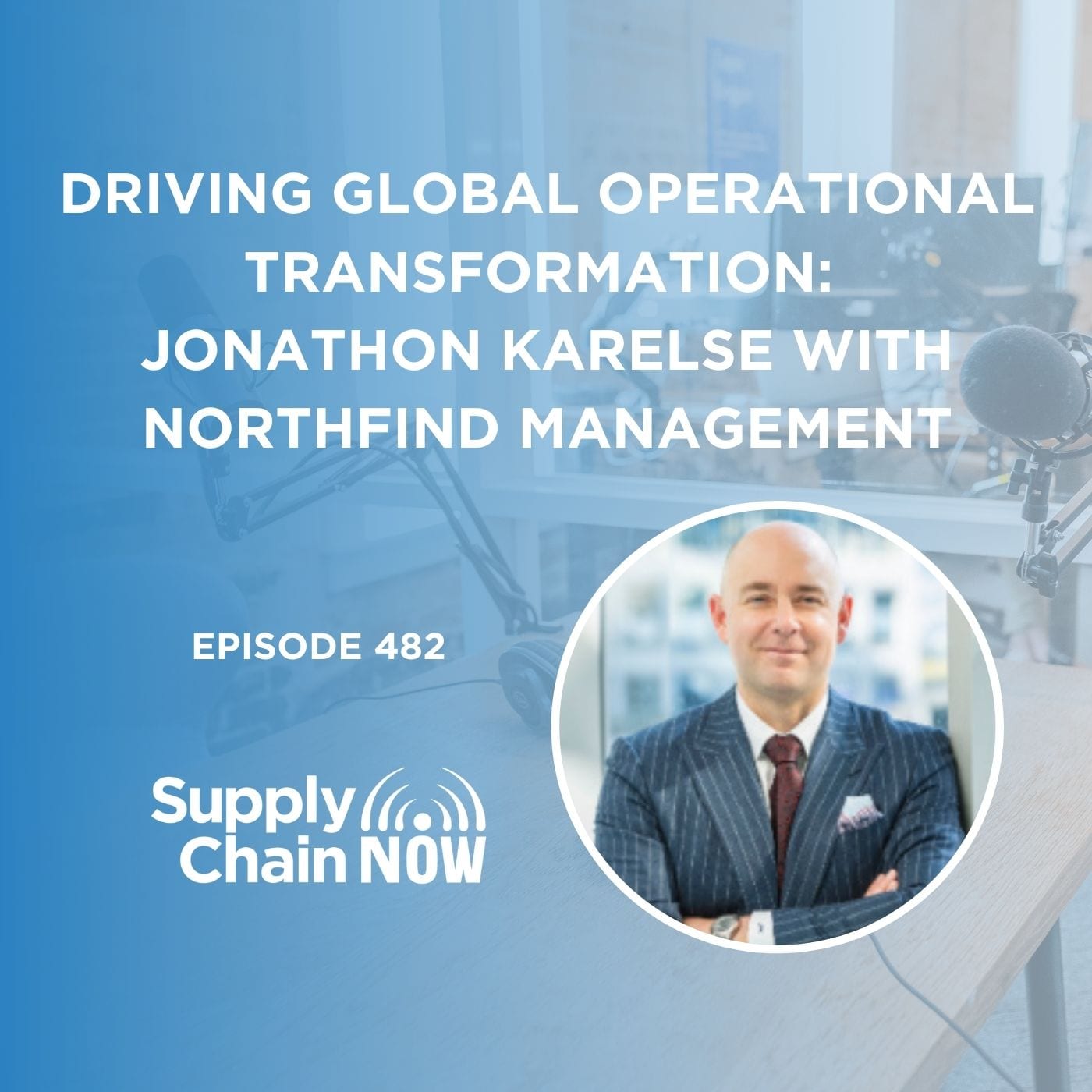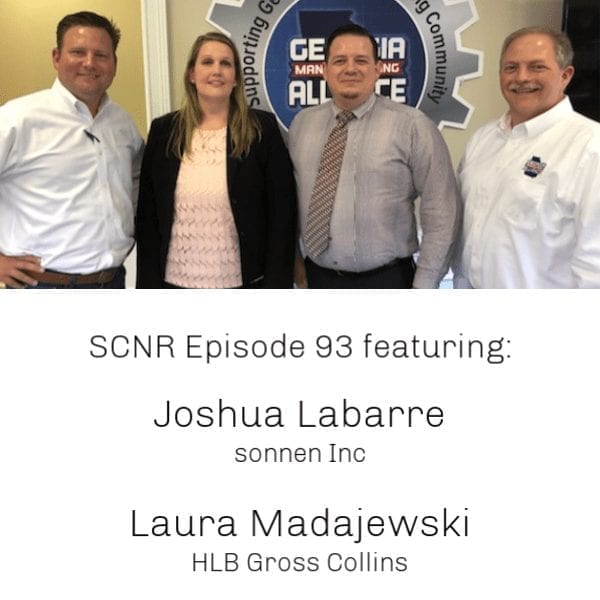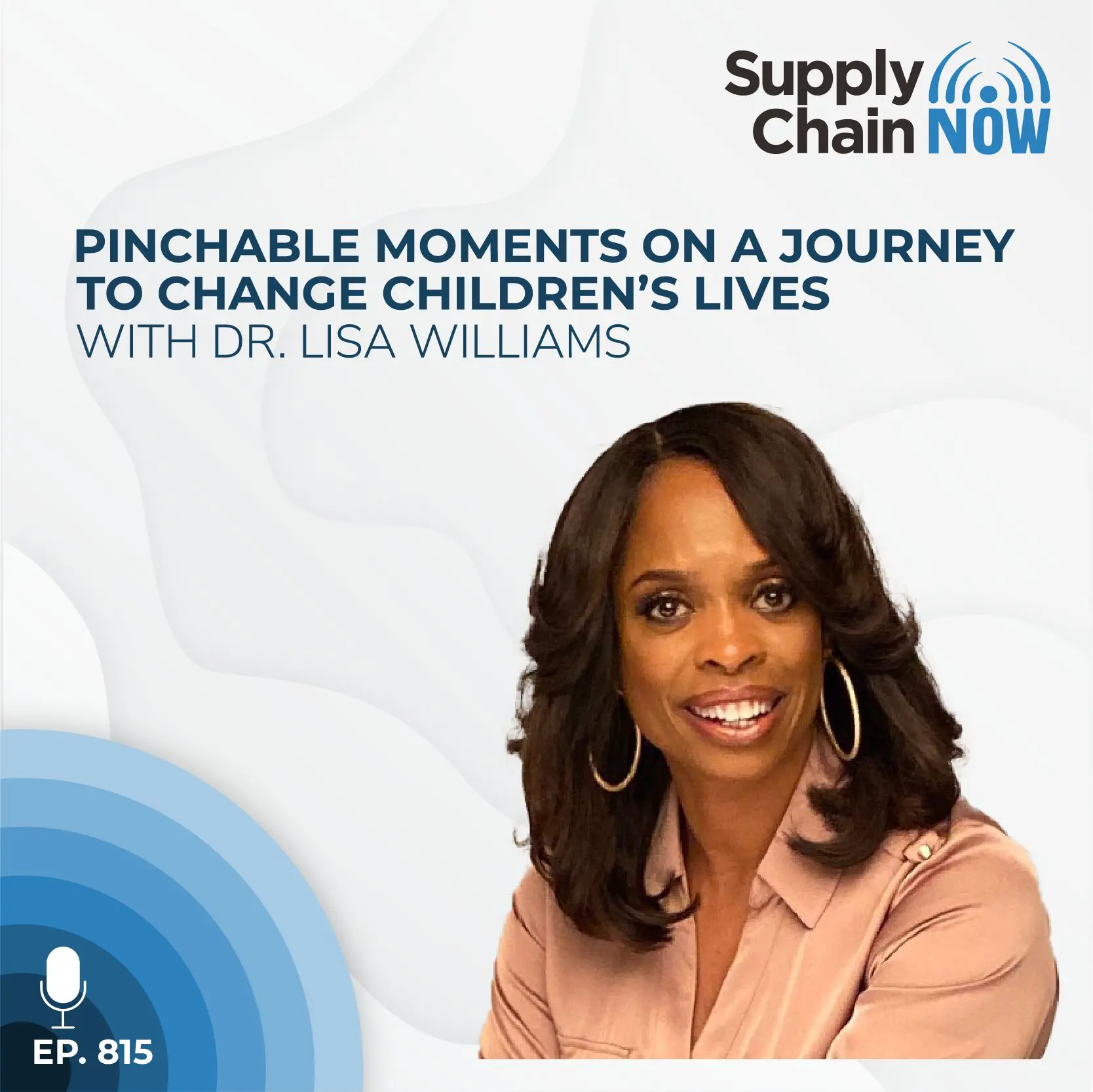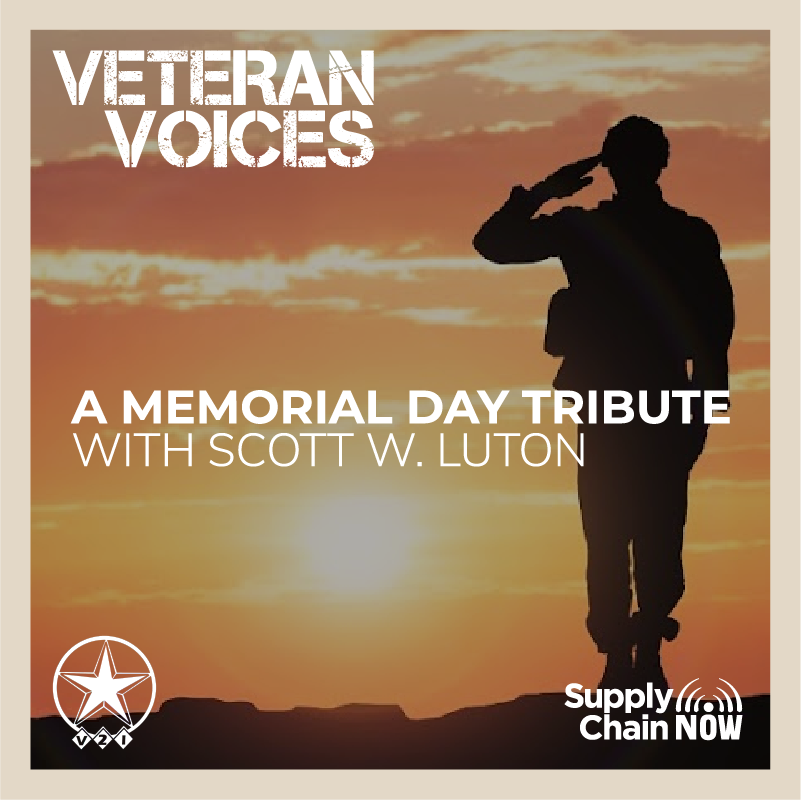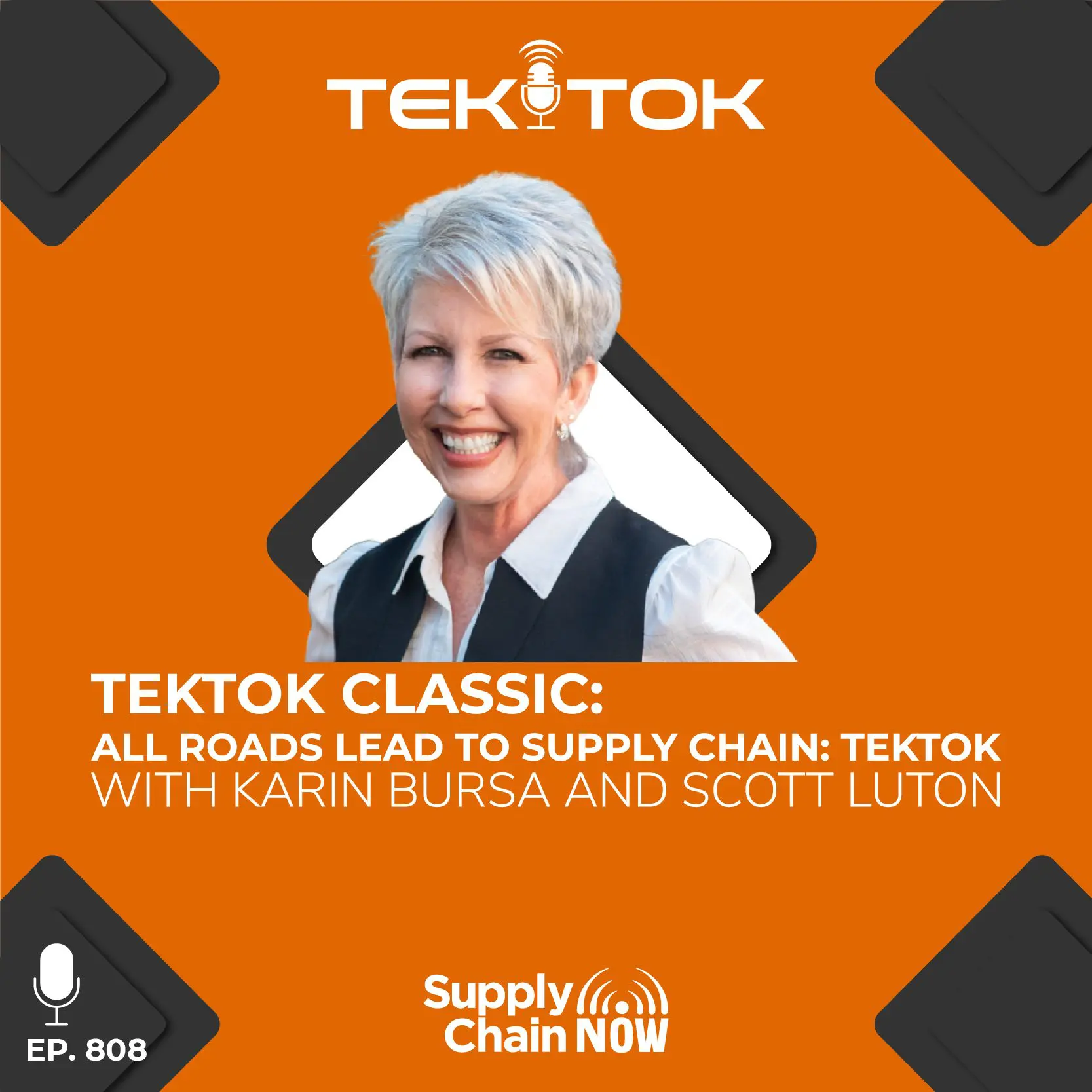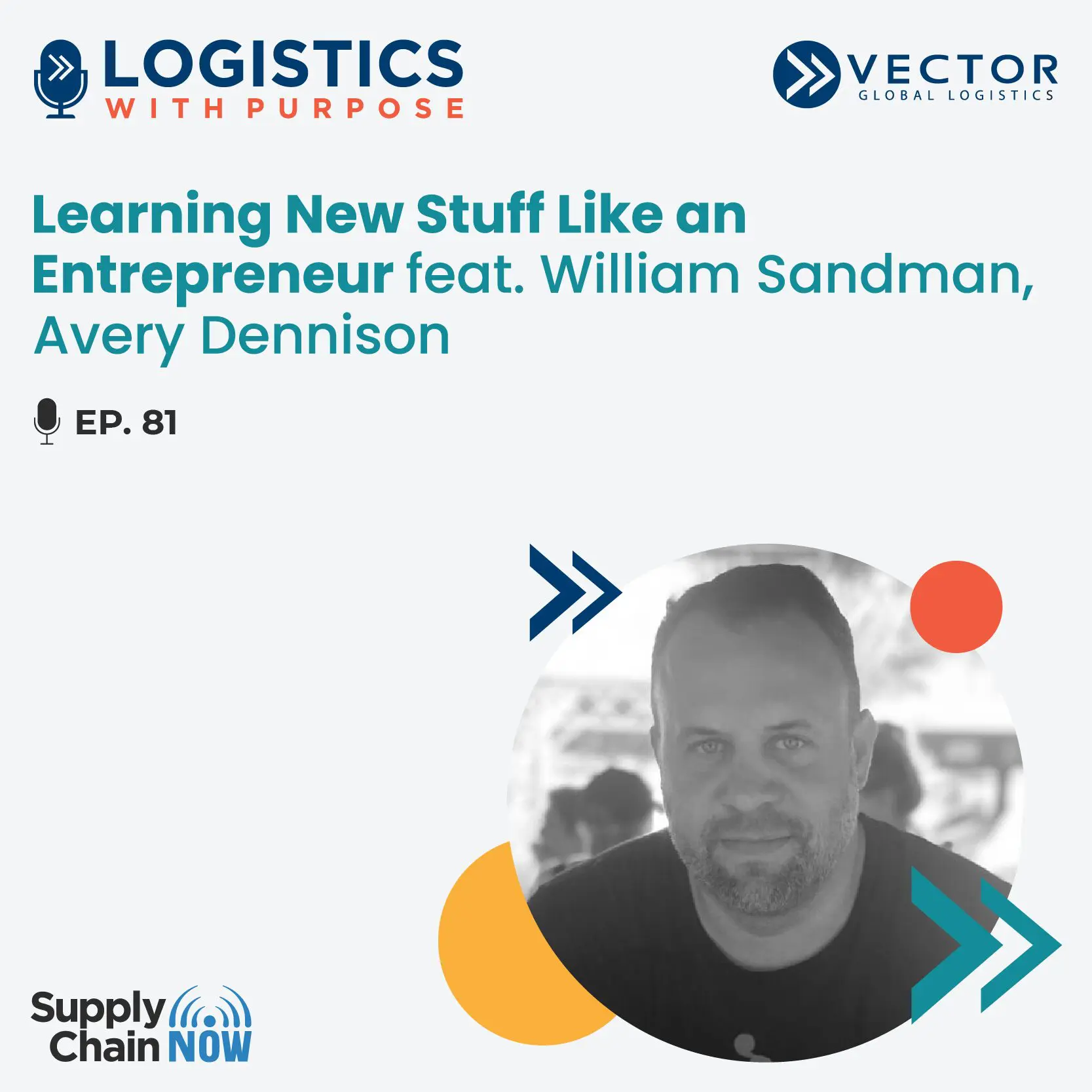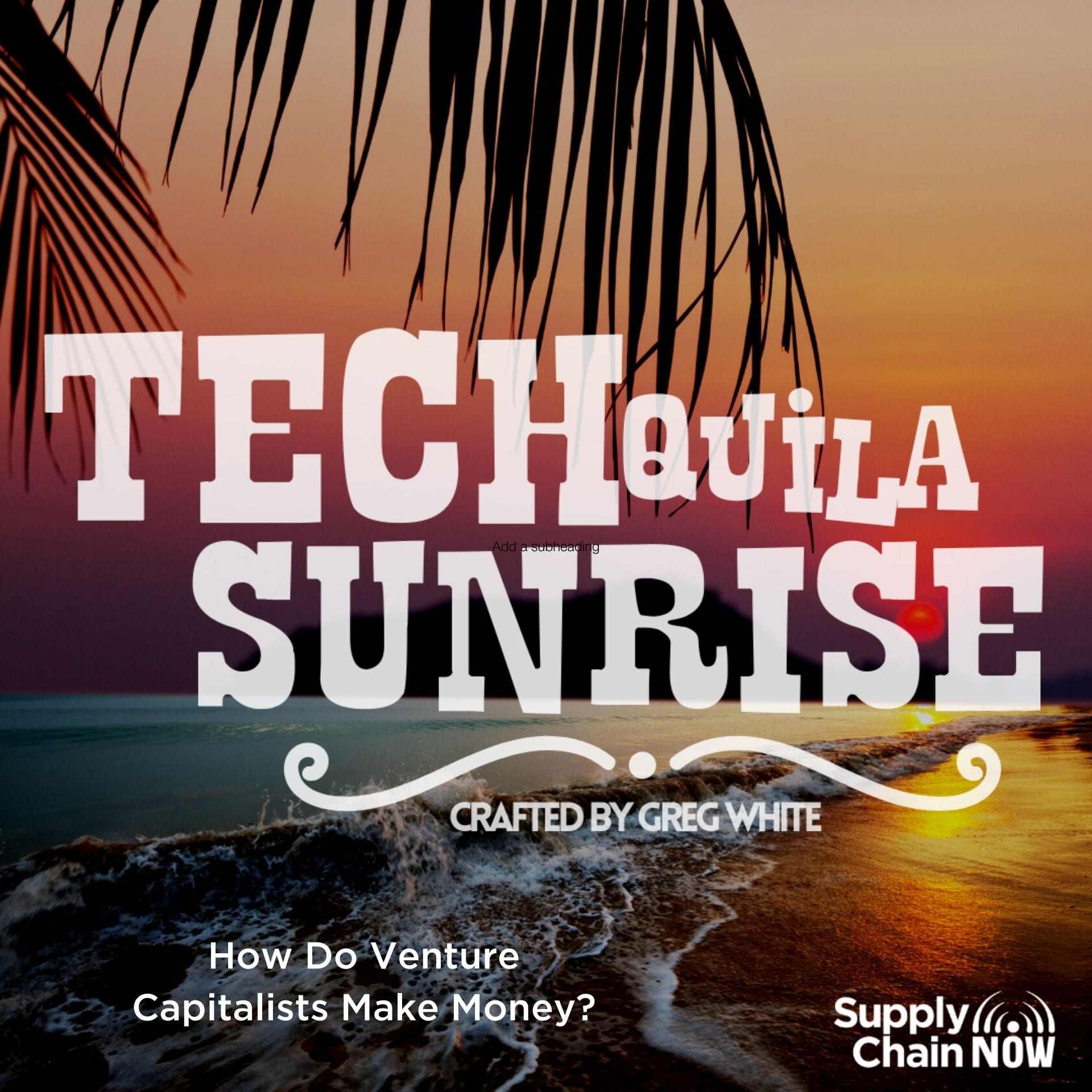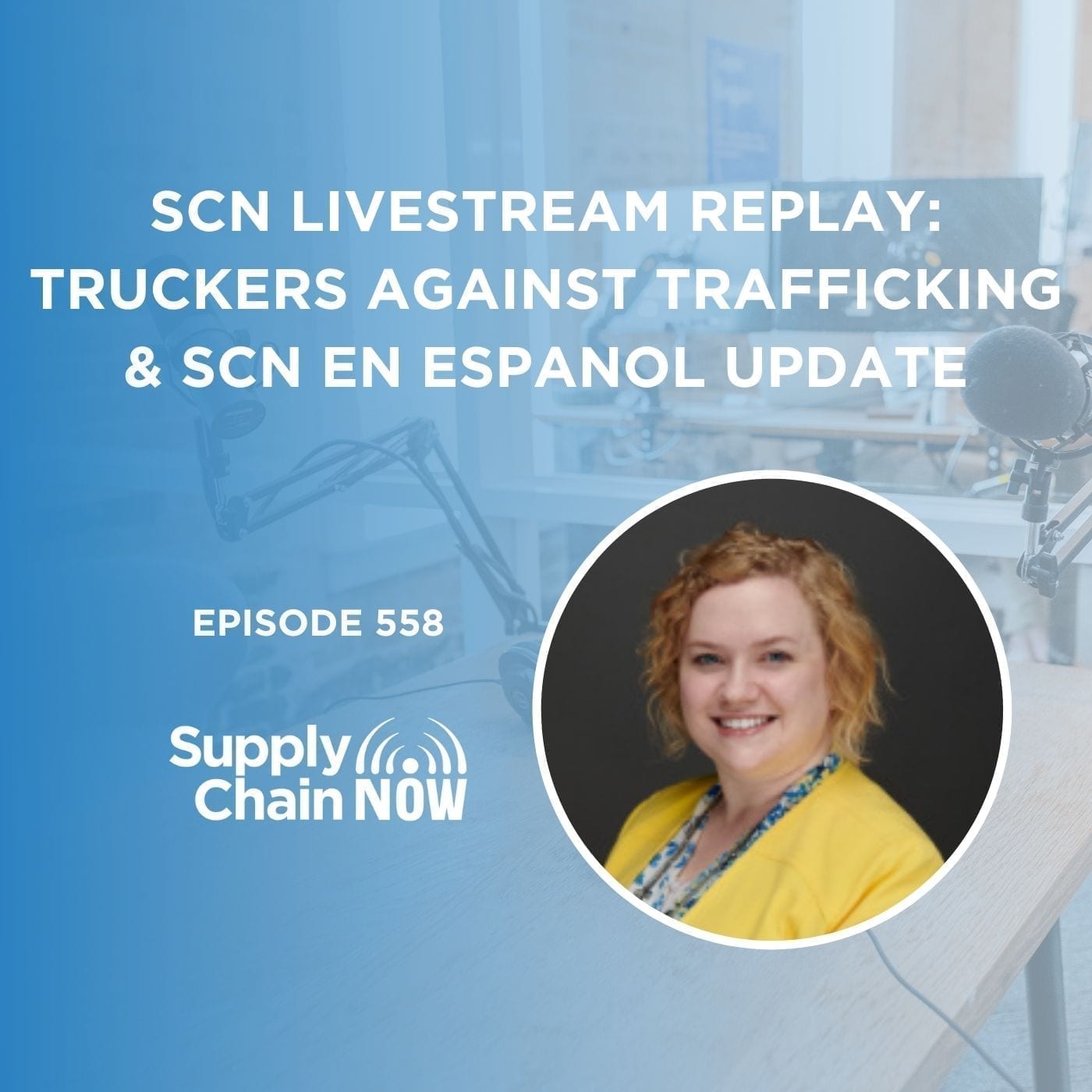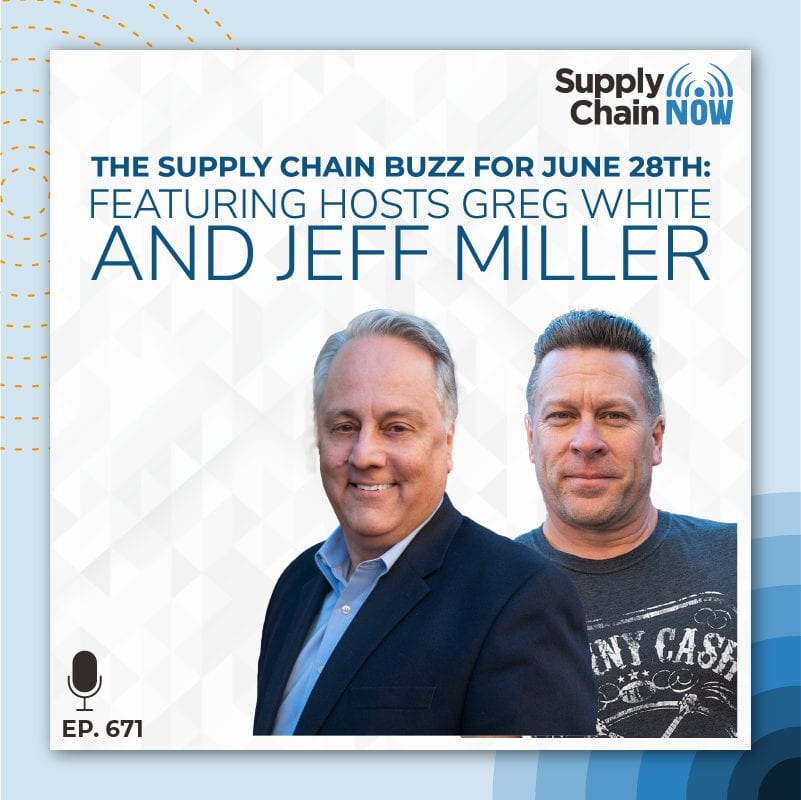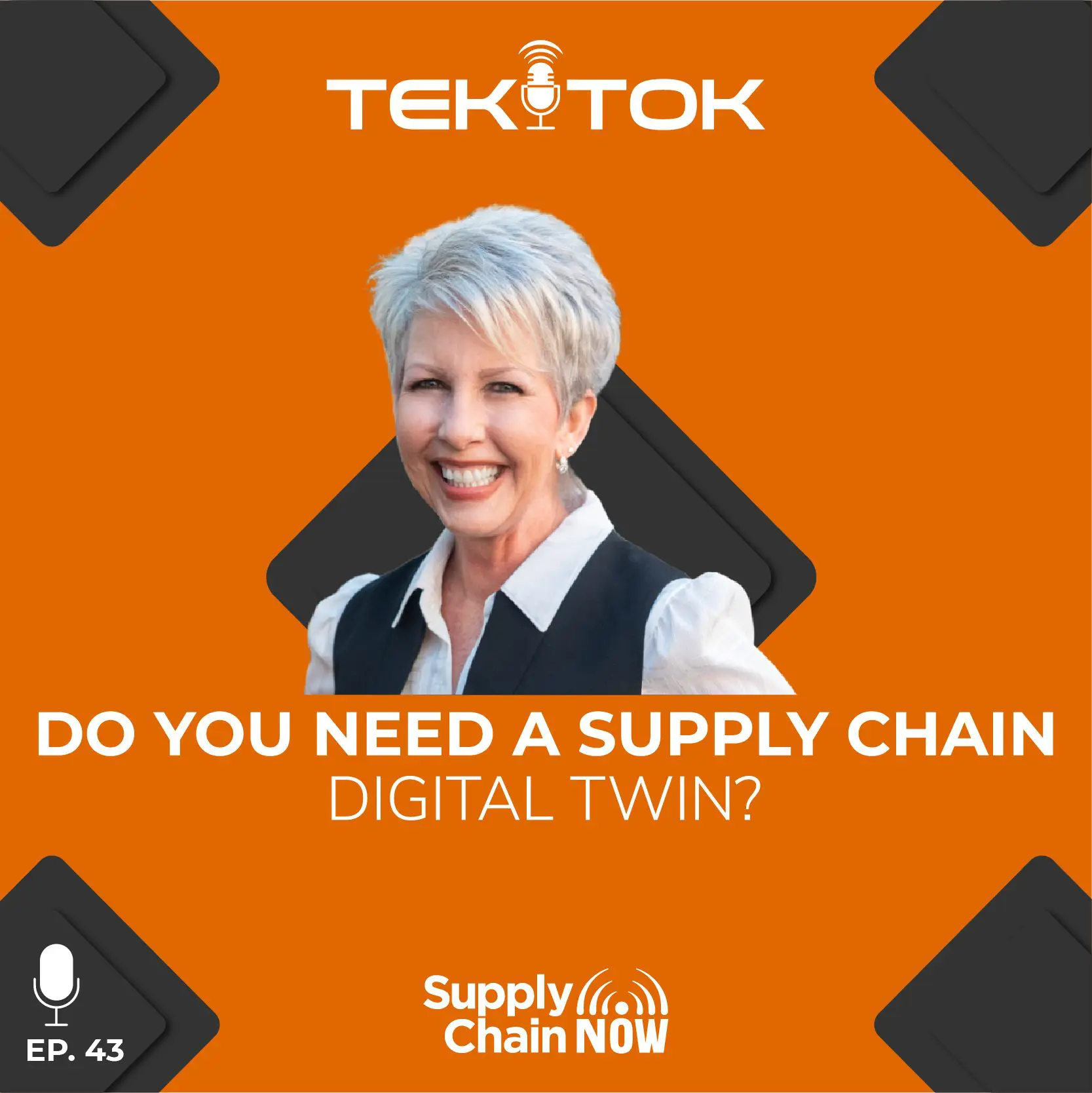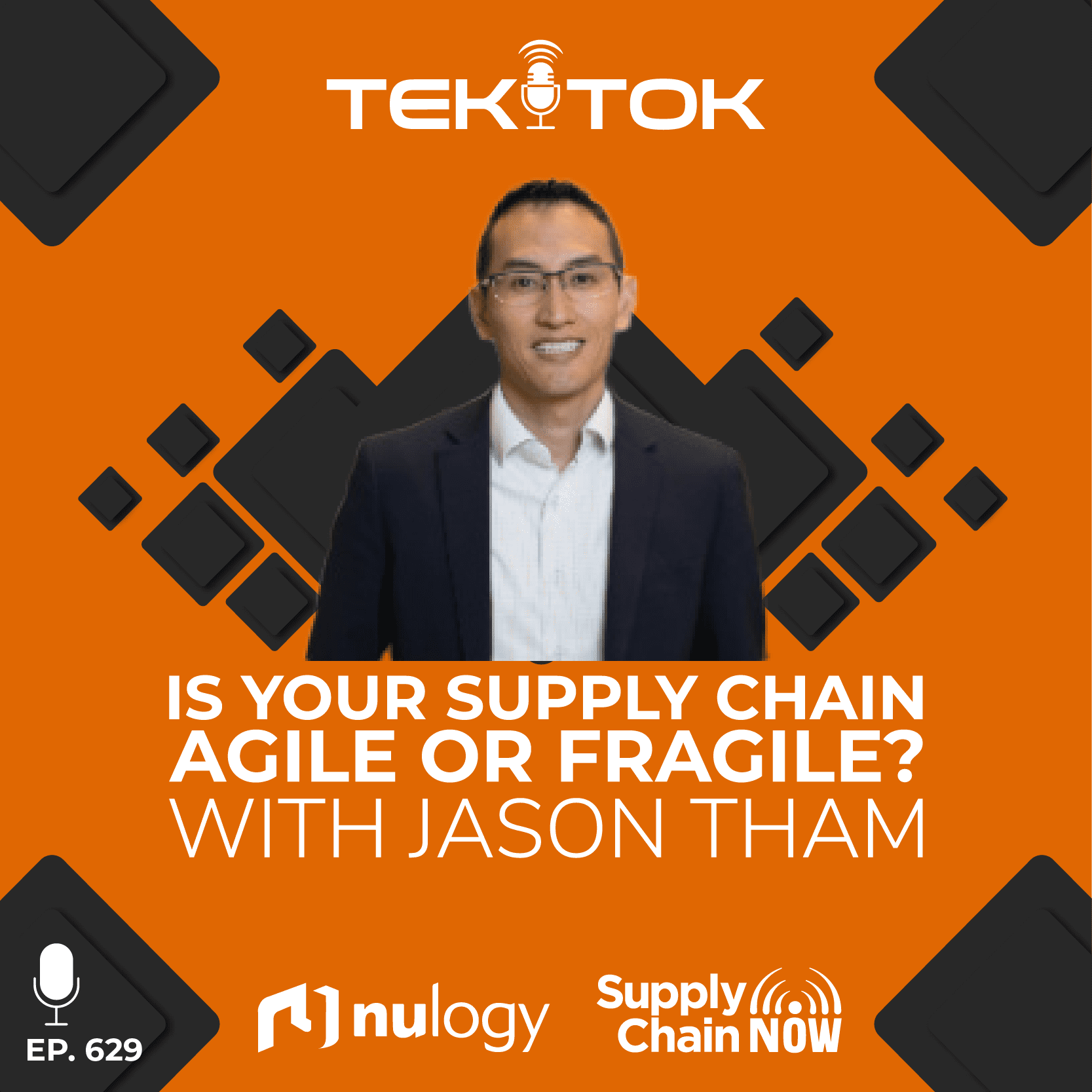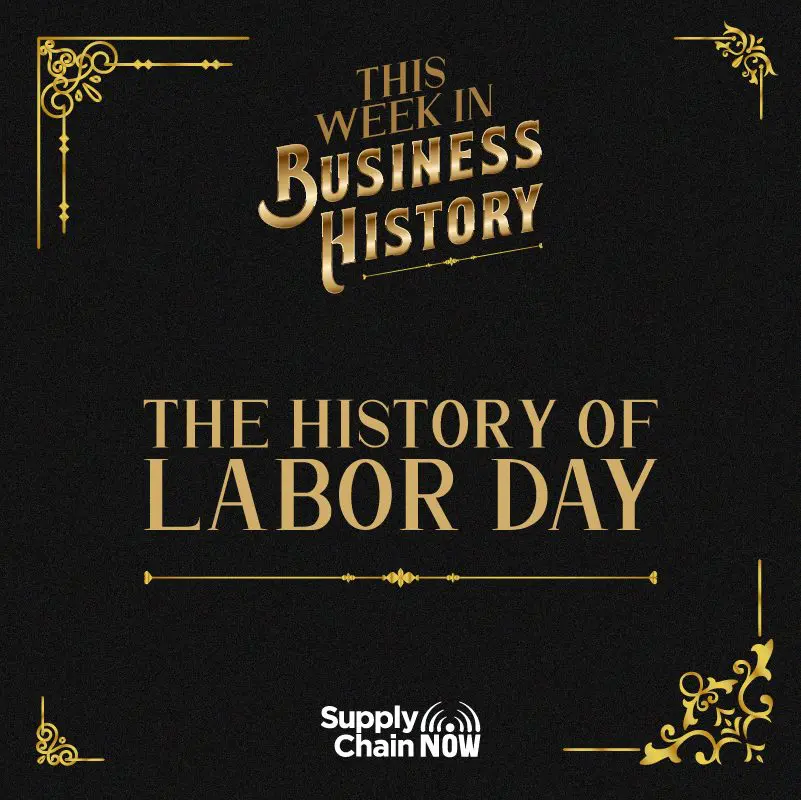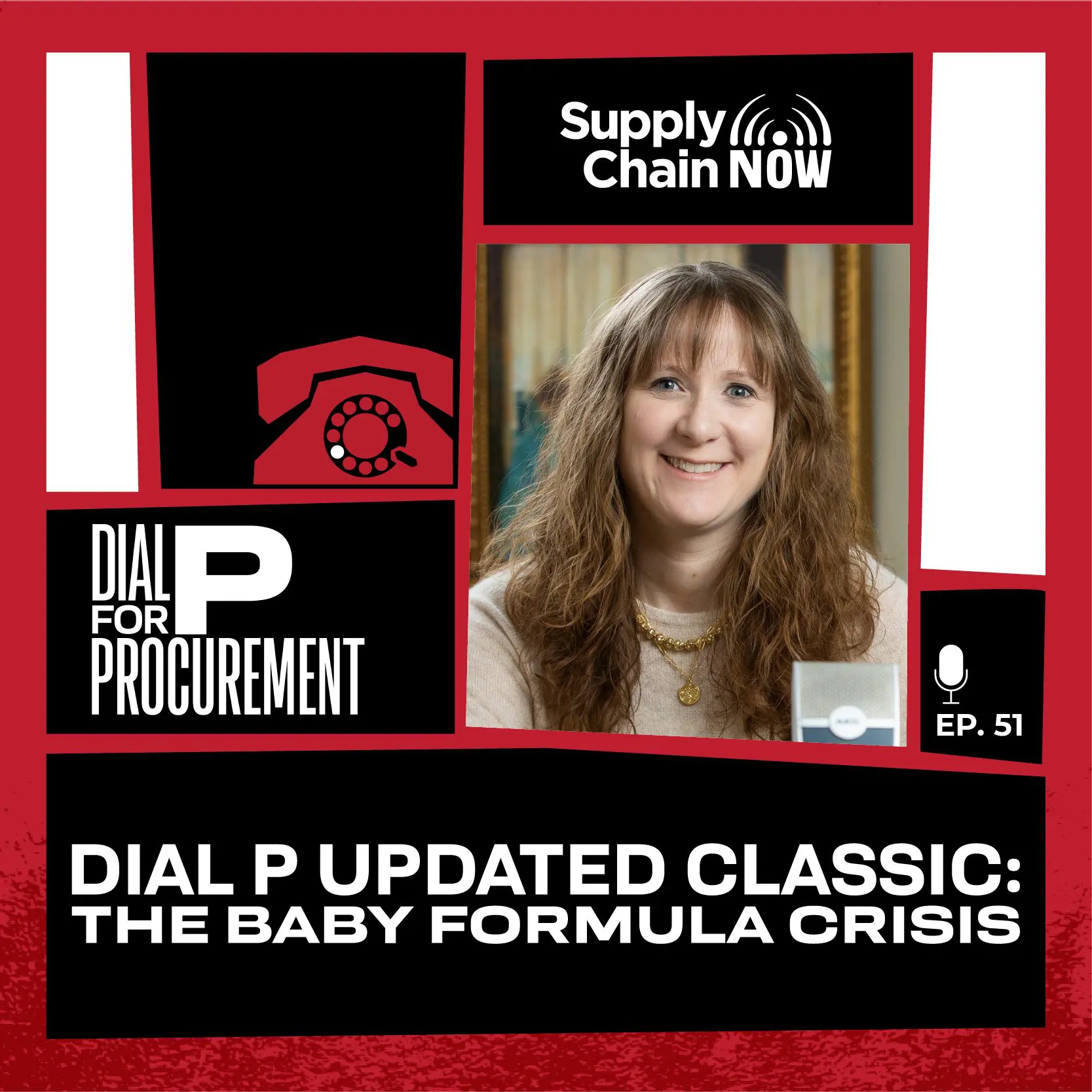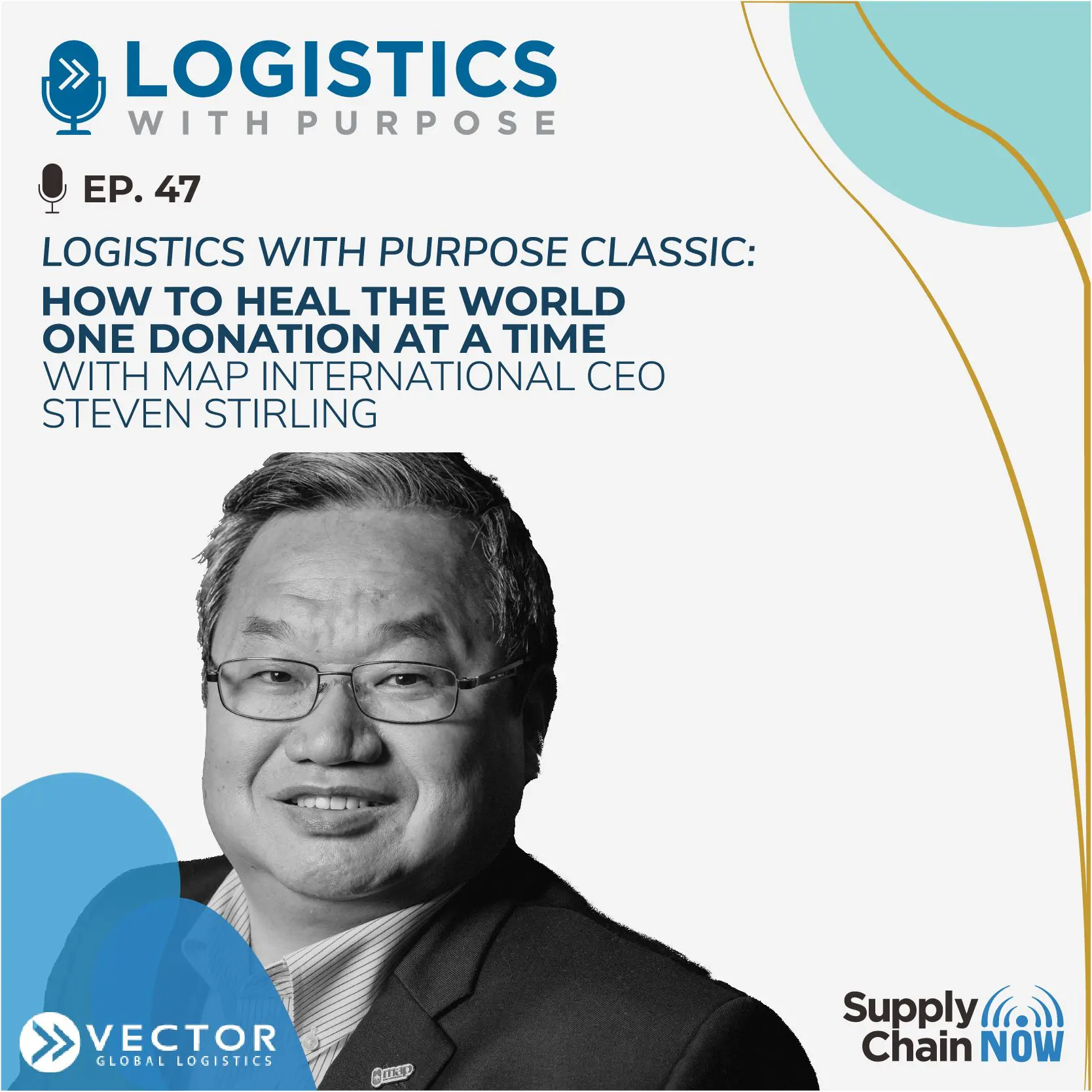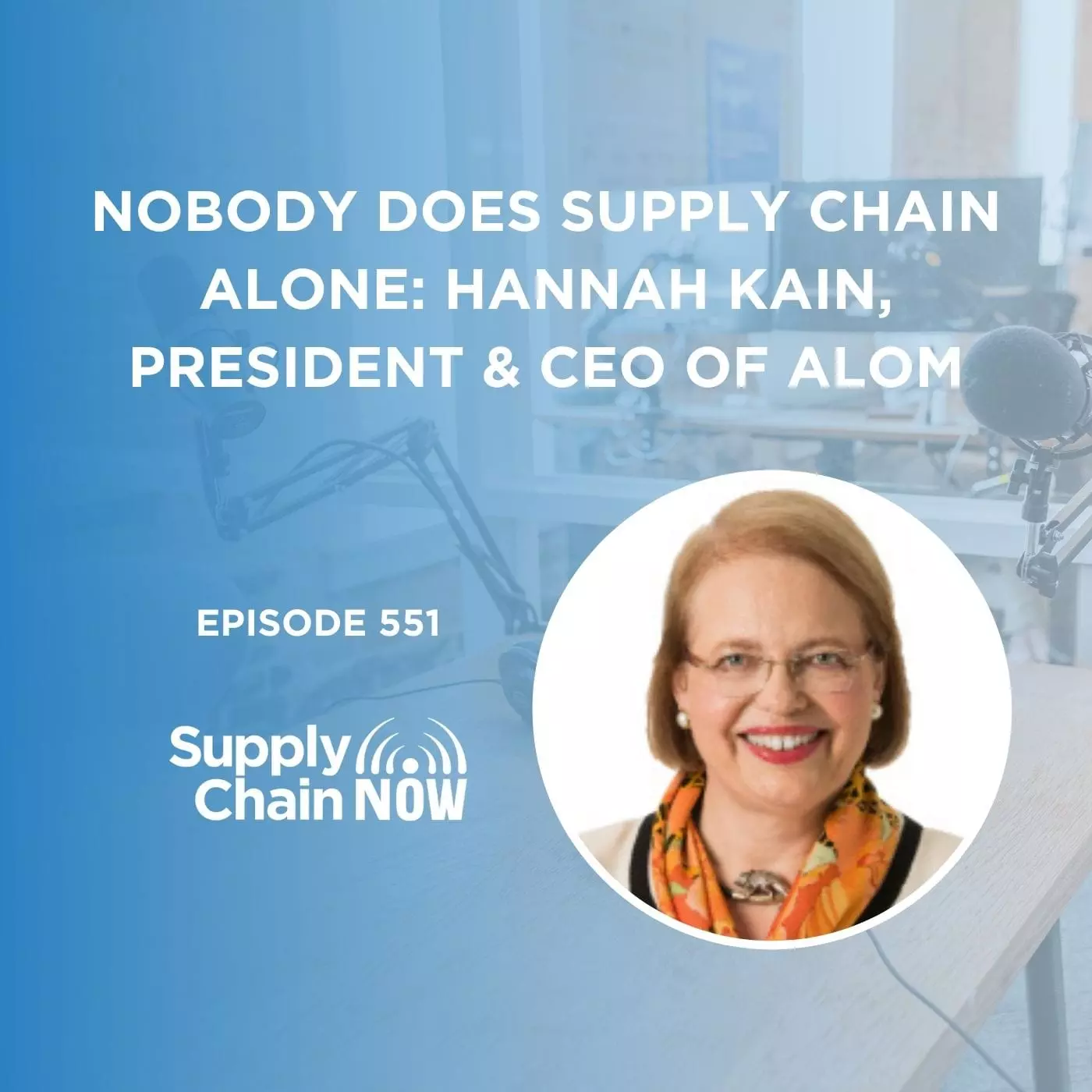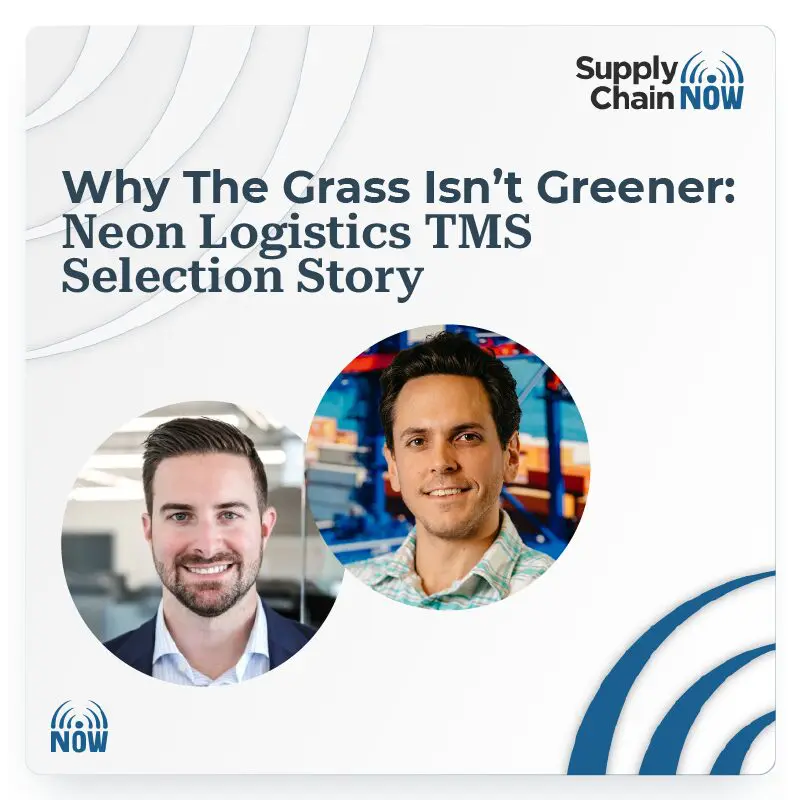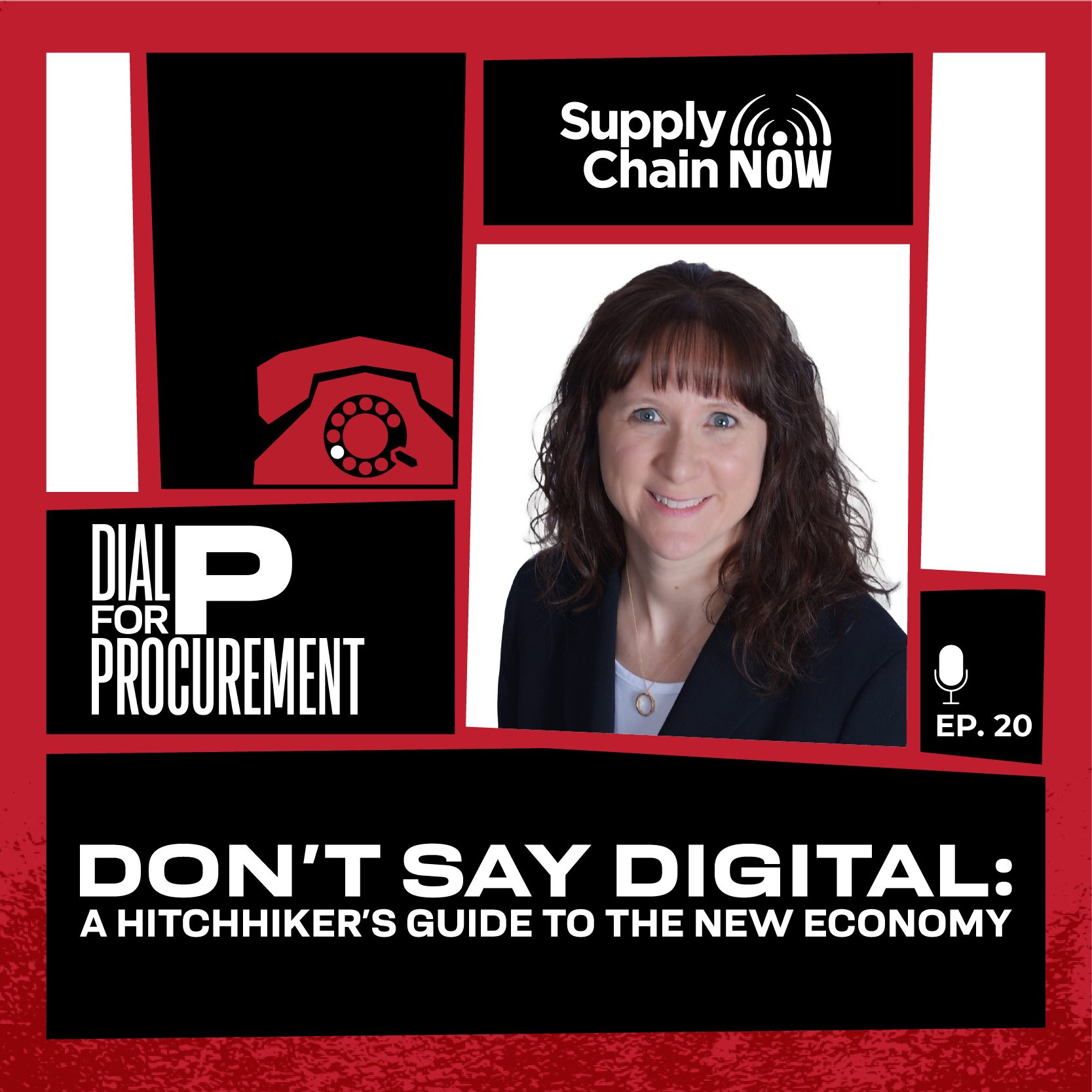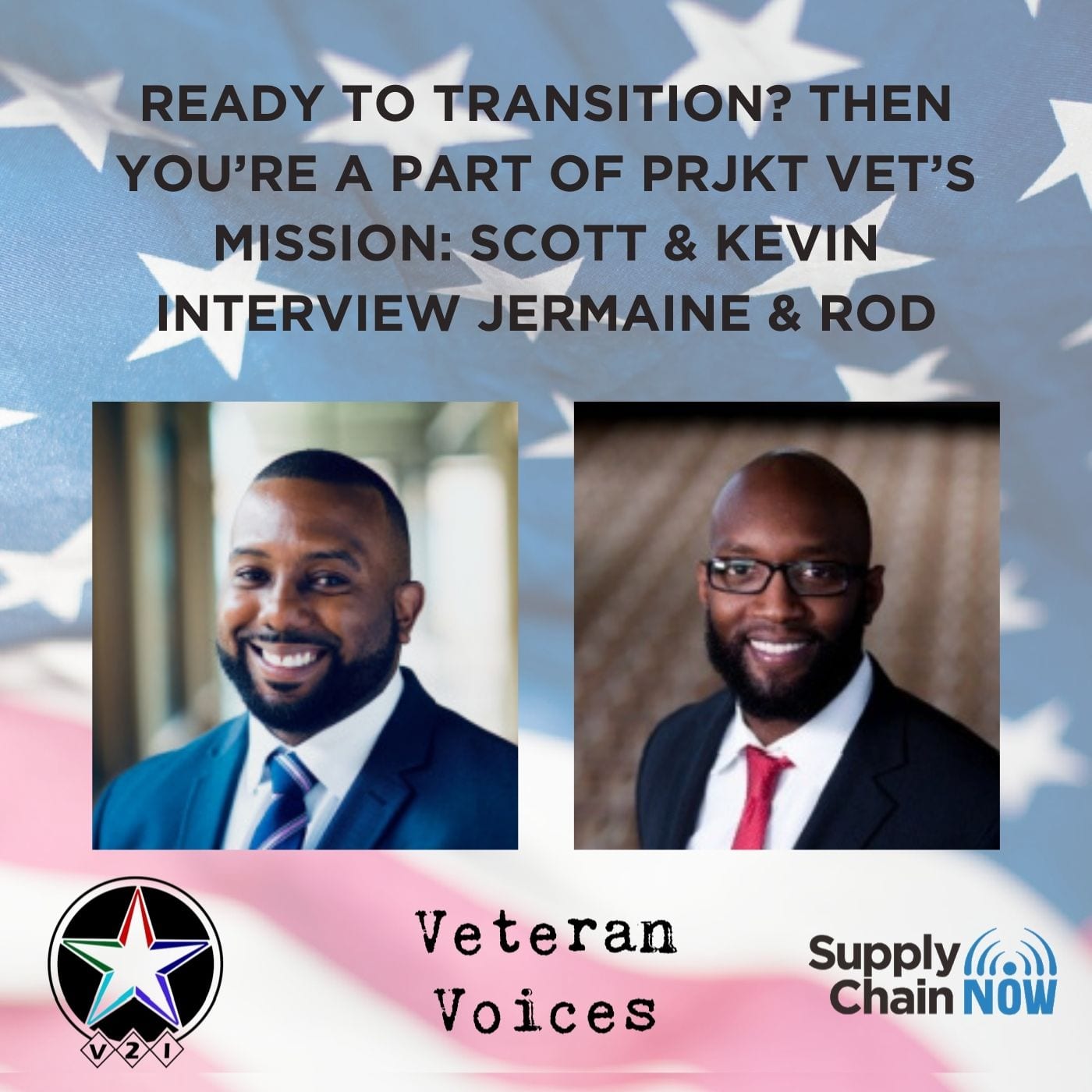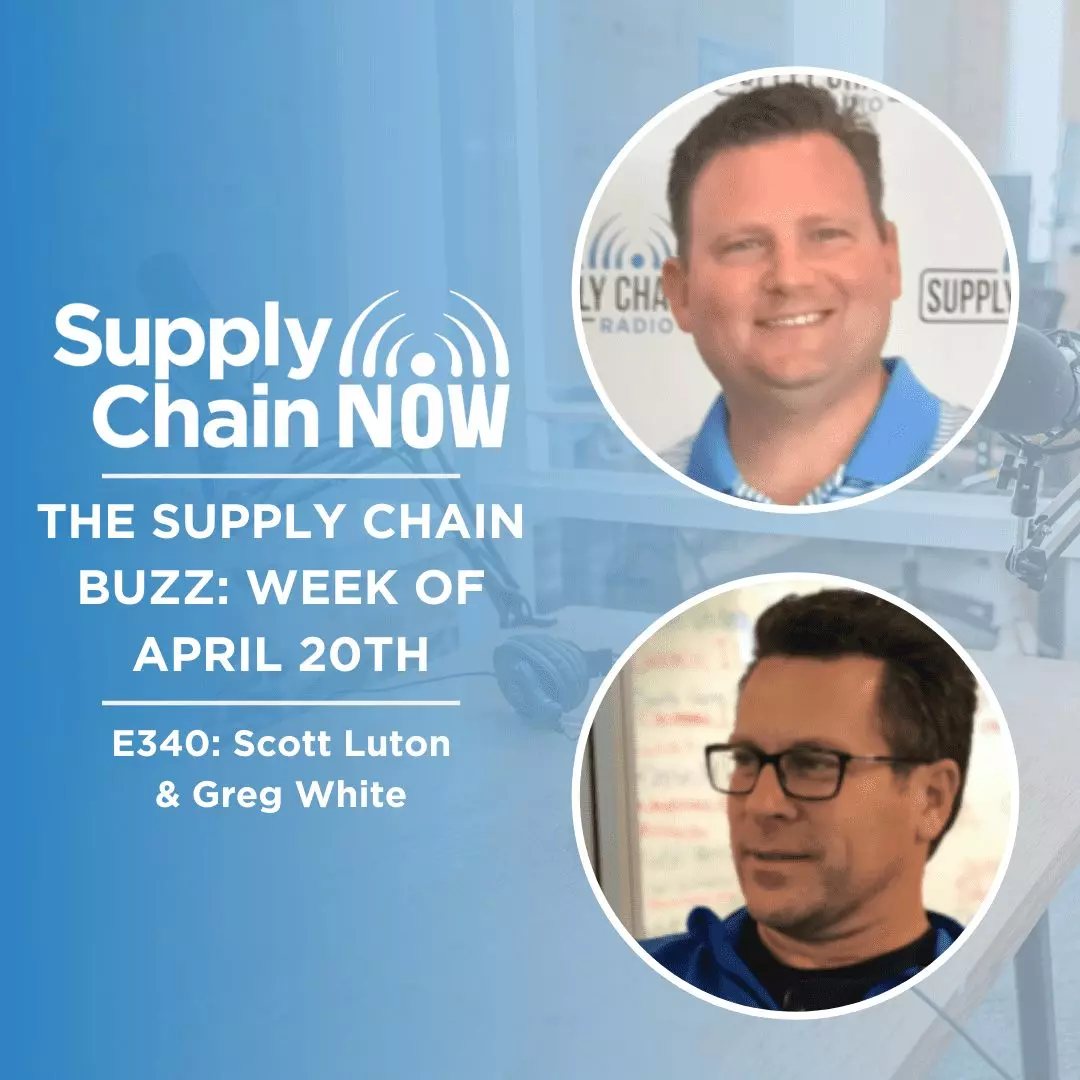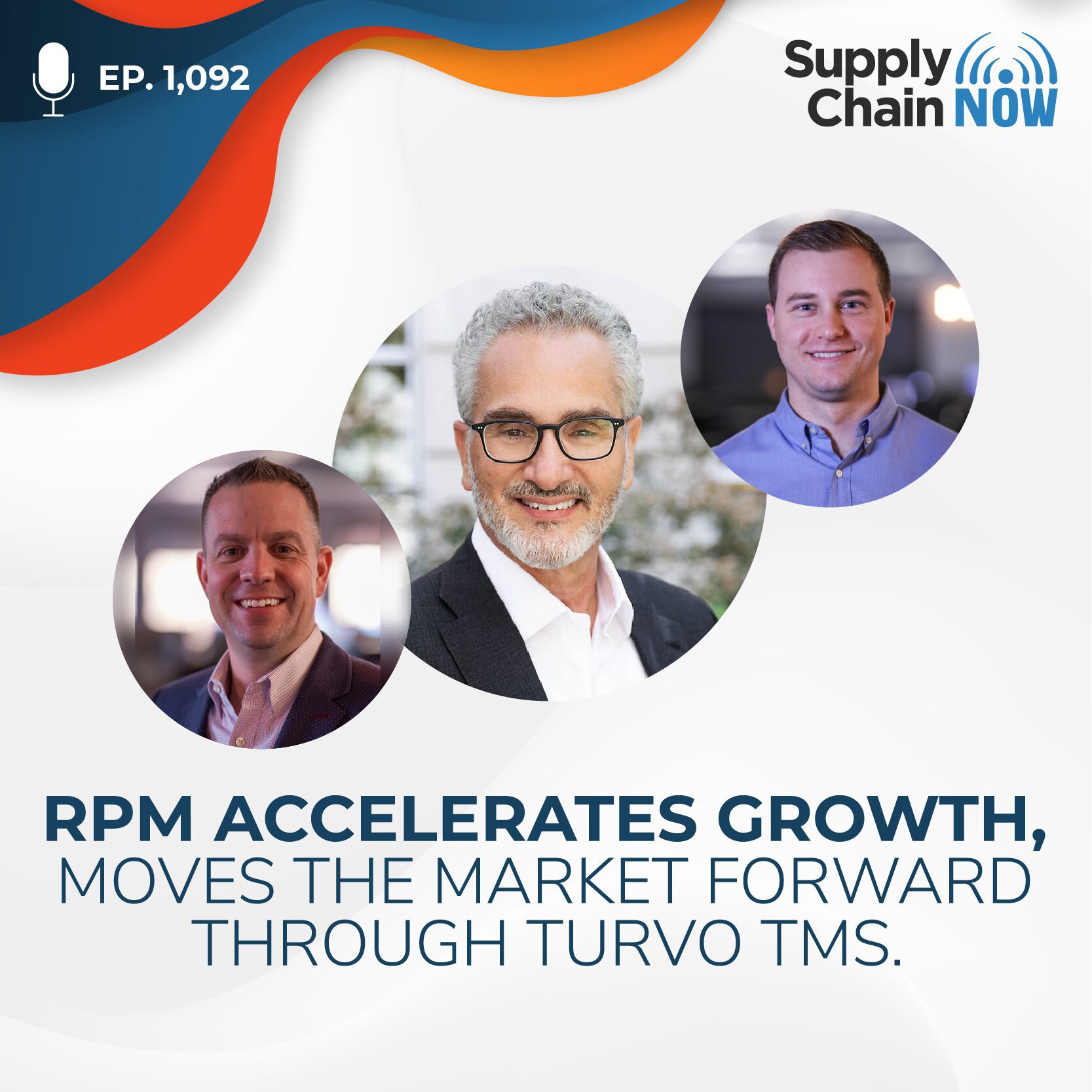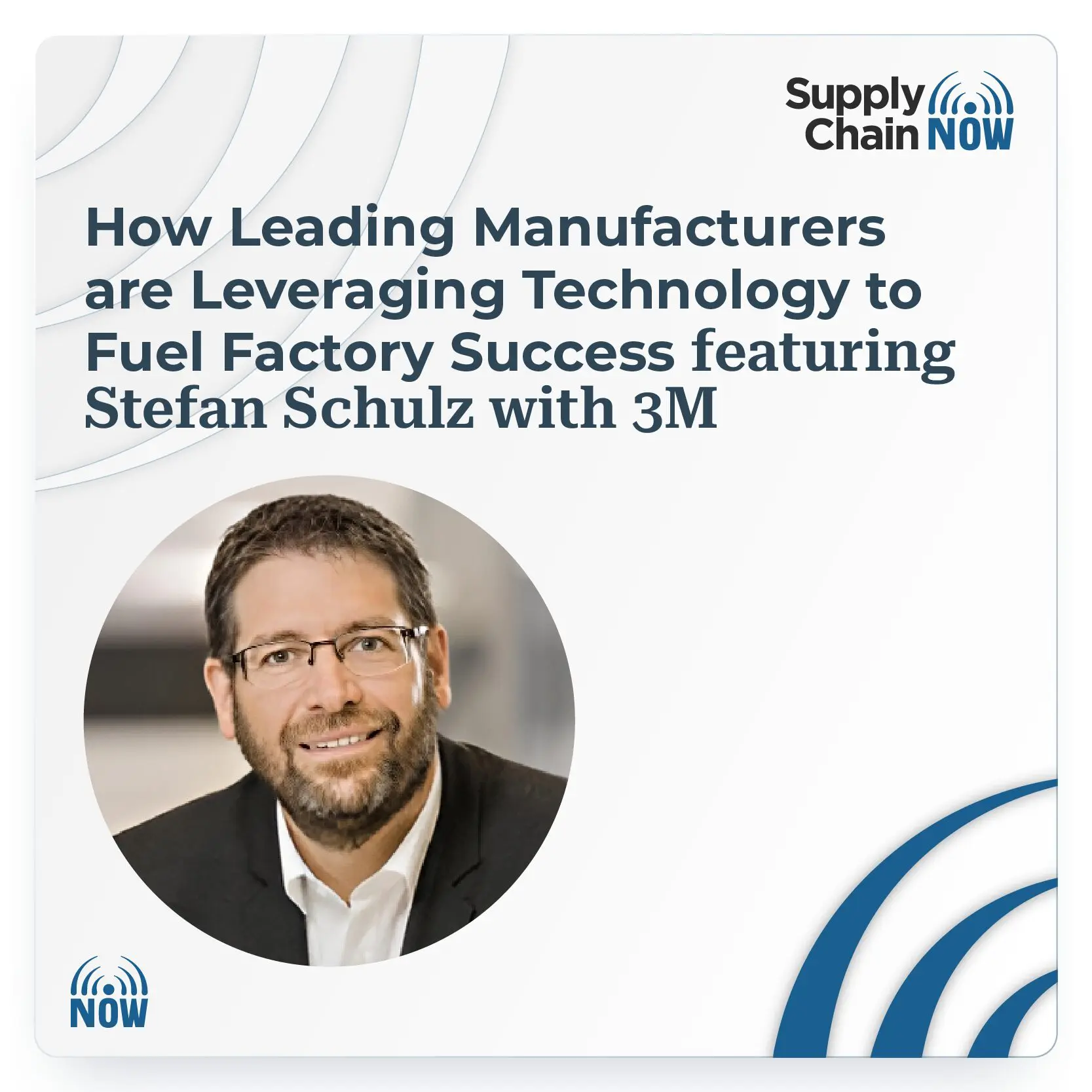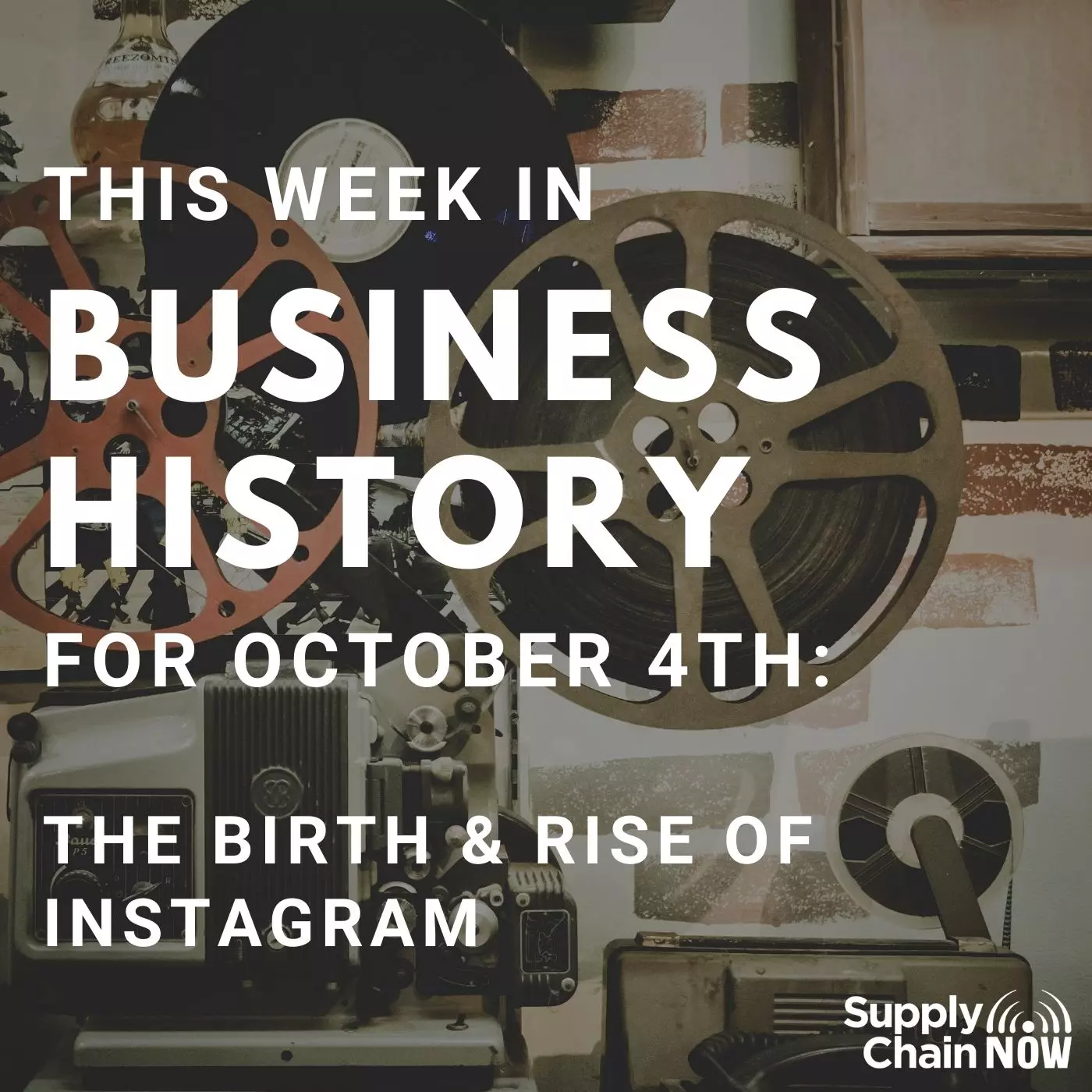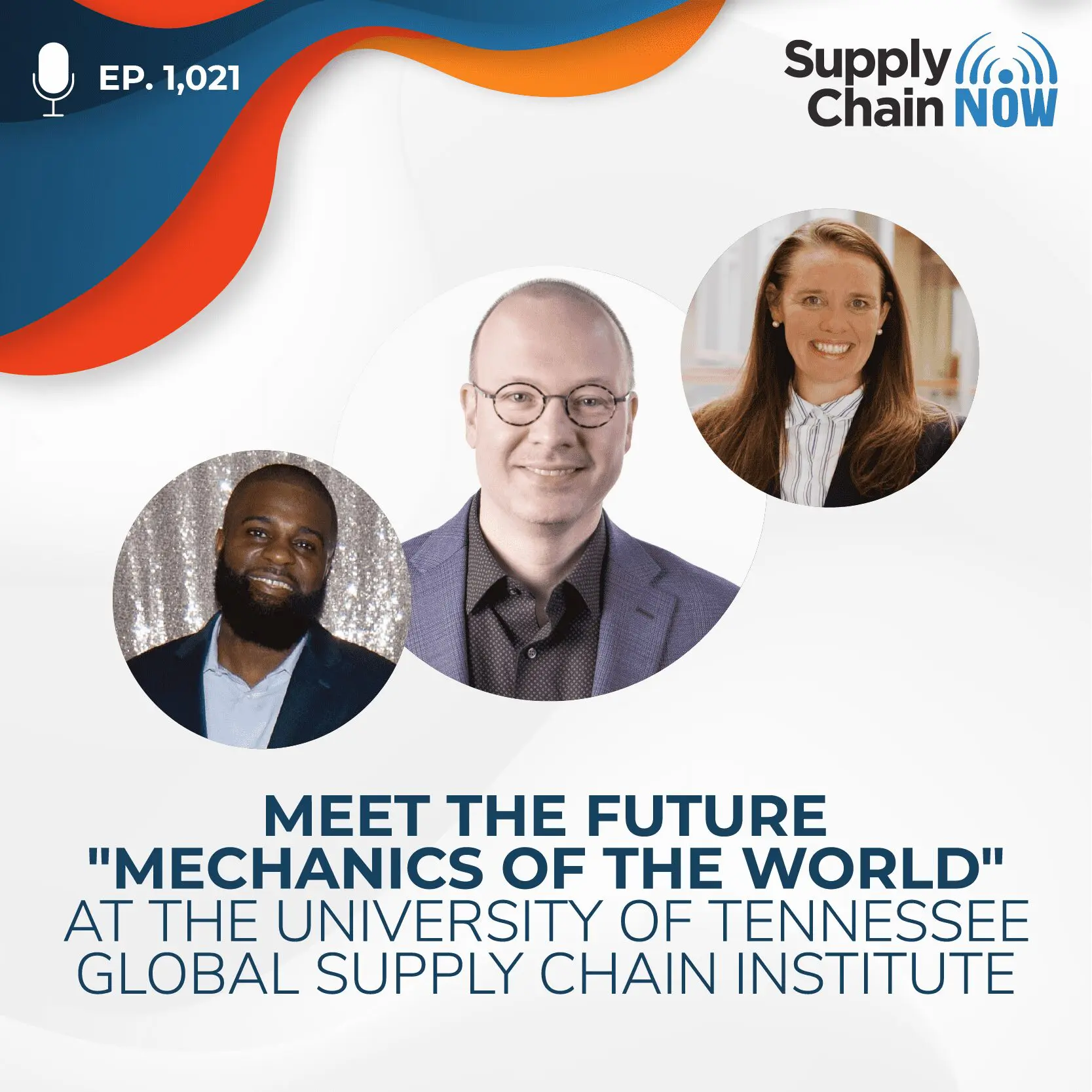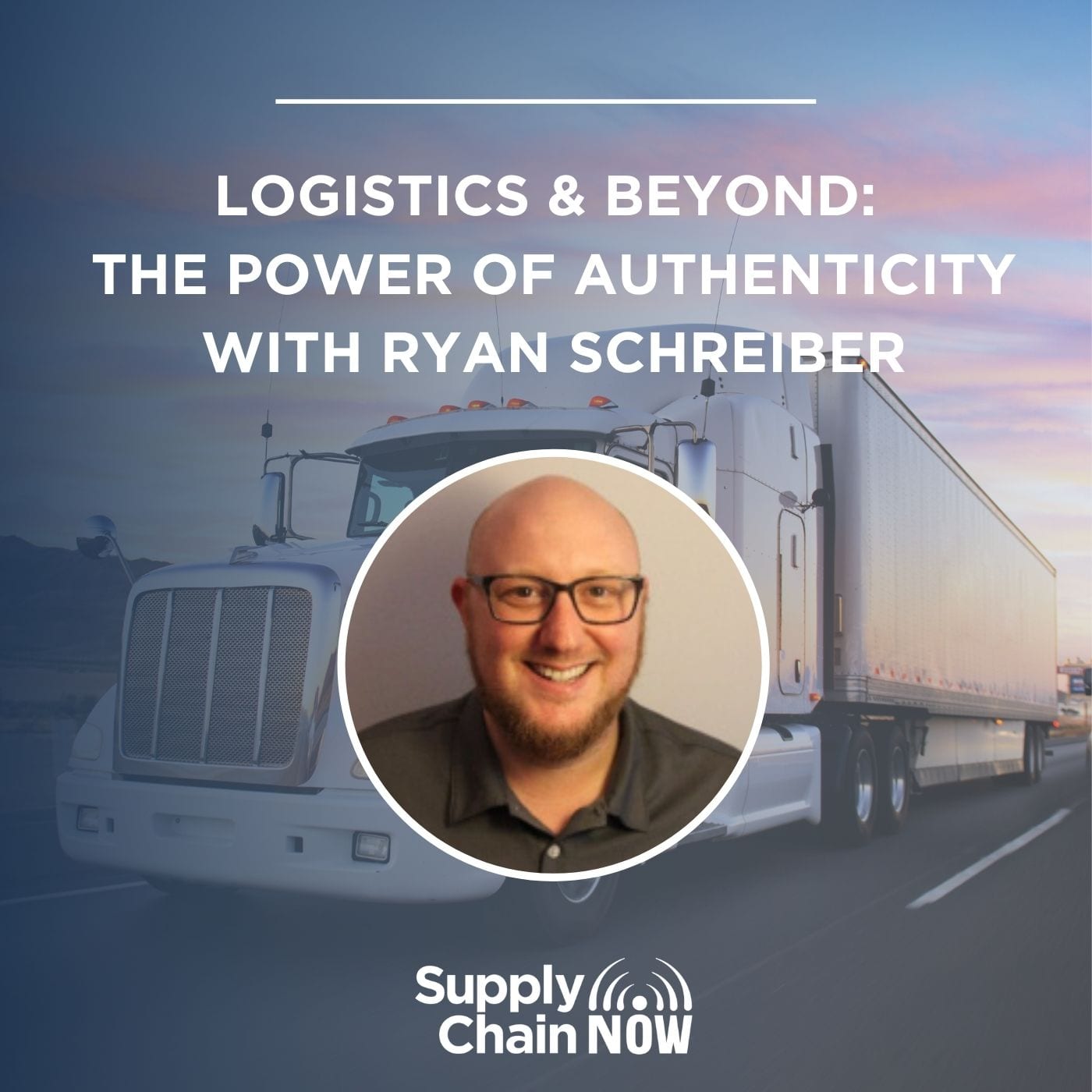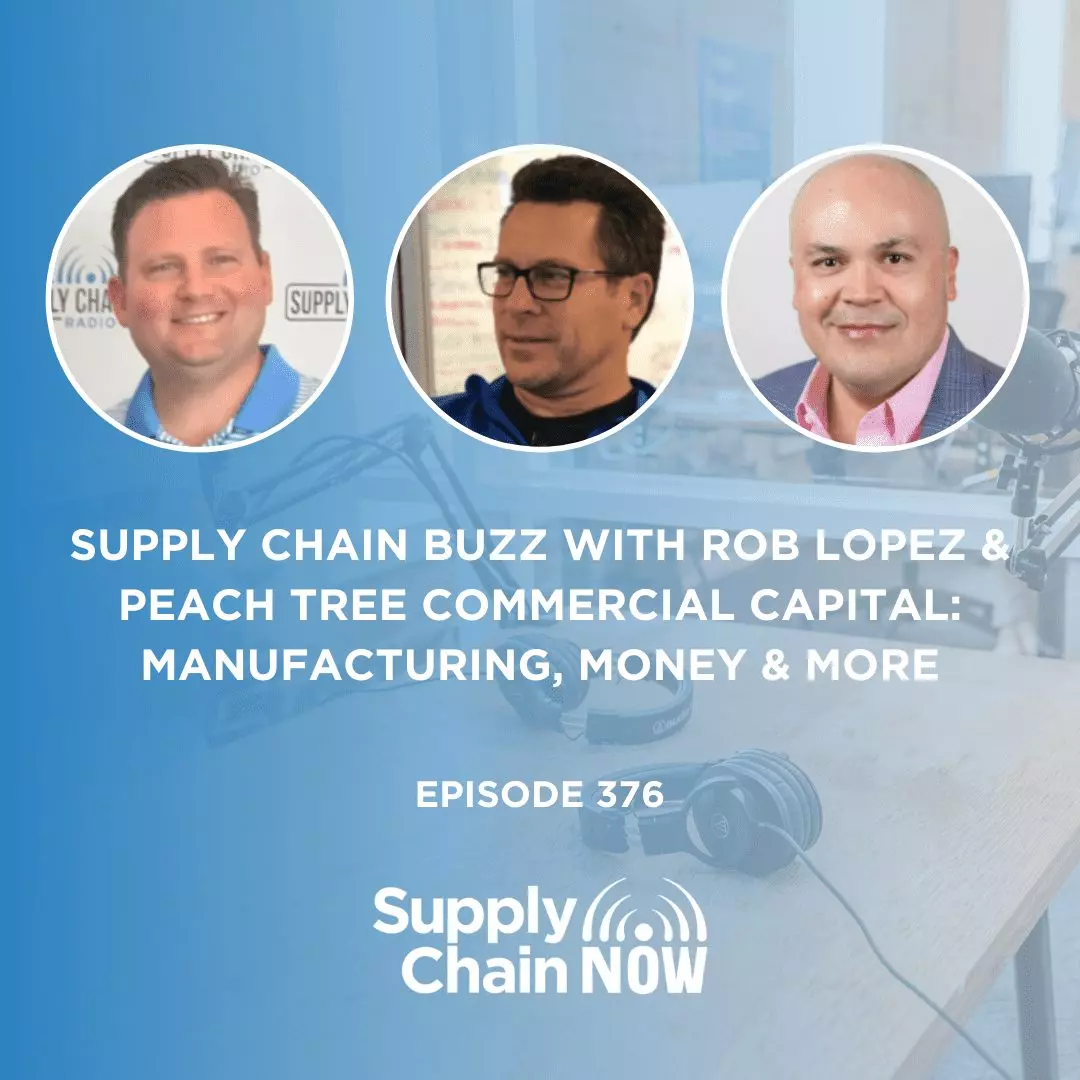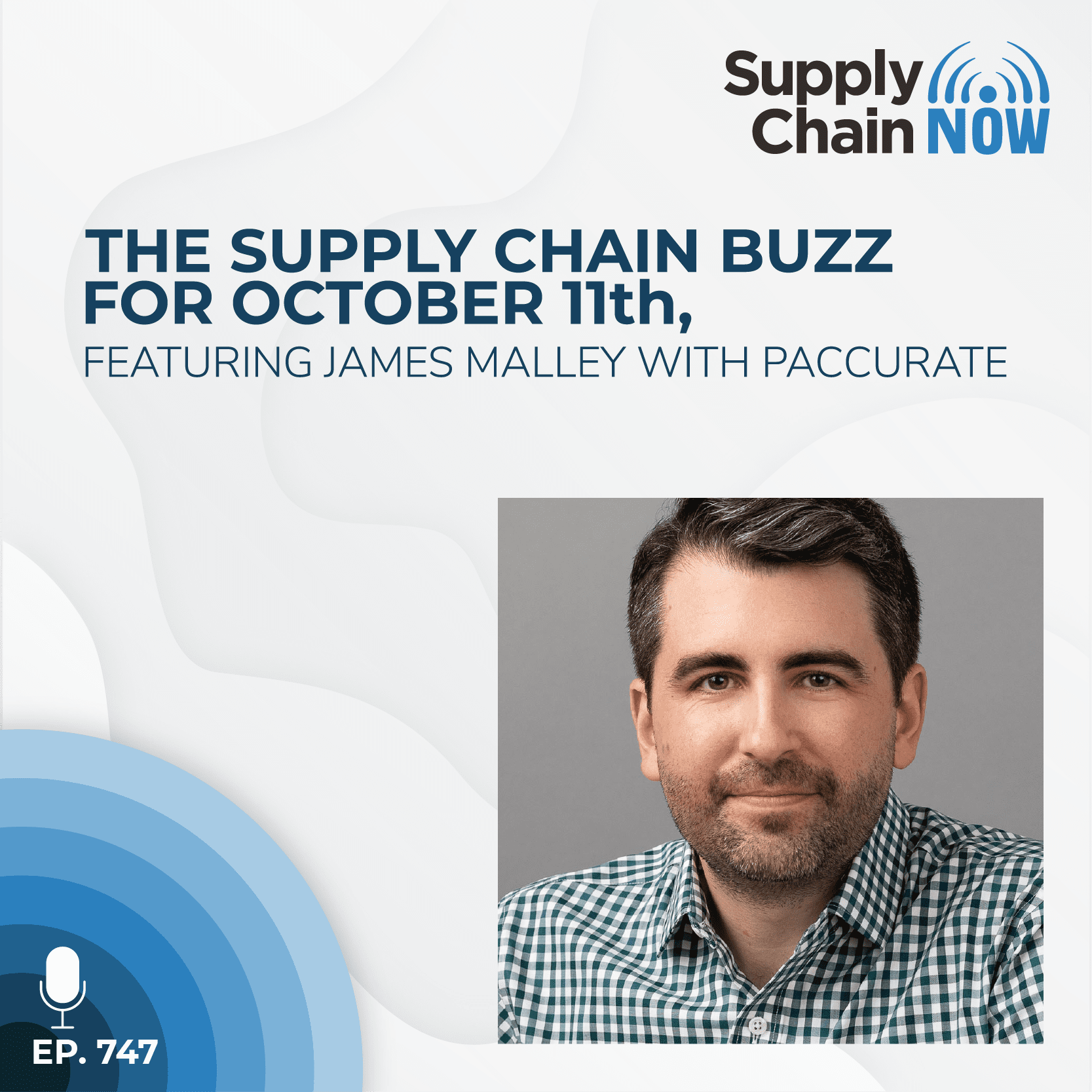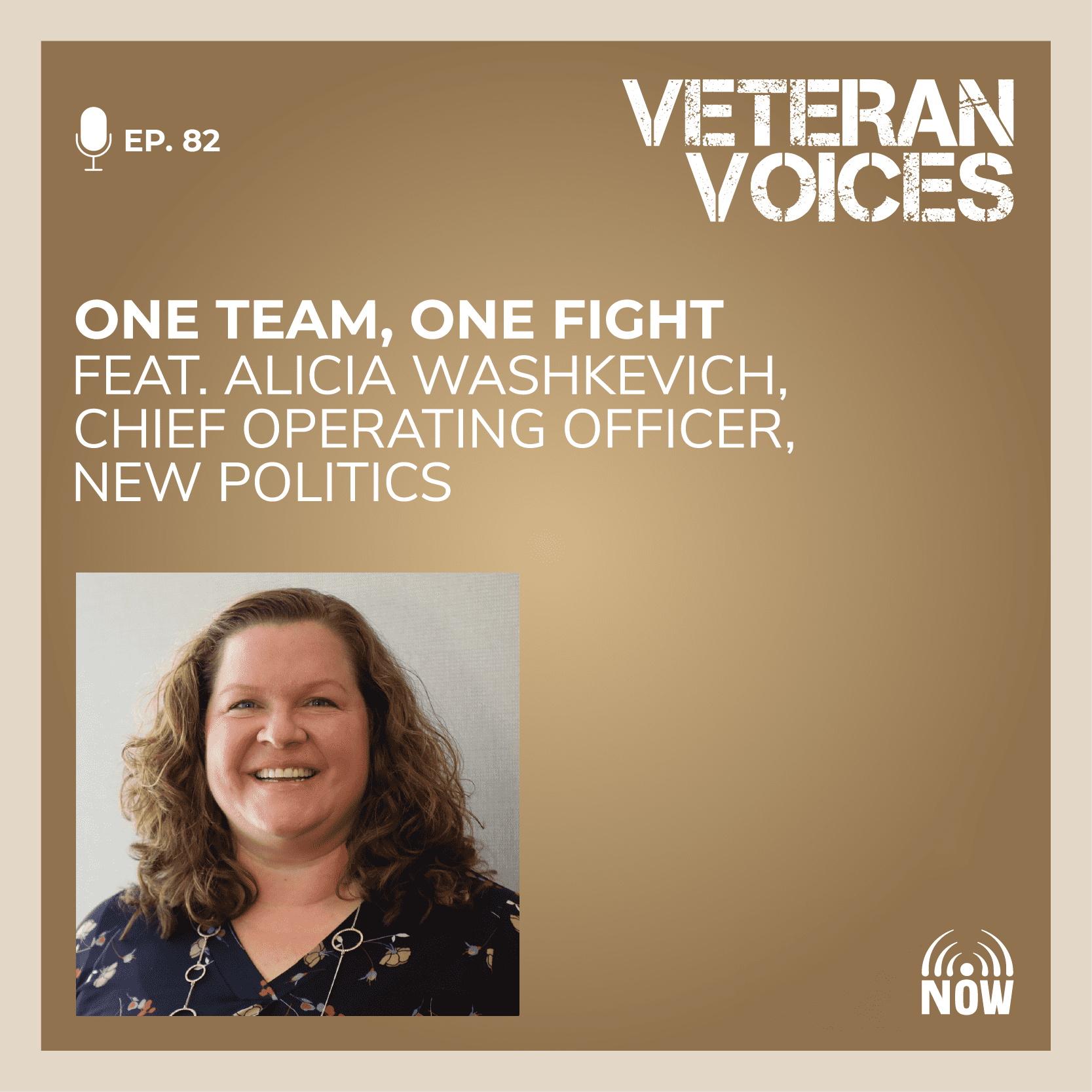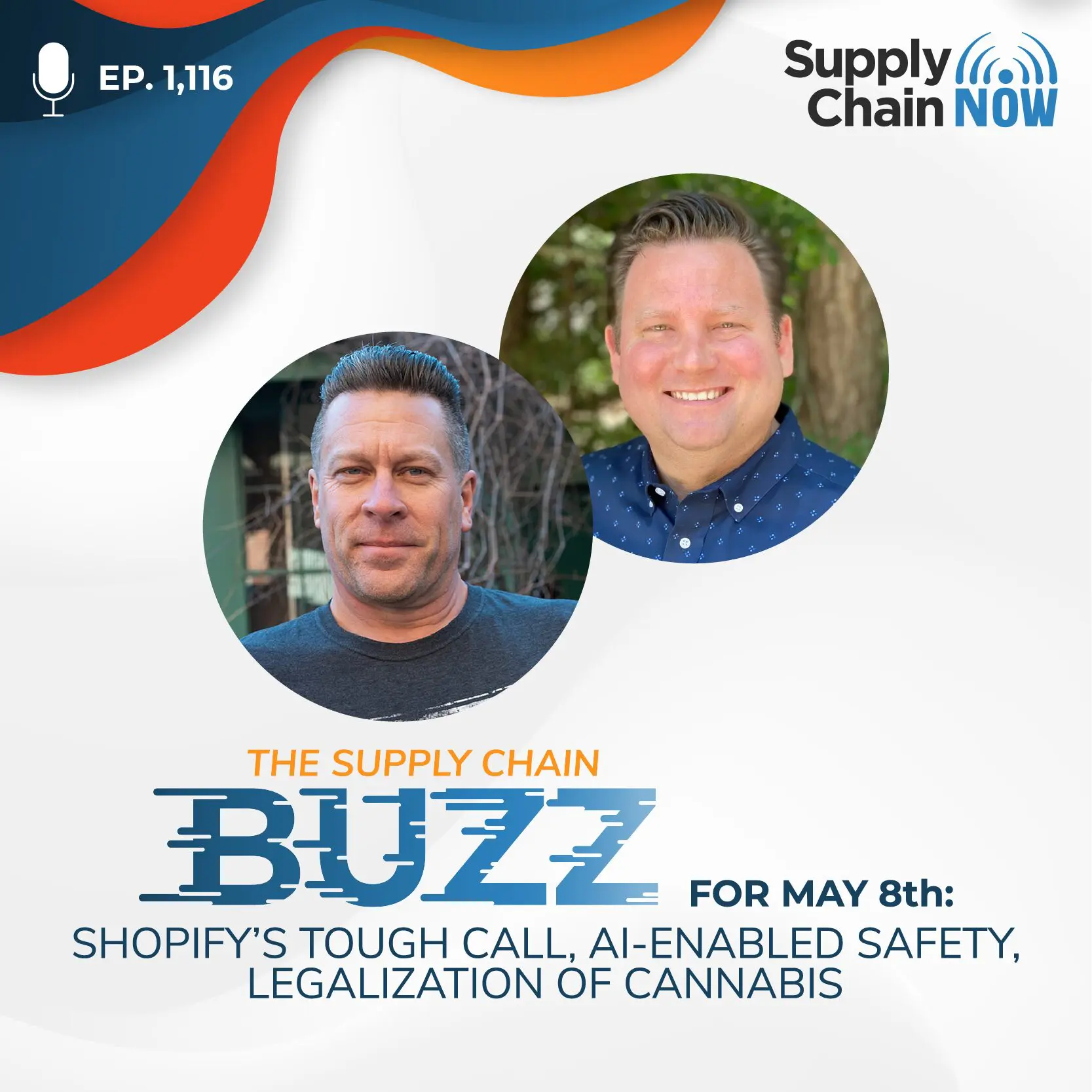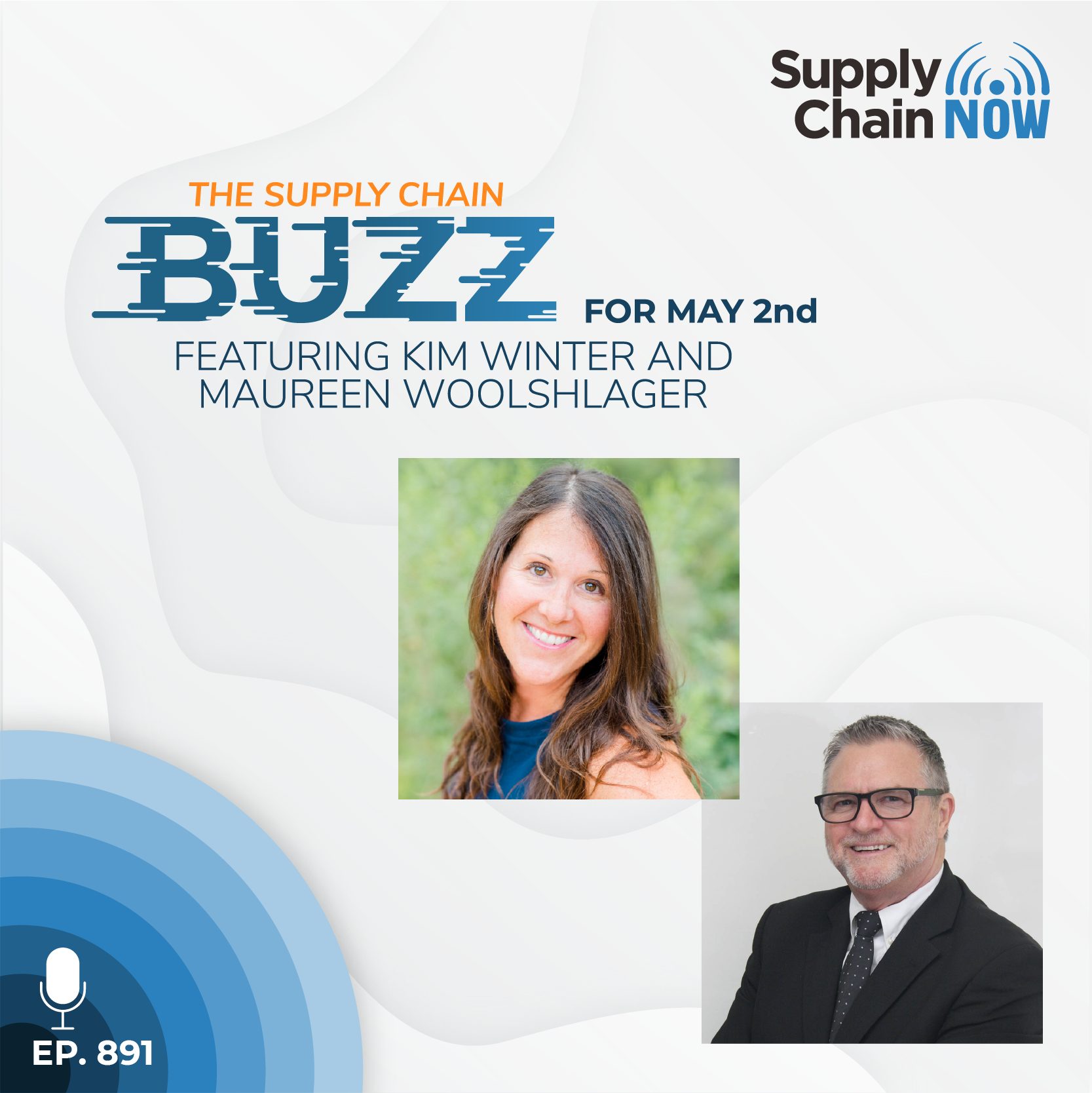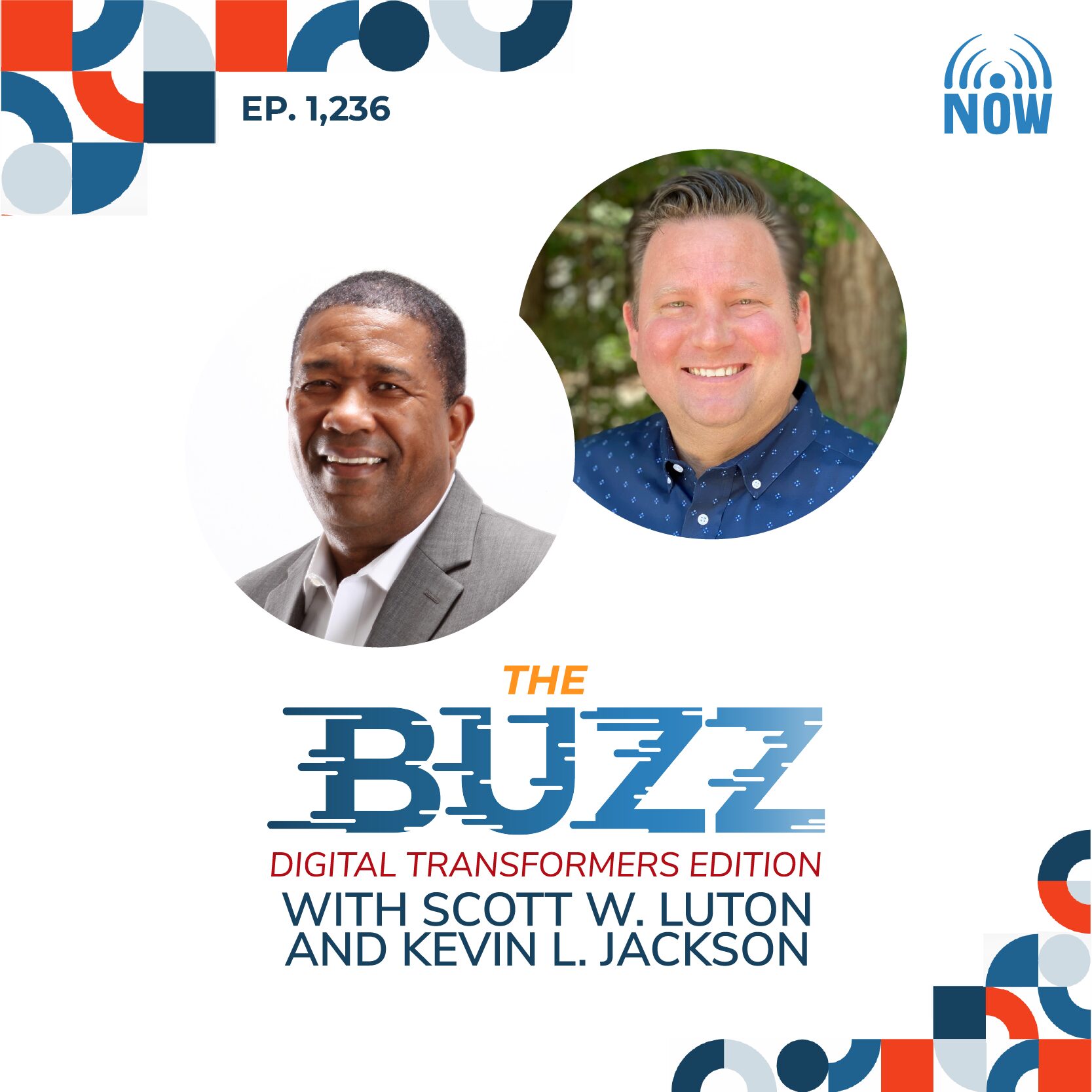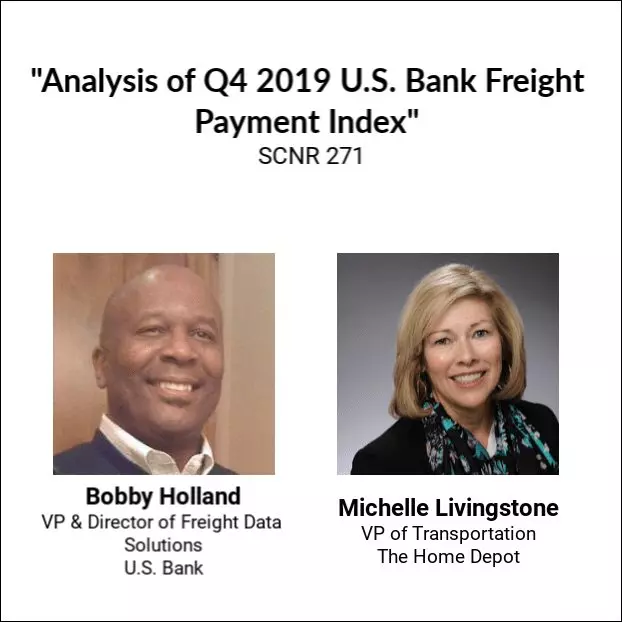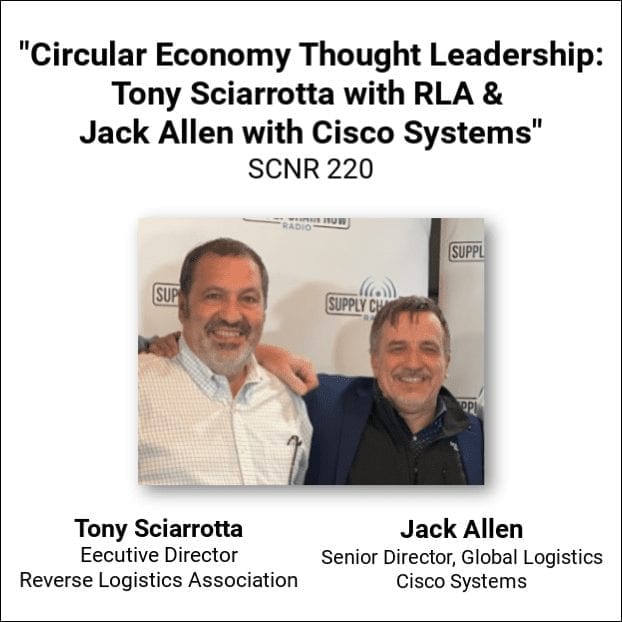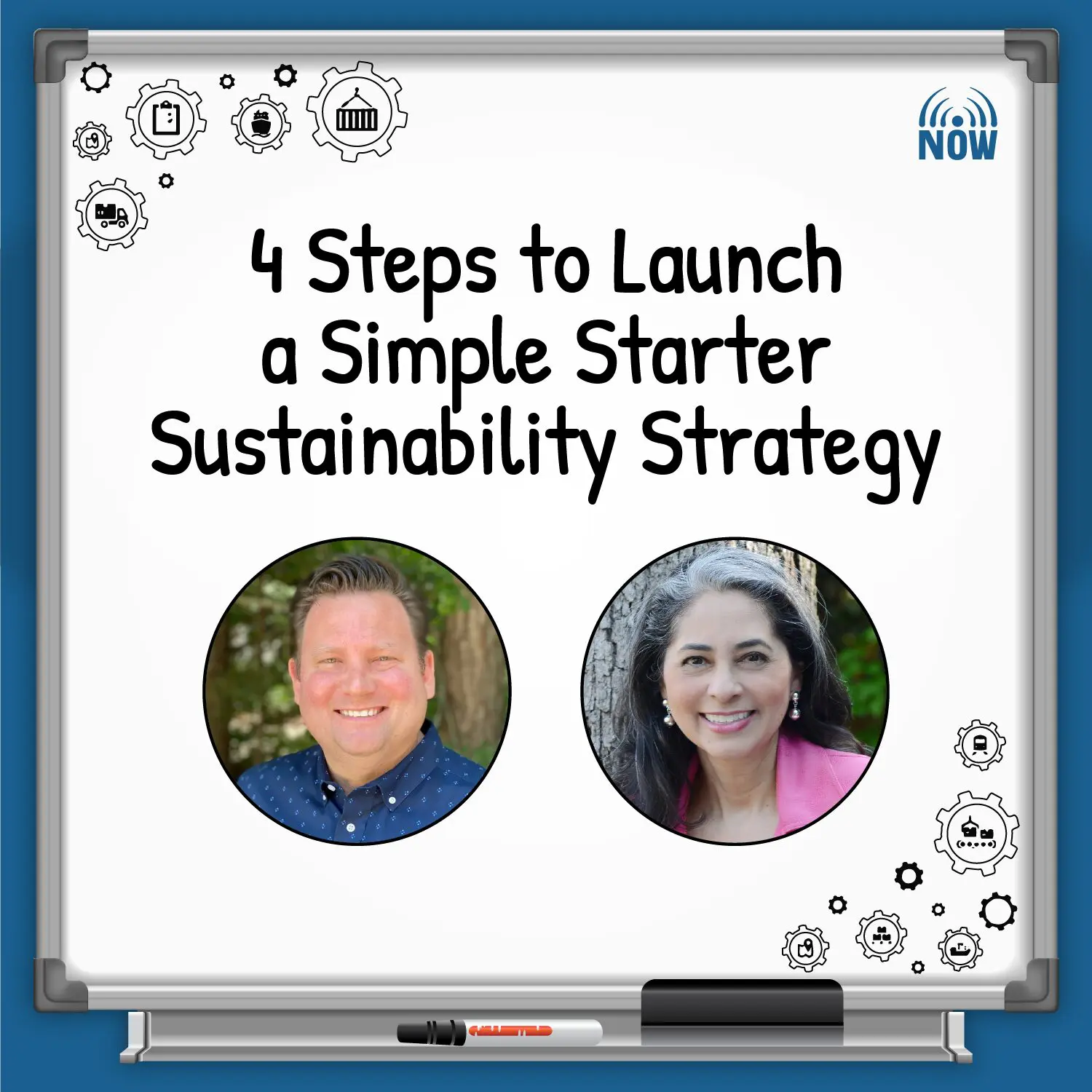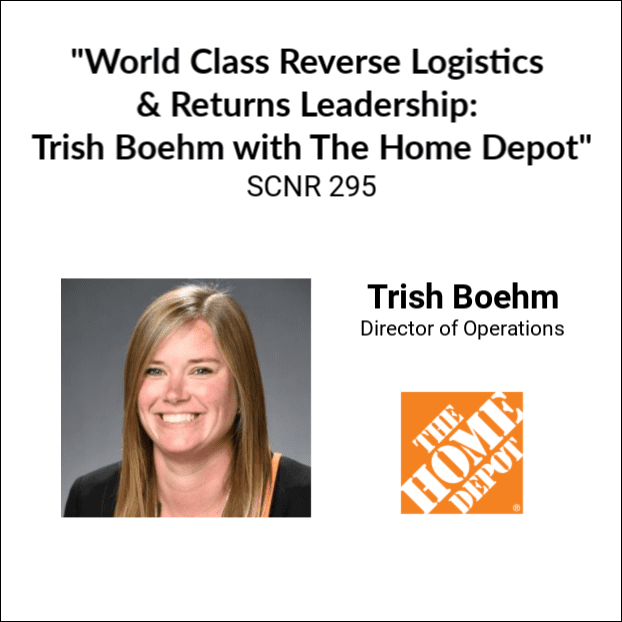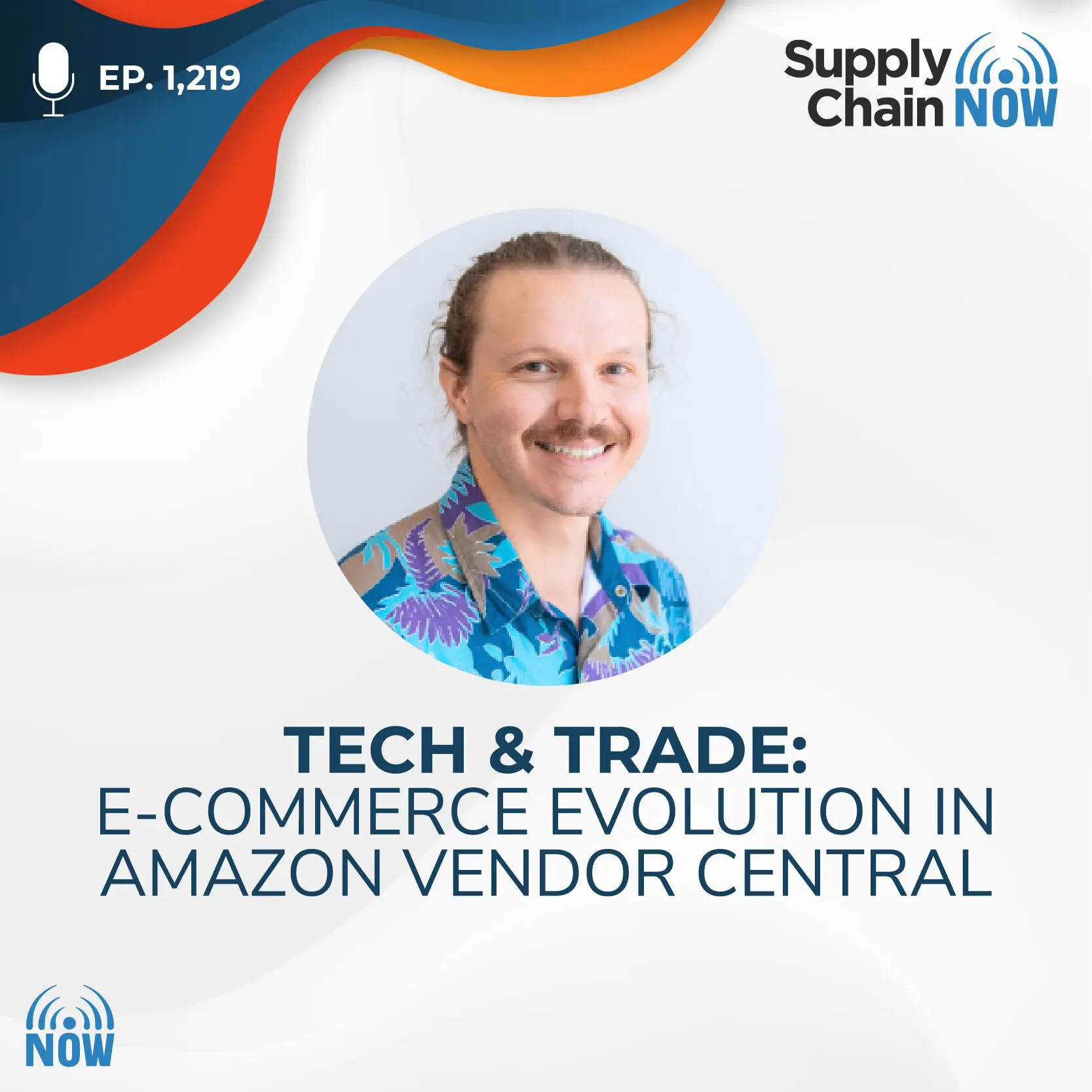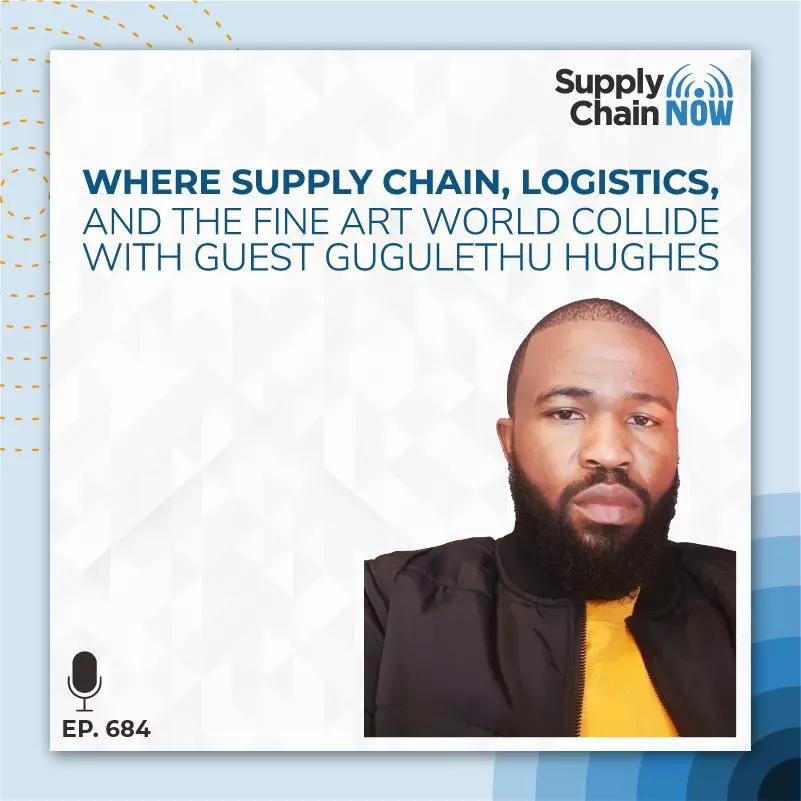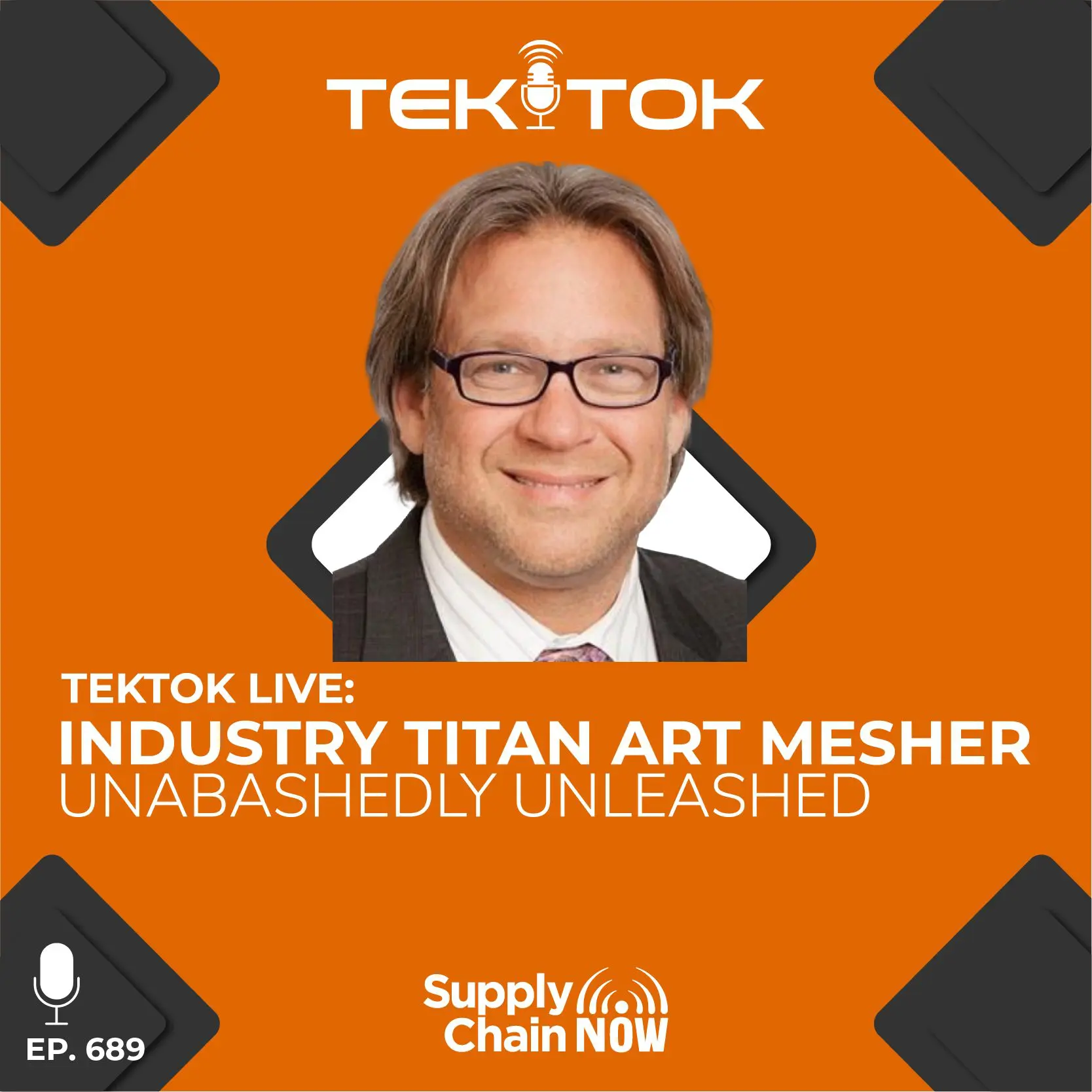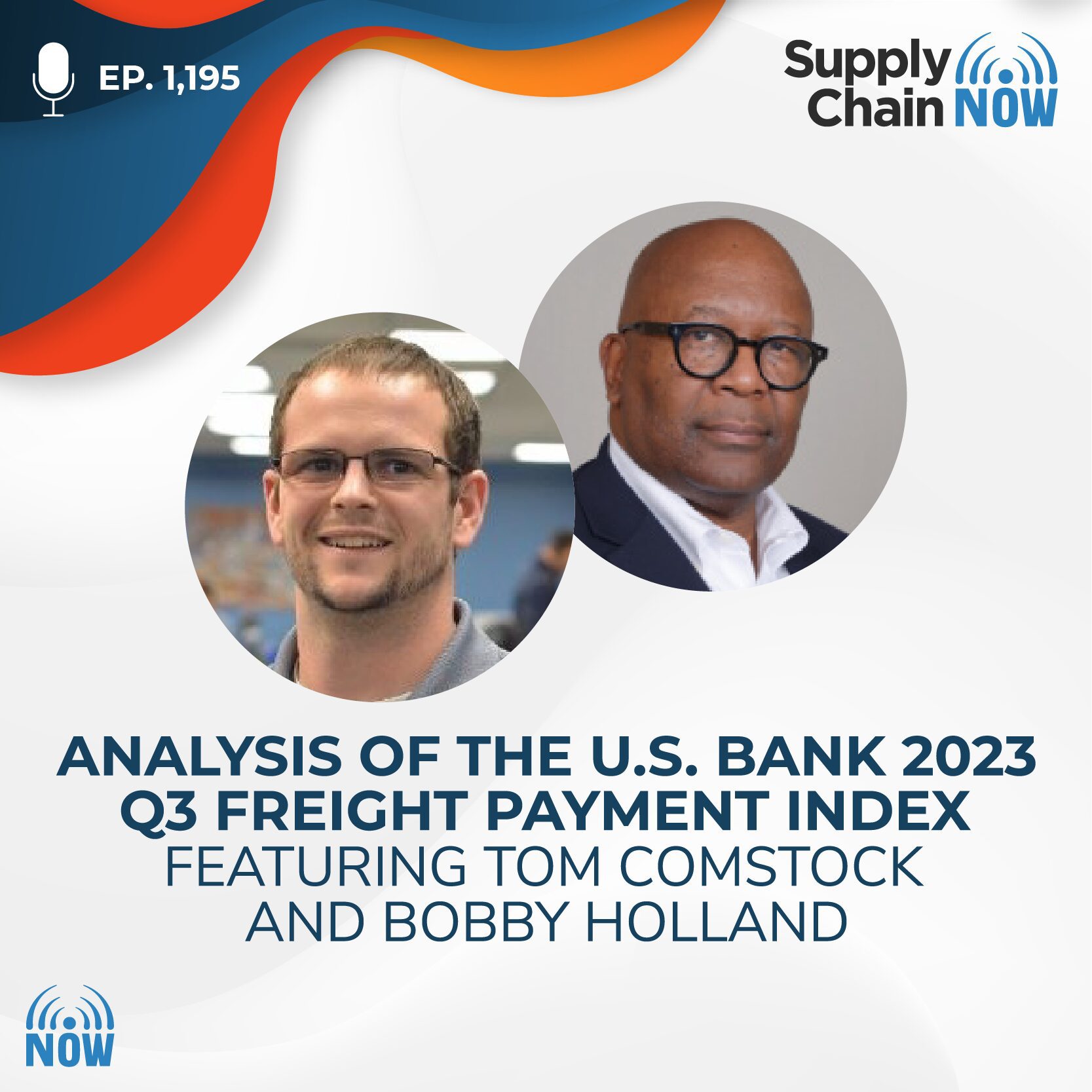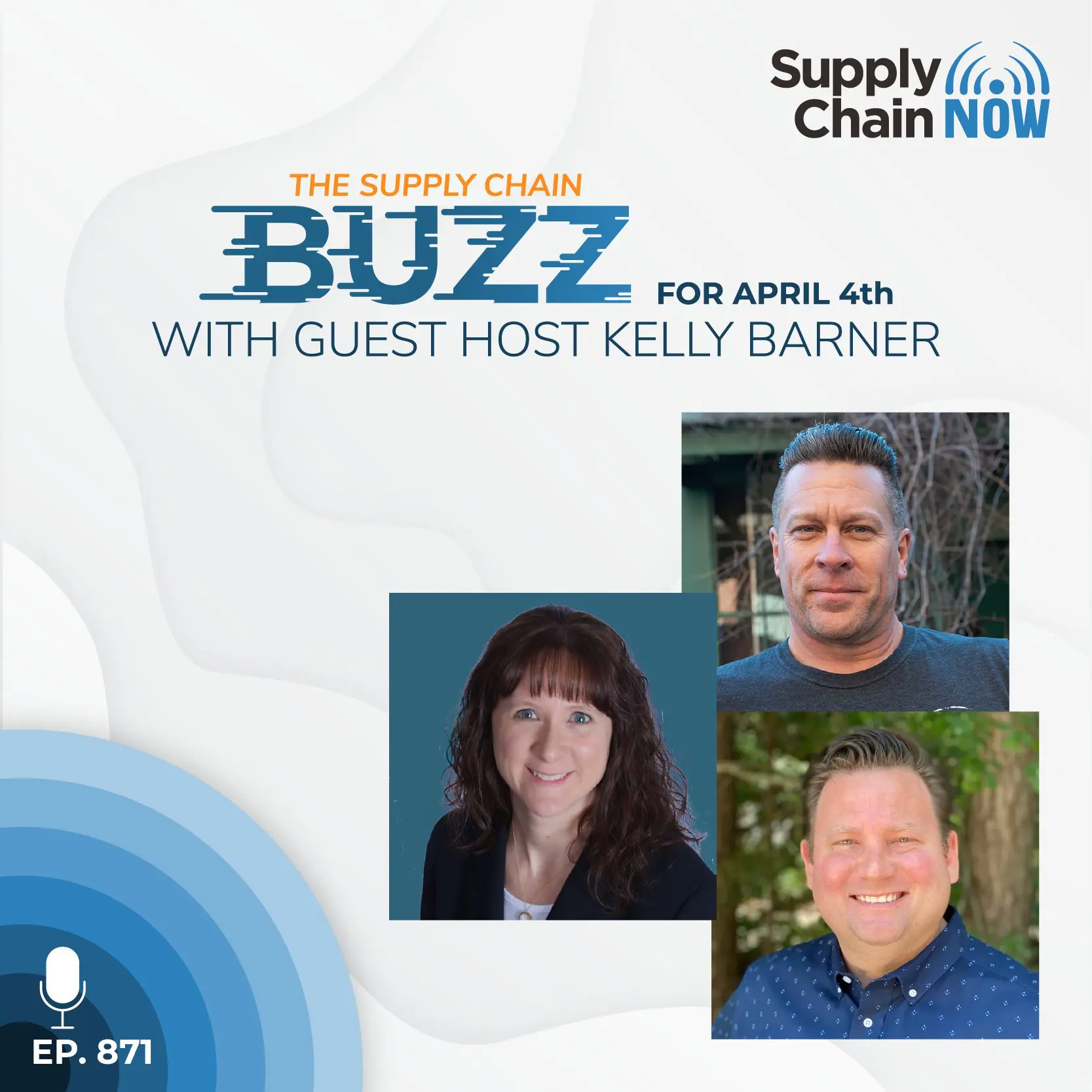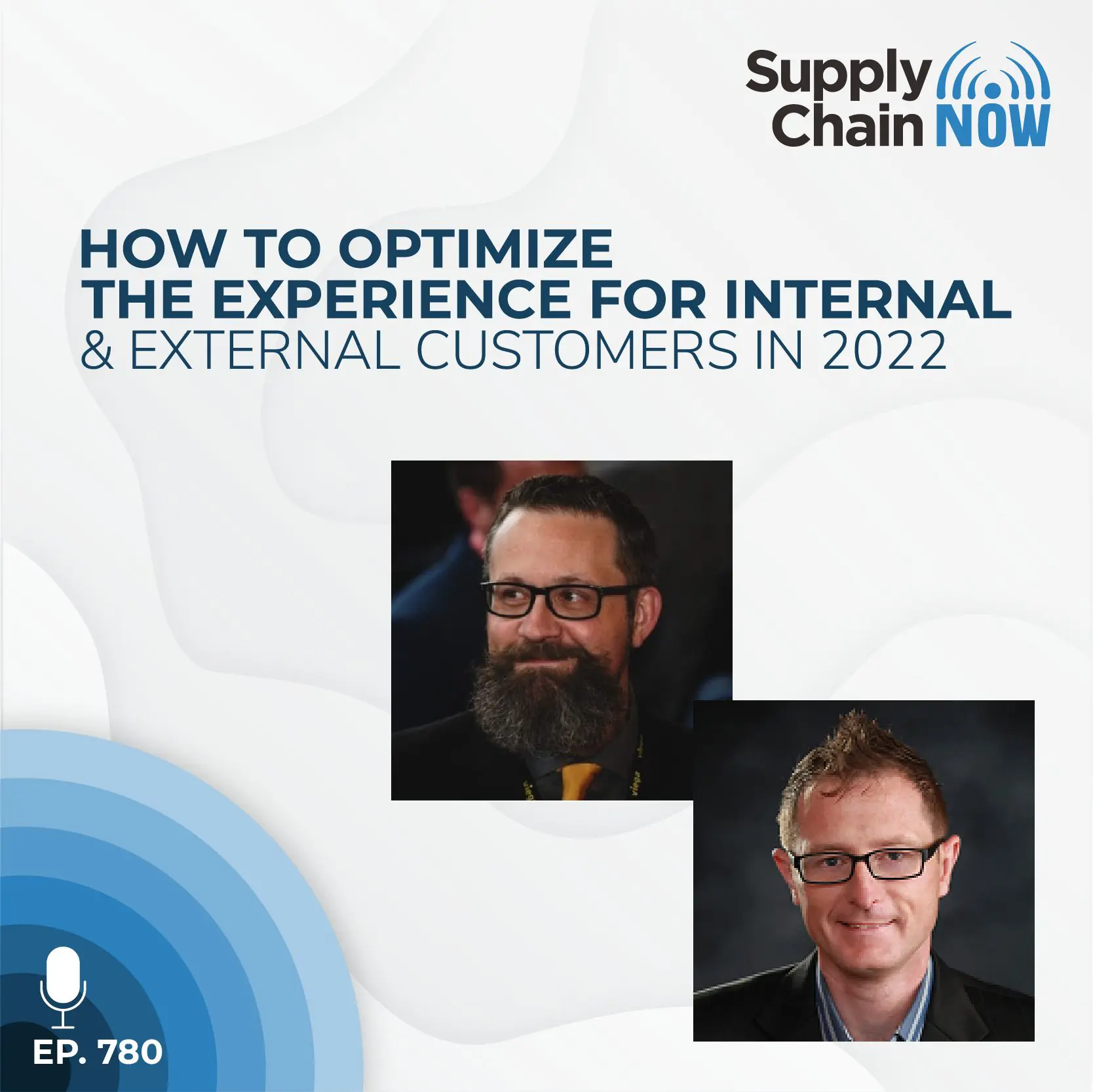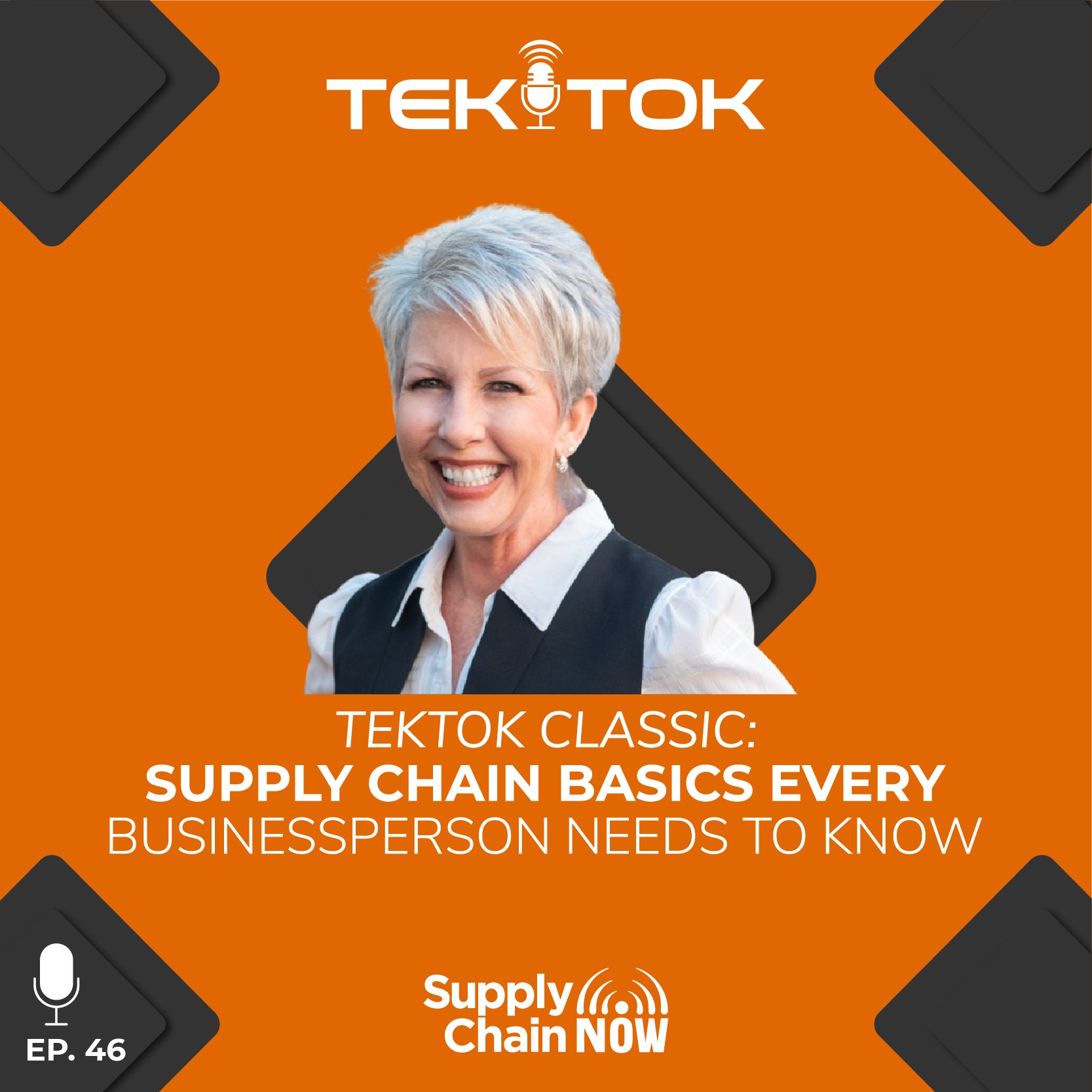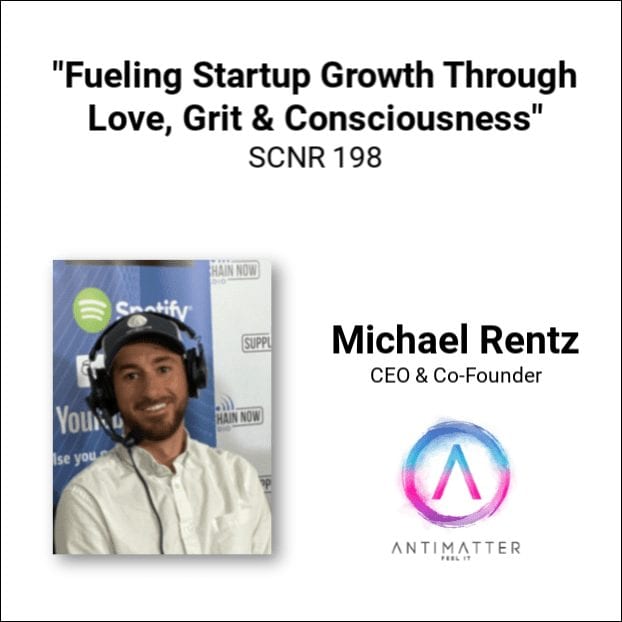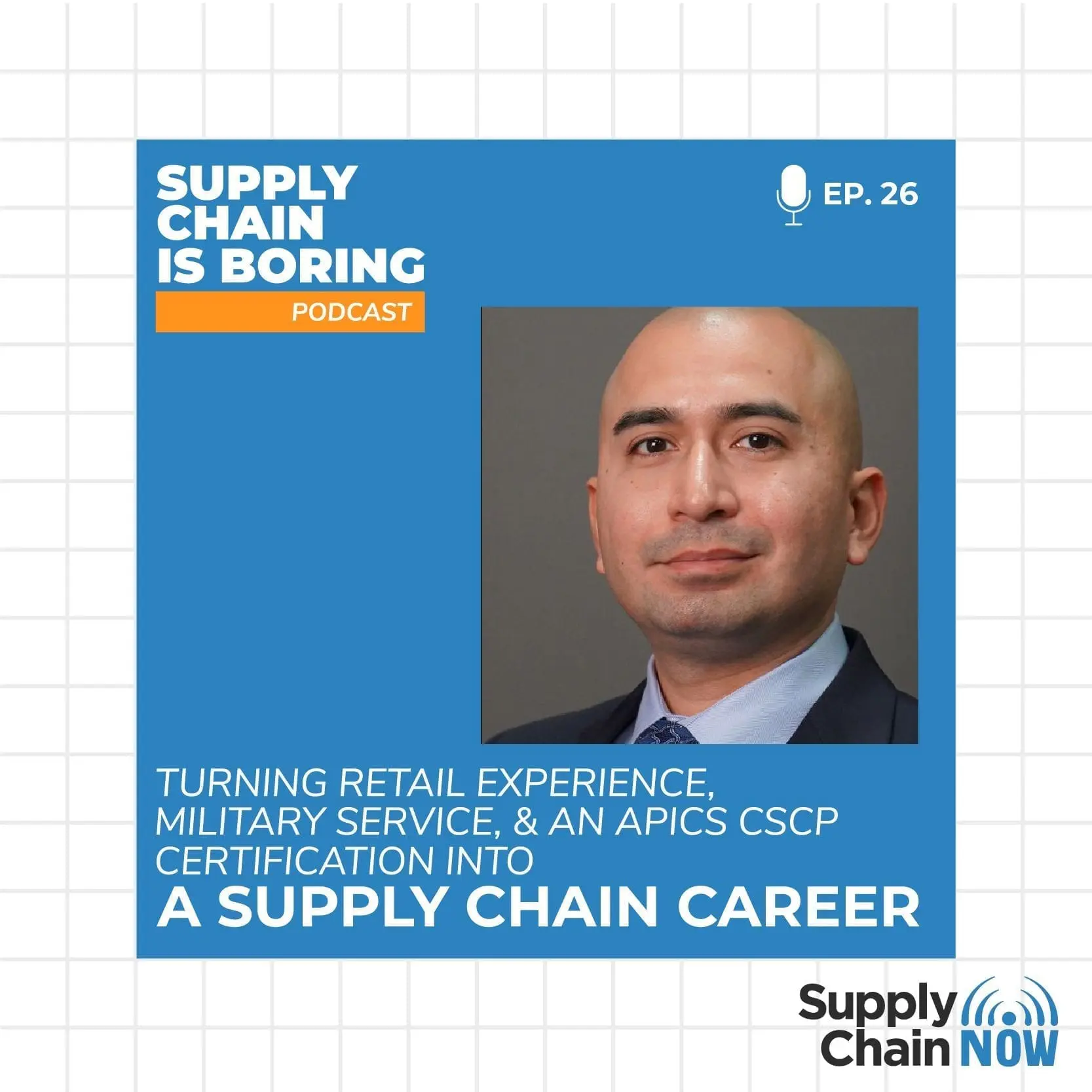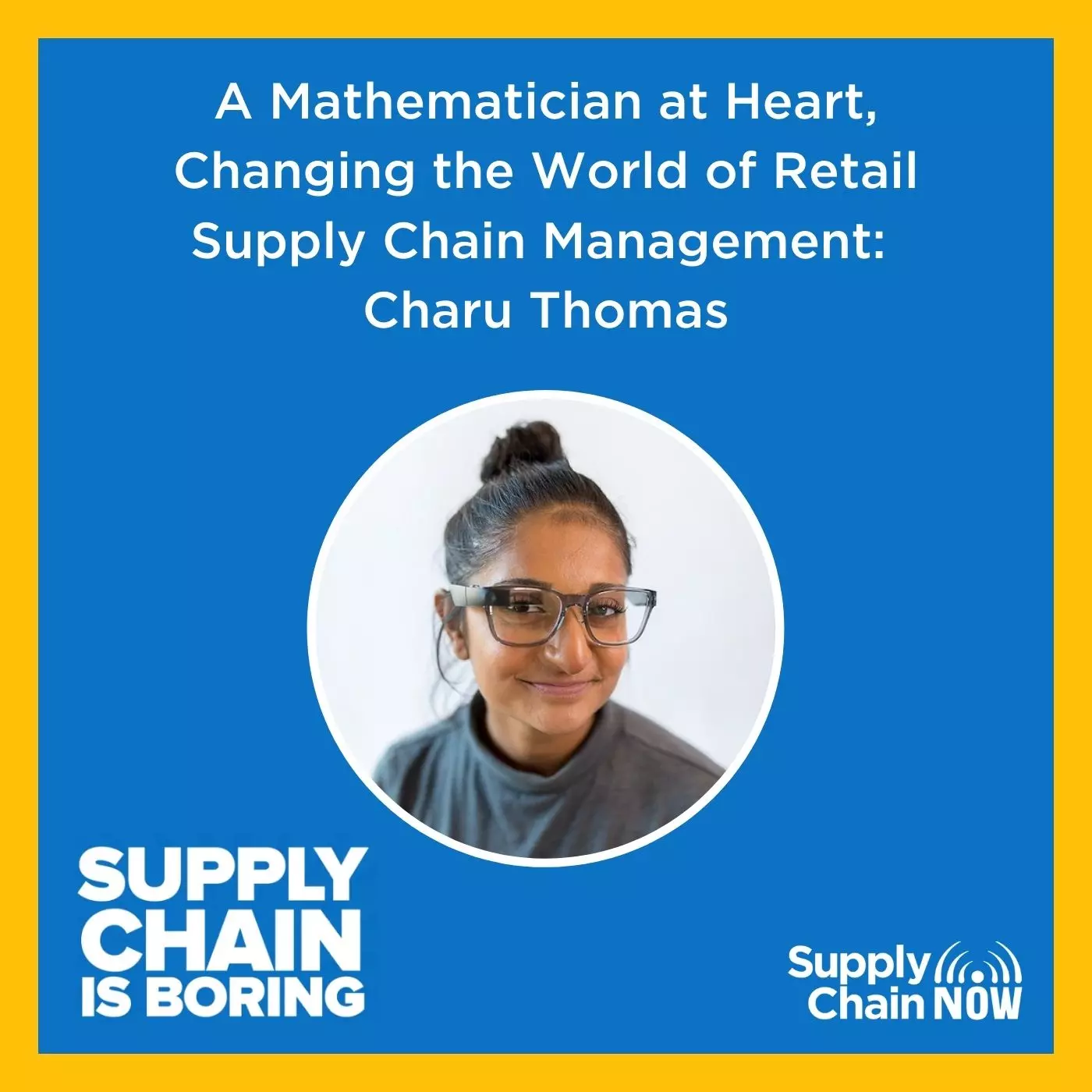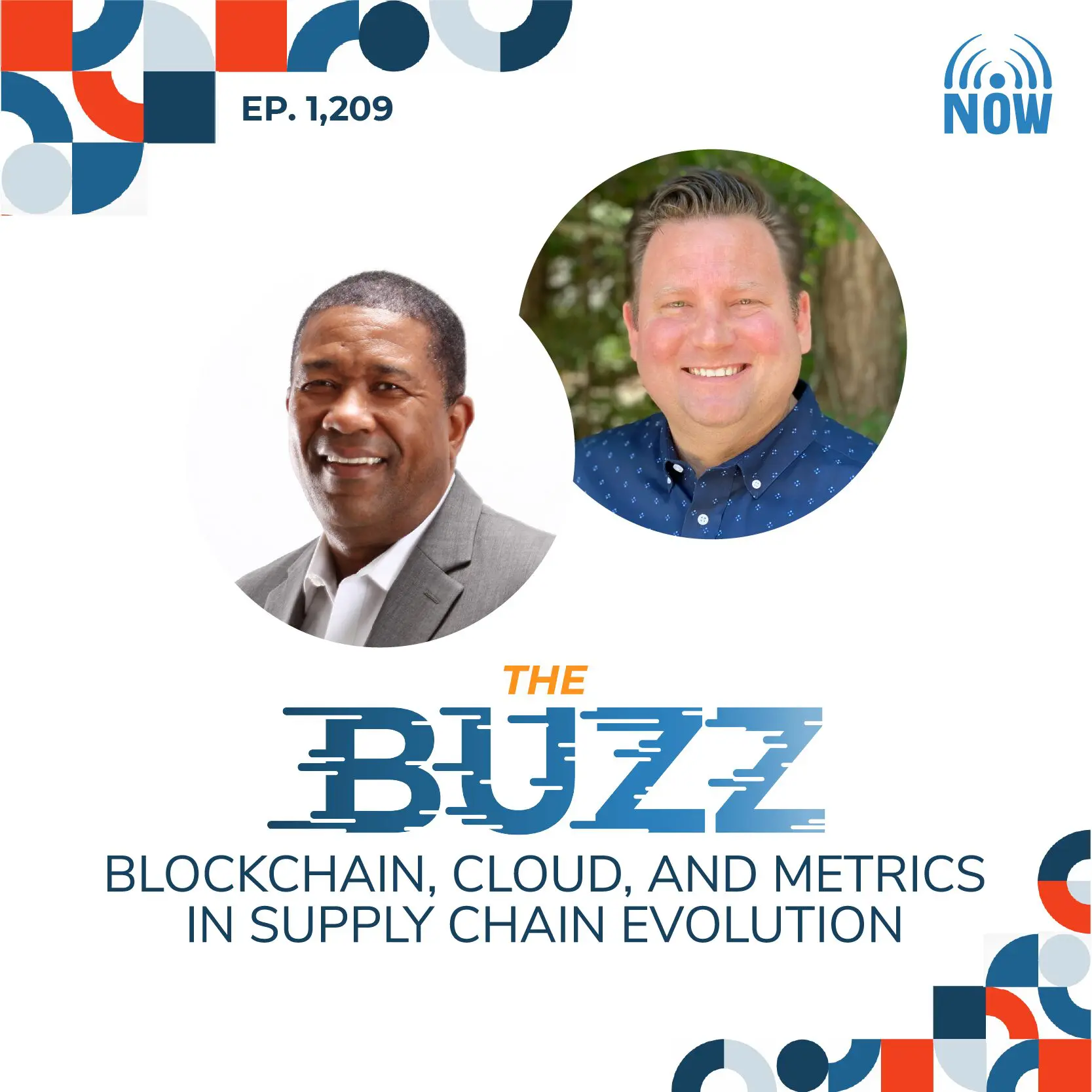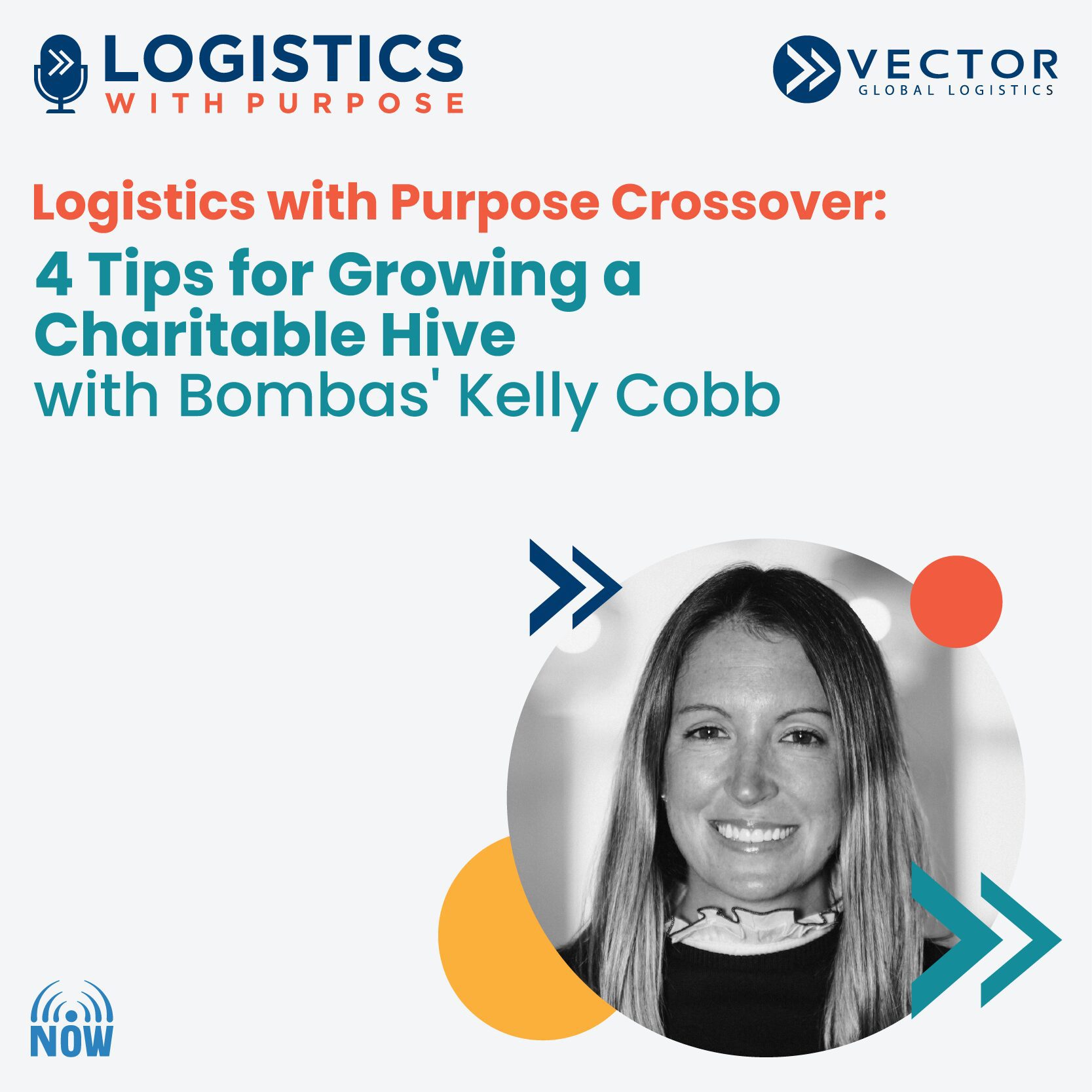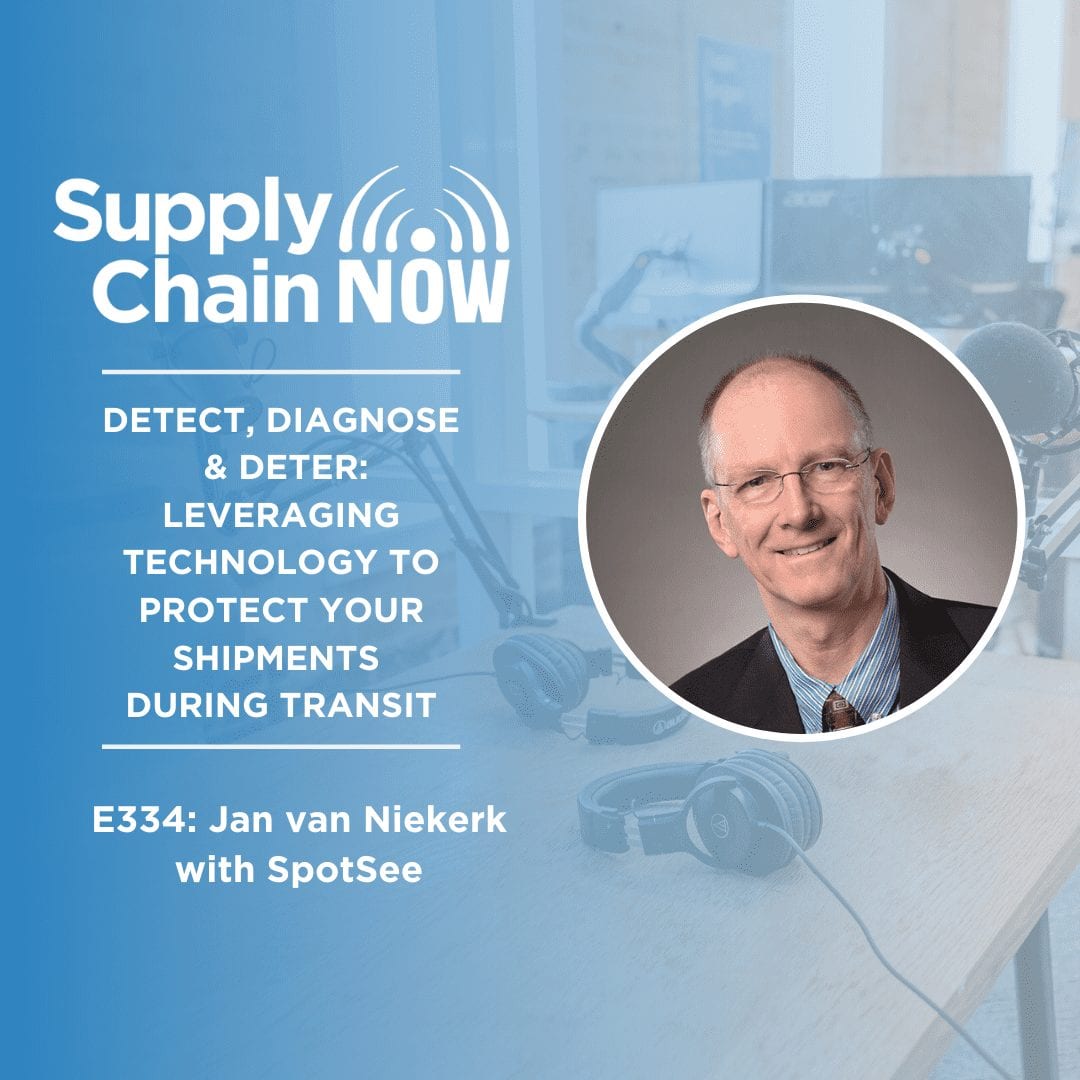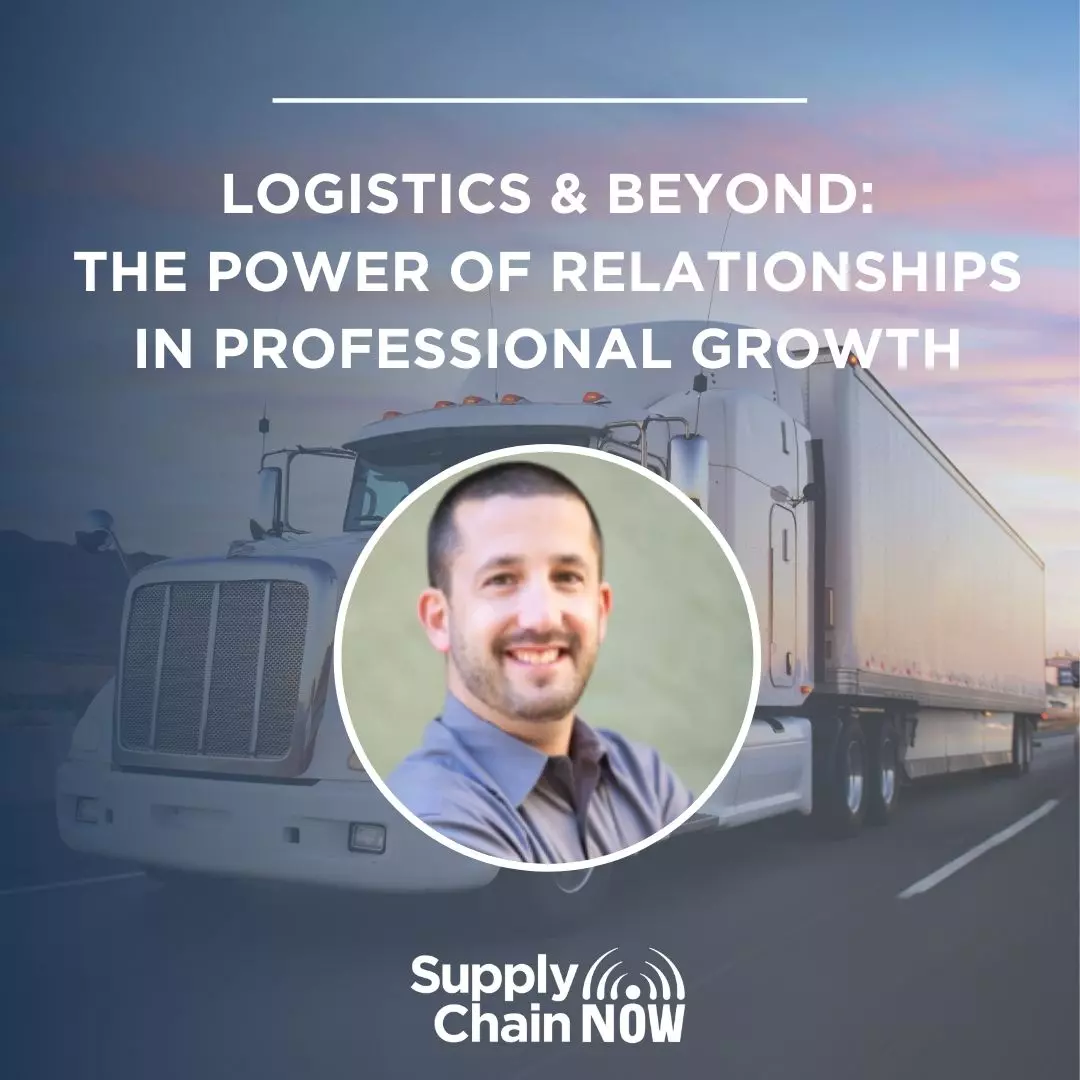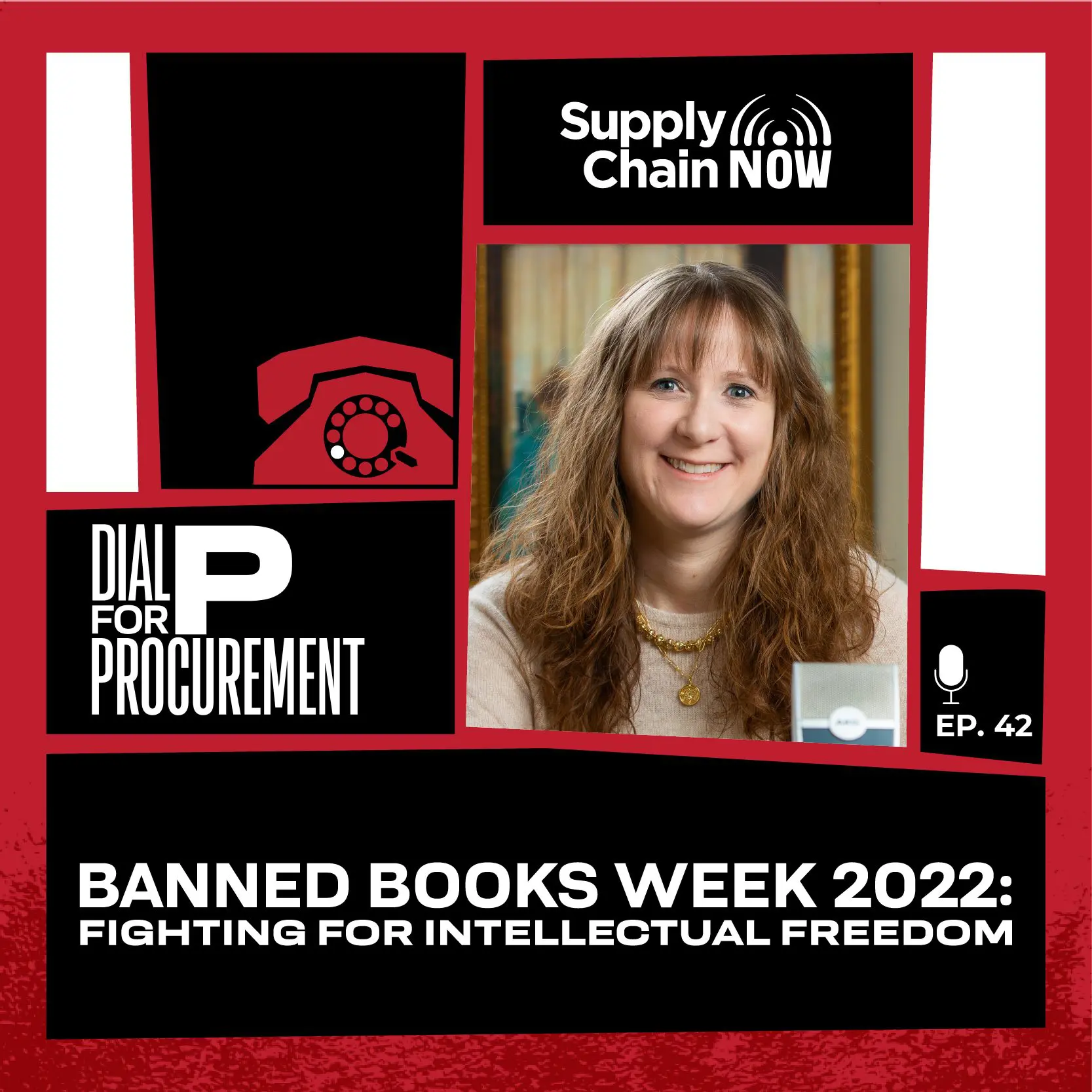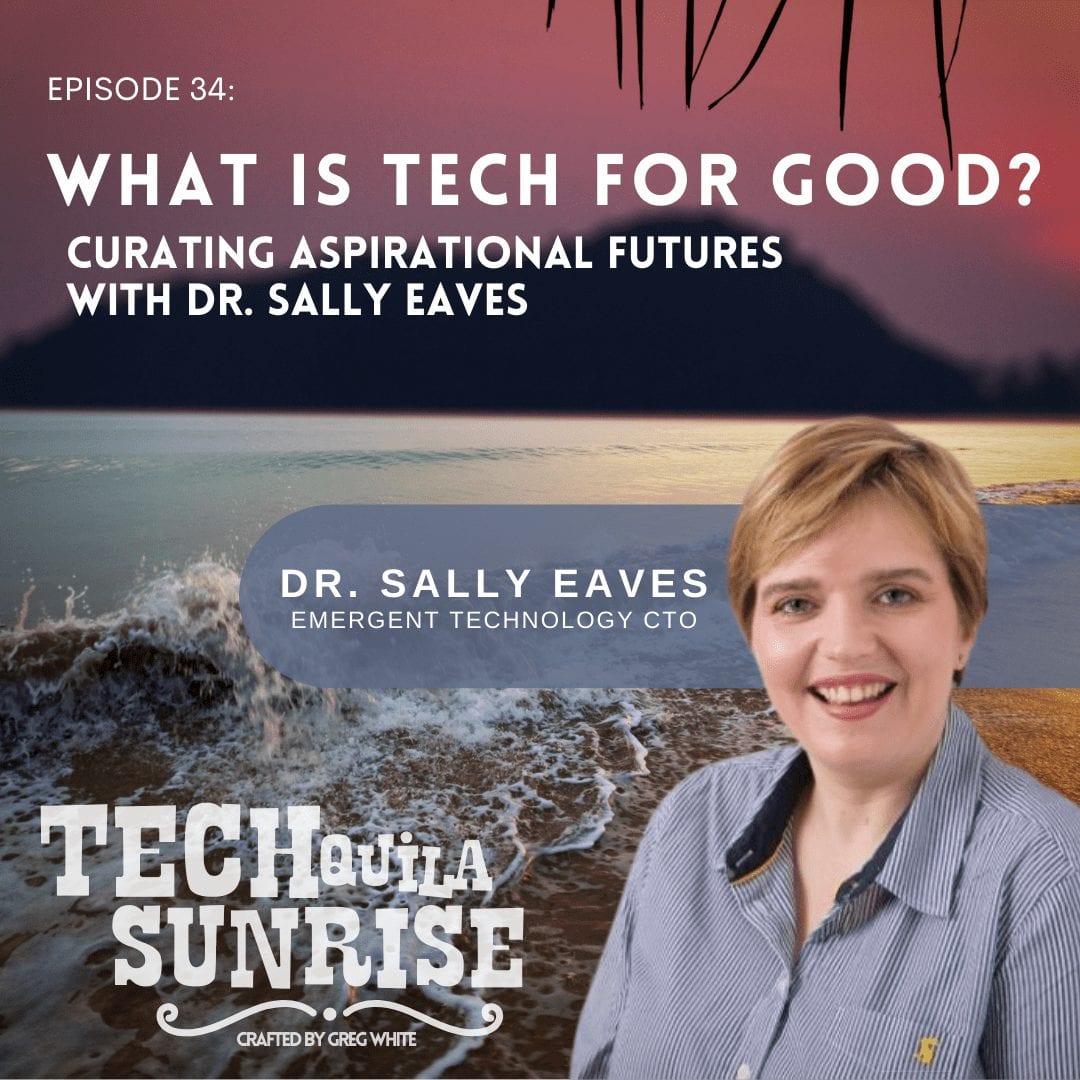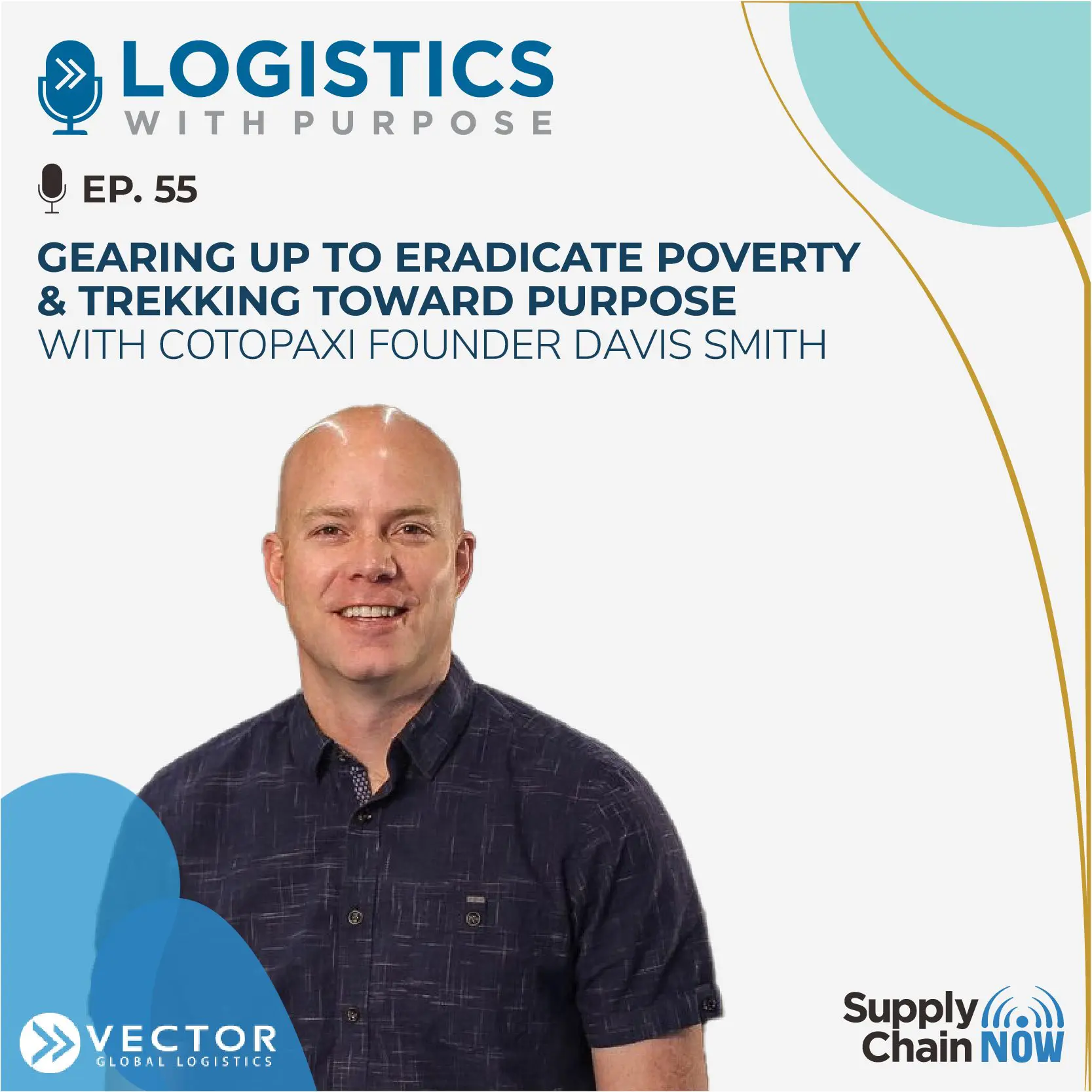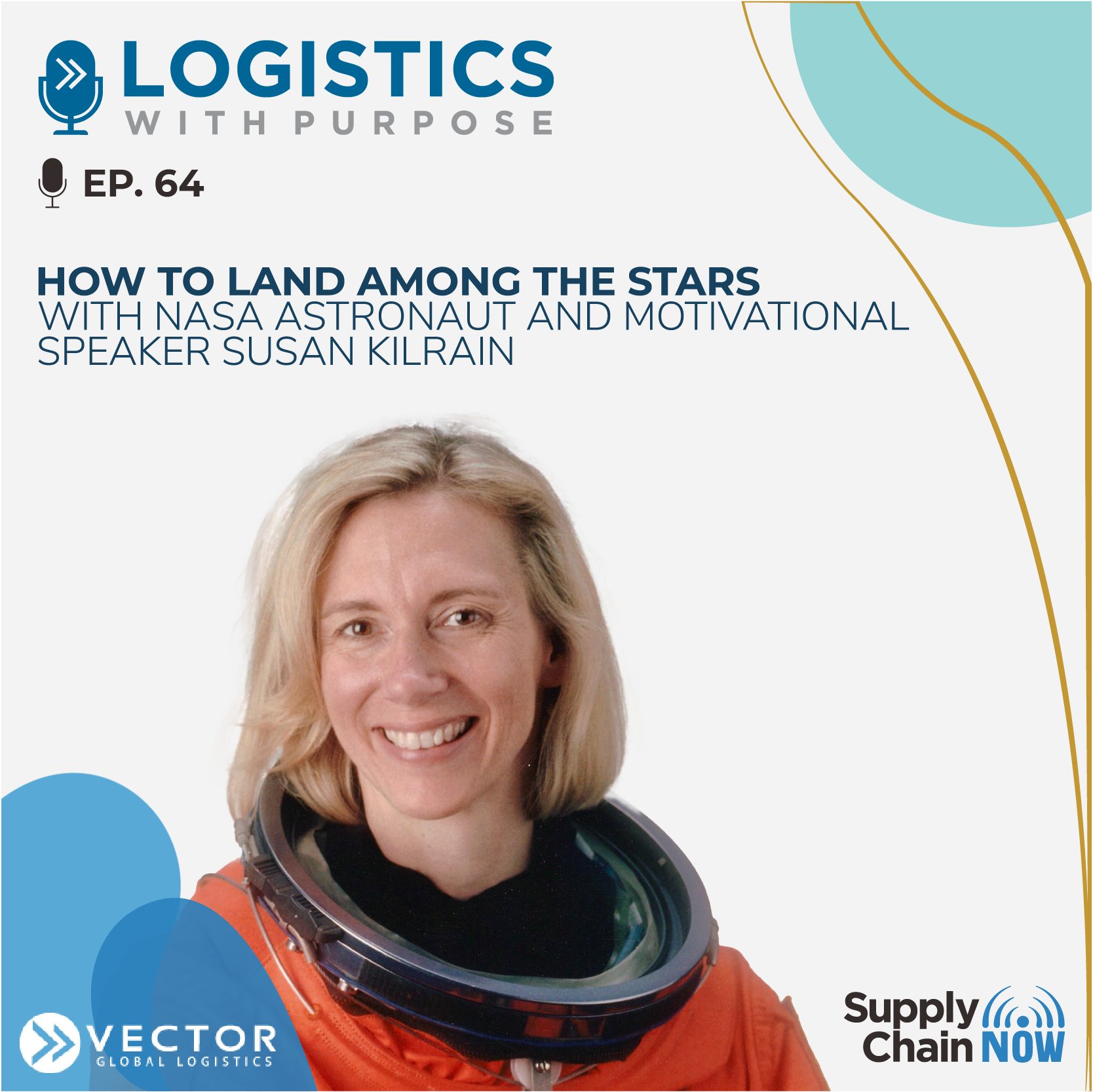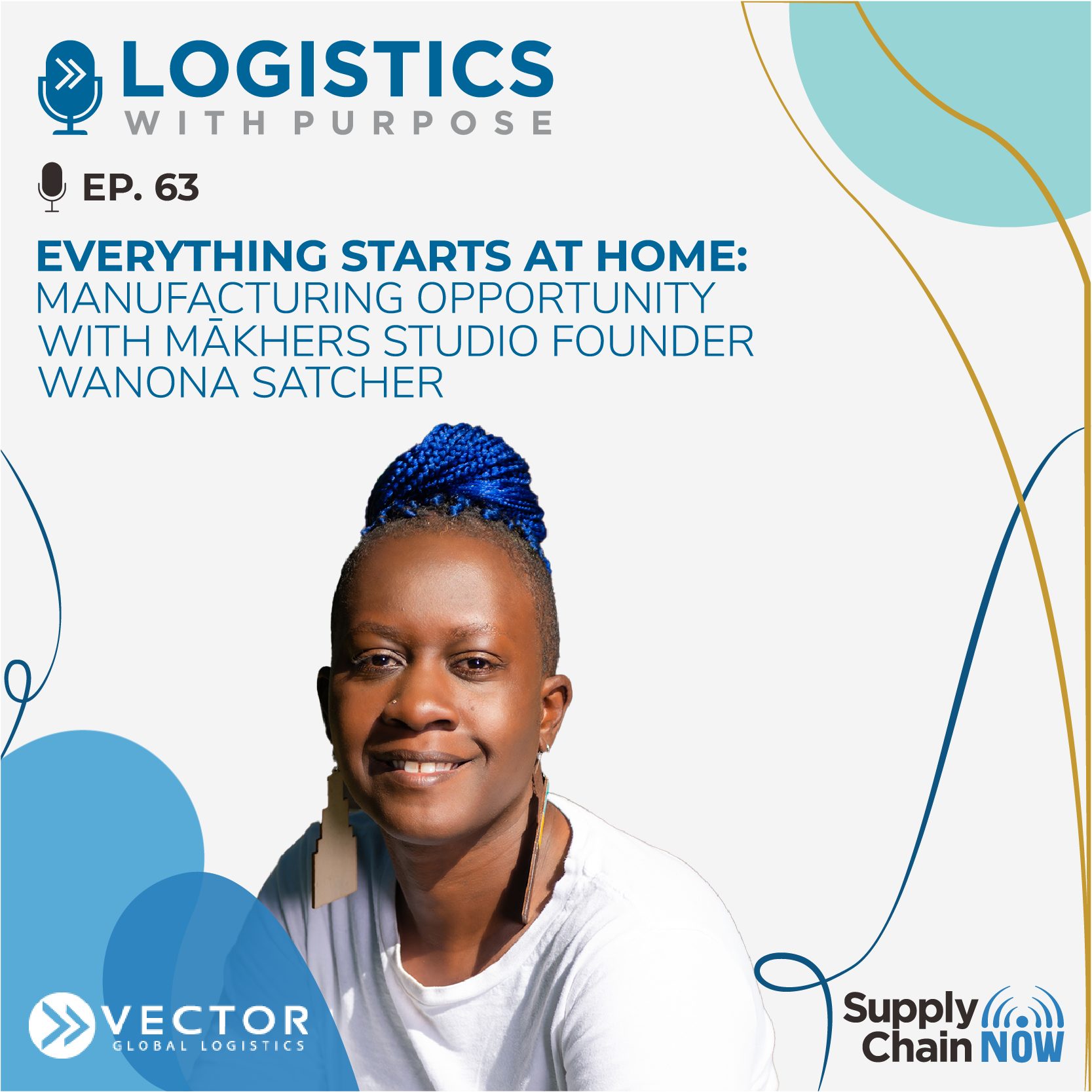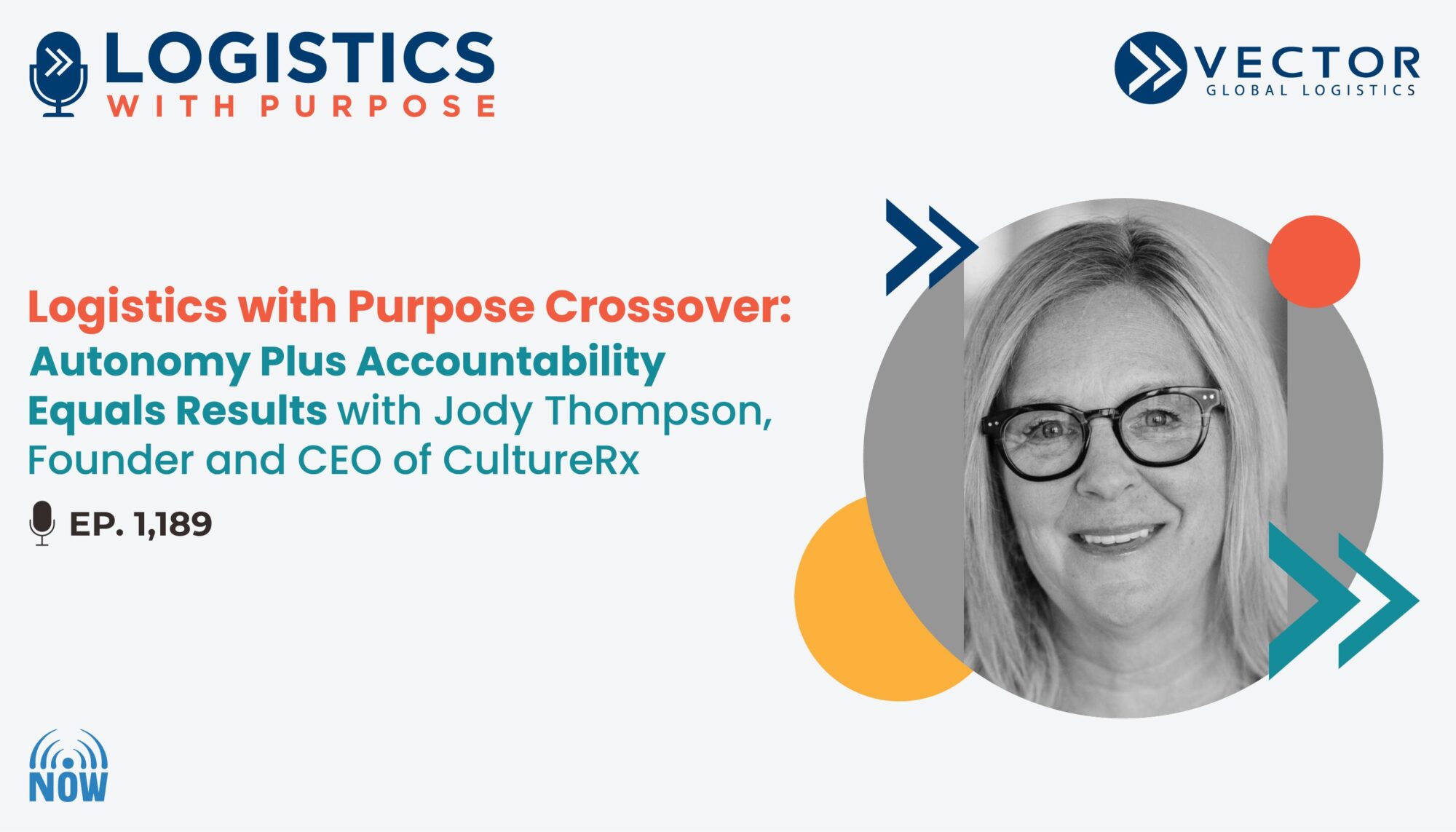
A results-only work environment is like a big magnet. Once it starts to incubate inside of an organization, it pulls people towards it. It doesn’t focus on technical change; It's adaptive and it's what people really want in their soul.
-Jody Thompson, Founder and CEO of CultureRx
Episode Summary
For a long time, corporate performance has been managed by looking at worker time and presence. Rules and policies are usually focused on employee behavior, resulting in an inefficient, broken system. While working at Best Buy, Jody Thompson started to reimagine how a workplace could be managed, emphasizing results over time and presence. Now she is focused on workplace transformation full time, as the Founder and CEO of CultureRX.
In this Logistics with Purpose crossover episode, Jody joins hosts Enrique Alvarez and Kristi Porter to share her story and talk about how changing a company’s culture can revolutionize what they are capable of achieving.
Episode Transcript
Intro/Outro (00:00:02):
Welcome to Logistics with Purpose presented by Vector Global Logistics. In partnership with Supply chain. Now we spotlight and celebrate organizations who are dedicated to creating a positive impact. Join us for this behind the scenes glimpse of the origin stories change, making progress and future plans of organizations who are actively making a difference. Our goal isn’t just to entertain you, but to inspire you to go out and change the world. And now here’s today’s episode of Logistics with Purpose.
Enrique Alvarez (00:00:36):
Welcome to another great episode of Logistics with Purpose. I’m your host, Enrique Alvarez, and I have the pleasure of having Kristi co-hosting with me today. Hey, Kristi, how are you doing?
Kristi Porter (00:00:46):
Hi,
Kristi Porter (00:00:46):
I’m good. We are a little starstruck this morning as we <laugh> war <laugh>. Um,
Enrique Alvarez (00:00:53):
I’m just outta know. Jealous, nervous, excited all over. And I’ve let you introduce our guest today, Christie, but I think it’s gonna be amazing. It’s some someone that we somehow know fairly good through her book. And I think the book, it’s fair to say, has really shaped the kind of company we are and the way we actually approach business in general. So I’m excited about it.
Kristi Porter (00:01:16):
Yes. Yeah, me too. So it, for those of you who aren’t familiar with this name yet, you’re probably familiar with <laugh>, the book that she’s written simply because Vector talks about it all the time. So we are, have the pleasure of talking to Jody Thompson, who is the co-founder and c e o of Culture Rx, and the bestselling author of Y Work Sucks and How to Fix It, Y Managing Sucks, and How to Fix It. And she’s the co-creator of the role model. So welcome Jody. We are thrilled to talk with you, even by the name of the book. When we talk about it, people are like, what is this? I understand completely and I need to know more about this. So we’re thrilled to have you here.
Jody Thompson (00:01:57):
Oh, thank you so much. I’m happy to be here and anytime we can talk about this kind of concept that’s working and help other people think about work differently, I’m all for it. Yeah. So thanks for inviting me.
Enrique Alvarez (00:02:08):
No, thank you so much for being here and taking a little bit of your time to share with us and our audience. I’m sure people are going to be as excited as we are to listen to what you have to say today. And to start us off, why don’t you just tell us a little bit about where you, uh, grew up and a little bit more about your childhood. Who is, uh, Joey?
Jody Thompson (00:02:26):
I have to think back a long way. Lets think about that. <laugh>. But I actually grew up in the Minneapolis St. Paul area, twin cities of, um, Minnesota. And I lived in your typical fifties neighborhood with little ramblers and all the moms were at home and sidewalks and roller skating and the whole bit, lot’s changed since then. And we all have to change with much, I guess, <laugh>. It was a whole different day back then. Really.
Kristi Porter (00:02:56):
Well, it’s a whole different world from three years ago. So <laugh>, right?
Jody Thompson (00:03:00):
Yes. Right.
Kristi Porter (00:03:01):
Adjusting quickly. And yes. I didn’t hear it in the pre in our little pre-chat here, but now when you say moms and Minnesota <laugh>, I hear it a little bit, right?
Jody Thompson (00:03:10):
Yeah. People say that to me all the time. I usually make ’em guess where I’m from. And pretty much people get it right away. Sometimes they say Fargo, which know, uh, know <laugh> sound like that too. <laugh>.
Kristi Porter (00:03:22):
Well, thank you for sharing a little bit about that. And um, before we get into a little bit more of your professional journey, is there’s something, when you look back on that childhood suburban childhood especially, is there a story from your early years that sort of now you’re like, Hmm, I can see how I was already kind of headed down this path as a child?
Jody Thompson (00:03:42):
I have a couple things to say about that, Christie. And one of the things is when I was in elementary school, I was perplexed why the boys could wear pants to school and the girls had to wear dresses. Hmm. And I was in the student council. And so I fought, sort of fought that policy and said, it’s freezing cold outside. We live in a winter area. By the time I get to school, I can’t feel my legs and feet. I think girls should be able to wear pants, right? Mm-hmm. <affirmative>. And it got passed. So what was, of course what was not good for me is my mom still made me wear dresses, but <laugh> where everybody else it got to wear pants. Pants. I know. And then I went to the University of Minnesota in fitness administration, really pe but I didn’t like how they, what the program was.
Jody Thompson (00:04:32):
They didn’t have the right elements in it. I didn’t think. So. I actually designed my own program using university without walls. So you can tell, right. I’m trying to not fit into all of the different rules and policies. Mm-hmm. <affirmative>. And after I graduated, I, I went to the um, school board and I, I wanted to change how we thought about physical education in elementary, secondary, and high school programs. And of course they didn’t accept what I was saying. But you know, if you think about obesity right now and childhood obesity, physical education is, it needs to move away from that sort of PE centered around sports skills. And we have to go more contemporary and teach us about our bodies and how they function and what a healthy lifestyle look looks like. And I was thinking that 30 years ago, but it was too soon I think. Yeah.
Kristi Porter (00:05:22):
Student council was a much easier gig. Yeah.
Jody Thompson (00:05:25):
Right.
Enrique Alvarez (00:05:26):
Well it’s still definitely there for us to improve though, right? Even today. I mean I think that you’re absolutely right. There’s a lot of schools that basically go around sports more than health, which is something that definitely needs to happen. You’re absolutely right. Yep. Let’s talk a little bit about your professional journey. You began your career by joining hp, Hewlett Packard, then Best Buy. You went on and wrote that book that I so much love and admire. But tell us a little bit how you actually went from, did you skateboard, by the way you mentioned skateboarding, but I wasn’t sure if you were one of the ones. Skateboarding,
Jody Thompson (00:06:00):
Rollerblading,
Enrique Alvarez (00:06:01):
Rollerblading
Jody Thompson (00:06:02):
Ne, never skateboarded, <laugh>
Enrique Alvarez (00:06:04):
<laugh>. But you did Rollerblade. I
Jody Thompson (00:06:05):
Think I got that skill. Yes. <laugh>.
Enrique Alvarez (00:06:07):
Well how, tell us a little bit more how you went from rollerblading to world renowned author <laugh>.
Jody Thompson (00:06:13):
So Best Buy, when you think about it, it was back in like 2006 when we were trying to reimagine the workplace. And it wasn’t HR per se that was trying to do that, but it was, I was a change agent. So that’s what I did at Best Buy. And I got together with Kelly Wrestler and she was on work-life programs. And what we realized and what people really know is that organizations across the globe, especially an organization like Best Buy, showing up. So time plus presence equals results. That was what the currency of work was back then. And we all accepted it. But Cali and I looked at it as a really, a broken system of inefficiencies. It had rules and policies directing our behaviors. And at that time we both said, work sucks and we have to fix it. <laugh>. <laugh>,
Kristi Porter (00:07:05):
That’s exactly, yes. It’s an A title that definitely grabs anyone’s attention. And also a mantra, I’m sure <laugh>. Um,
Jody Thompson (00:07:14):
Bumper magnets. Bumper magnets, yes. Right.
Enrique Alvarez (00:07:17):
<laugh>. Oh sure.
Kristi Porter (00:07:17):
Let’s needle point that on a pillow. That’s right. The, okay. So tell us a little more about the model. We’ve kind of hinted at it so far. So RO stands for Results only Work Environment you initiated at Best Buy. Even just reading the book, I found that even when I saw that, I thought that was really fascinating. ’cause that is not the type of environment I would’ve assumed you would start that kind of model in with a retail and people out on show floors and things like that. So tell us a little more about the model and how you started implementing it.
Jody Thompson (00:07:50):
So we were at, in corporate, so there were 5,000 employees in the corporate setting. And so when we started this out, we weren’t thinking of the field employees yet. Mm-hmm. But if I’m gonna define row for your audience, I have to discuss what it’s not. And that helps sometimes imagine what it is. As I mentioned the old and outdated currency of work is time plus presence equals results. But in the results only work environment, the currency changes significantly. So now you have autonomy plus accountability equals results. And there’s no labels like Teleworker remote work or four day work week worker, hybrid worker or flexible worker. Right? But these labels, what they do, Christine Enrique, is they say that anything different than working eight to five Monday through Friday in an office needed a policy or label. And in traditional organizations, managers become permission granters. I’m sure your audience can even see that in their own work. And people who are lucky enough to get a flexible schedule are judged. So I’m shy a kid in Khali early and where’s Bob? He never comes into the office. Right? So autonomy is way different. So autonomy means self-directed and independent. And if you look at social science, it’s proven over and over that increasing the control, people have a little bit of time. It lowers stress and psychological stress increases at as workload demands increase. So at the same time, you’re losing that control, you’re increasing the workload demands. And that is a recipe for psychological stress.
Kristi Porter (00:09:25):
Yeah, absolutely. So you’re no longer at Best Buy, you’re the c e O of your own company now. So at what point you tried it, it worked successfully, you got data to work with. At what point did you realize this actually needs to be implemented on a broad scale and we need to teach others? Mm-hmm. <affirmative> how to do this through a book and workshops and all the things that you do.
Jody Thompson (00:09:47):
It was interesting because what we could see happening at Best Buy was so profound. We thought early on, this is not a Best Buy thing. Best buy’s a retailer, right? They’re in the retail business, not the culture change business. So we realized that the mindset around work, about time and location is everywhere. It doesn’t matter what country you’re in, what job you have, everybody’s being managed that way. And so we got really excited about how can we actually share this with other people. And we really couldn’t do it as Best Buy employees. So what happened is Culture Rx became a wholly owned subsidiary of Bus Buy so that we could go out and actually sell it, sell culture change. So that’s really interesting because I also learned that innovating in the HR space, it’s almost an oxymoron now that HR is bad, but HR as a whole, they have policies and things that people and organizations need to follow. Some of it’s keep you safe, whatever. But it’s very policy driven. And what we were doing was sort of ripping that out from under everything and not having policy be the boss of us, but having results be the boss of us.
Enrique Alvarez (00:11:08):
I imagine it must have been, no, go ahead. Sorry.
Jody Thompson (00:11:11):
No, no. I was gonna say, and then off we went, galloping away and then pretty soon we spun off and we were out there on our own trying to describe this to people. And I don’t know if you guys know this, there was an article that came out right at the beginning when we left Best Buy and somebody said either this idea is gonna change the world or it’s gonna be the hardest thing ever to sell. And it became That’s absolutely right. It’s the hardest thing ever to sell and it’s changing the world. Mm-hmm.
Enrique Alvarez (00:11:39):
<affirmative>. Absolutely. And we can feel that by experience and applying it to our own processes and culture and values. But back then, going back to Best Buy and what you actually had to do to sell it internally first, and then for them to let you spin off this other company that was going to go out and focus on changing the culture of other companies, I feel like that must have been like a huge endeavor. How did you, ’cause you read the book and it makes sense, it’s rational. Mm-hmm. <affirmative>, it makes sense, people can relate to it, but then that and implementing, it’s a completely different thing. How did you manage first and foremost people at Best Buy to buy into this and allow you to just do what you did
Jody Thompson (00:12:19):
<laugh>? So I know it seems
Enrique Alvarez (00:12:22):
Crazy, seems very challenging. Yes.
Jody Thompson (00:12:23):
Well, I had a conversation over the last year with Brad Anderson and he was the c e o when we were there. And he talks about how his, what he wanted is he wanted to create a work culture where innovation happened organically. And what’s interesting about Best Buy, and I always say this, RO had to start there because doing, some of the things Kelly and I were trying to do was we, they allowed it to happen just to see what it would do. And so what we did is we looked around for a couple leaders that were willing to let us experiment with this idea so we could build, how do you do this? What are the blocks of things that have to happen? And where do you start and where do you end up? And so we got a couple teams to do that, but then we never sold it to other teams.
Jody Thompson (00:13:15):
What happens with the results only work environment, it’s like a big magnet. And once it starts to sort incubate inside of an organization, it pulls people towards it. It’s not something that’s technical change. It’s adaptive and it’s what people in their soul really want. Right? So we never had to sell it. And so everybody’s, we wanna be next. We wanna be next. That’s the kind of situation we were in. And even when we go into companies now, if it’s a company of over 200 people and they wanna do a pilot, we incubated in one group so that they can understand how profound it is for their own culture. And of course, people are like, me next, me next, how about us? Right. But that’s, it’s like a virus. It is, it is. I do say that it is like a
Enrique Alvarez (00:14:03):
Virus, very similar. I mean, probably not the best thing to say after the pandemic, but it really is, it catches fire very quickly ’cause it’s in people’s best interest and it’s also mm-hmm. <affirmative> in company’s best interest. And I feel like the future will be more culture and purpose driven. So you’ll see this Right. Perfect kind of storm foreign main. That has probably helped you. Tell us a bit more about Culture Rx. ’cause you mentioned you spun it off out of, uh, best Buy <laugh>. Tell us a little bit more about those times and when was it, what did it ha how did it happen and what does Culture RX do as a business now?
Jody Thompson (00:14:36):
So we, once we spun off, we had this feeling that it would really, it would take off like wildfire. Like, I’m gonna be out in my private yacht in the ocean, and people are making my meals and whatever we think that looks like in our own lives. And it didn’t turn out that way. It was considered so radical that people said it’ll never work. One, one, it’ll never sustain anywhere. Two, it’ll never work in my organization. My boss won’t ever go for this. And so what we learned right away was we had to really find not the right, um, company, but the right leadership that wanted to break free from the status quo and move into something completely different. They wanted to commit to that. Well, luckily to keep us going and paying our bills and everything, the University of Minnesota came to us and they wanted to do a longitudinal study.
Jody Thompson (00:15:39):
And people can look at that study, but it was a six year study and a whole bunch of things came out of that study. We basically had a control group, and then people that went through, and then people that didn’t go through this experience and lots of different things measured. They did saliva swipes of people. Is your stress level going down? Wow. It did. And what we also learned that not only the stress cortisone readings of the people that were in a row decreasing also their families. So there’s something about an employee being clear about what they’re accountable for and having autonomy that isn’t just about that person, but it permeates out into their people that they come into contact with every day. So I will tell you one thing that if you don’t completely believe to your inner soul that this is the right idea, I would’ve stopped 12 years ago. It’s hard to sell. I have to keep talking about the same thing over and over again. And it can get sort of heavy and frustrating. But even today, and the team I have and myself, we really truly believe deep down in our soul that this is gonna make business better, communities better and give people a life that’s more rich throughout and not waiting till retirement anyway. I still believe Yes,
Kristi Porter (00:17:04):
You’re passionate believer <laugh> as you,
Jody Thompson (00:17:06):
I’m, I’m working on that third block. So <laugh>, we’ll keep it going. Oh,
Kristi Porter (00:17:09):
Awesome. I feel like one of the strange but positive things maybe that came out of the pandemic was when people started working remotely, I think there was a lot of fear from a lot of management and executives. Oh, people are gonna work from home. They’re not gonna get anything done. And then that turned out to be absolutely wrong in a lot of cases. People were able to get things done on their own time. They were able to juggle. And even on, when reading the book and then looking at your website and things, it, I completely understand kind of the hard sell as well. Mm-hmm. Because it sounds maybe at times a little touchy feely or how does this actually happen? Even on your, um, website, you talked about this isn’t just adding like perks, like a kombucha machine or something like that. This isn’t Google nap pads and pods, which I would love or anything like that. But it’s about a transformational culture change as you indicated. What are a couple of the most significant changes that you’ve witnessed?
Jody Thompson (00:18:05):
So I’m gonna tell you a story, and it’s a simple story, but it has a lot of complexity in how the change happened. We were working with a state government agency, think government workers, and they were hourly. So this is a situation where you might think it’s not gonna work there. People were saying to us, oh Jodi, you must be so happy during a pandemic. All the people are working from home. So it must be ro. And no, that’s the struggle right there, because RO has nothing to do with location. Mm-hmm. <affirmative>. So we had these, this team, and they had to, they had a window so people would come up to the window. So there people from, from this, uh, city that came in every day to get what they needed. And when we came into this team, they were 1500 applications behind in completing those.
Jody Thompson (00:18:56):
And it was to help people that needed healthcare, food, and shelter and 1500 applications behind. So we went into to change this work and help them attach to what is their real purpose. And we per that all over purpose, you have to have purpose. People don’t really have purpose in an, in sort of that kind of environment. What they have is, I do my time and when I’m done, I get money. Mm-hmm. <affirmative>. So we got everybody’s around the idea that when you have 1500 applications that aren’t done, that’s 1500 families that aren’t getting to eat. Right. They don’t have the right healthcare and, and they’re on the street. So you’re doing something really big and important for the, for the society. So then we went through the whole, all the modules and everything and set them free. Right? We set them out there and the manager, we had to use some smelling salt and it’s gonna be okay, let’s just see what happens.
Jody Thompson (00:19:59):
Well, I’m just gonna go to the punchline because in three weeks they went from 1600 behind or 1500 down to 132. Oh wow. In three weeks. And when we started with them, oh no, we’ll never get those done. We need 12 people. We need hire more people. But once they understood really who they were, the purpose, they stopped fighting about who gets to work from home and how come she gets to leave early and all that kinda stuff. Now it got better. So now they realize what their goal is and they get down to, there’s never an application sitting there. Right. They figured out as a team how to get ’em, get through all of ’em. Now they started to wonder, well, some of the people that we need to help can’t get in here during the day. They’re trying to do jobs, they’re trying to do whatever they can and they can’t get here by four o’clock.
Jody Thompson (00:20:52):
So what we did as a team, they said is we figured out how to be open two nights a week until eight and not add any expense to the bottom line. And these were hourly workers. So they created that type of how they put work together and what they think of it into a whole different mindset. Nobody’s saying, oh, I don’t wanna work at night. No. They’re saying, I get to help people. Wow. It’s a completely different way to think about work. So that is my story and I’m sticking to it. I have some other government agencies I would love to recommend <laugh>,
Enrique Alvarez (00:21:30):
<laugh>,
Jody Thompson (00:21:31):
Big lists. I think we all would. Right. Anybody’s listening. <laugh>. Right. <laugh>. We do a lot of work in Canada there around government agencies. So, okay. They’re a little bit more open and friendly. Yeah. <laugh> and friendly. Go ahead. Sorry.
Enrique Alvarez (00:21:47):
No, it’s as you said, right? You’re actually changing the mindset of people. It’s really more about that and focusing on things that really matter, which we have so much deviated from over the course of history. Right? I mean, the goal, sometimes we lose track of what the goal is or we don’t communicate it correctly to the entire organization. And all of a sudden you wake up and no one knows what they’re working for or towards to. So this is a really good way of coming back together to work on the same problem or purpose or objective. Right.
Jody Thompson (00:22:21):
And I think people think, well, why should I care about that? That’s for the leadership to care about. But one of the things we have people do when we’re taking people through this change is we have every single person path their way out to the customer. So they have to say, I am a retail specialist and I do this and I do that, and I do this, and I do that. And that’s how I help our customer. So it doesn’t matter where you are in an organization, if you can start pathing your way out to how you in your job help this happen, you’re not gonna care. Right. It’s an exercise of the mindset. Right. So, right.
Enrique Alvarez (00:23:02):
Well, and you make your work more, uh, meaningful to you. Correct. And, uh, that way will make it hap you’ll be happier and more fulfilled and your families will be happier and as you said mm-hmm. It’s just like a virtuous cycle that you just have to start somewhere. And it’s just by implementing this new mentality, we, and we know about this, I mean, from the launch in 2008, uh, why word socks and how to fix it has been an amazing book that we not only give to every single host and interviewee that we have, which we’ll probably not have to send to you <laugh>, but we have shared it with many, many organizations around the world from like potential clients to suppliers, to friends to people. And it’s actually required for all our new employees to read it in, in our contracts that they have to read the book. And I was, some of the questions that I always get, and I would like to get your thoughts on this is, but that’s because you guys are in logistics and it applies to logistics. So I, is it industry specific? Is it company specific? ’cause sometimes they say, yeah, but that’s because you guys don’t really have to do this or that or that. Chances are it doesn’t apply to us. How do you respond to that question, which I’m sure you get all the time.
Jody Thompson (00:24:10):
I, if I had a dollar for every time I heard that <laugh>, I would be on that. You would put that yacht <laugh>, right? Yeah. So here’s what’s interesting. Well, first of all, thank you for buying the book and sharing it with people. I really appreciate that. It’s a fun read and I think people, it touches people because it’s a, a changing human element on how we think about work. But I’m gonna say this role applies to all industries, including nonprofits. We’ve implemented it in manufacturing, like on a manufacturing line in call centers, professional services, union workers, federal, state, local government, nonprofits, salaried workers, hourly workers, location specific. We work with people that do construction and non location specific roles. So I’m gonna say this, and this is something you can, um, think about as other people are saying, oh, well it works in yours, but not with us.
Jody Thompson (00:25:06):
If you start looking at work from the lens of autonomy and accountability, right? It starts to make sense in your brain that the achievement of results in the most efficient and effective way possible works with anyone in any job. So somebody might say, well, bus drivers can’t do it. And I’ll say, okay, have you ever gotten on a bus and have the bus driver be rude to you, the customer and I, you know, it’s little things like that, right? I hadn’t been on a bus for I don’t know how many years and I had to get on a bus one day. I don’t know how much it costs. I don’t know if they’re using credit cards on the buses yet. You know what I mean? I have no context. So I got on and I, what I looked at, I didn’t know what to do. So I asked the bus driver, he was like so irritated.
Jody Thompson (00:25:57):
But that’s your job is to move people. But it’s also to help people and make sure their experience is good through that, whatever that interaction is. So again, if you look at it out that lens, I mean, have you ever called a company and you’re on hold for two and a half hours? Yep. Or Yep. Or when you get the person cable contract Yeah. <laugh>, that’s, yeah. And they can’t, they can’t help you at level one and they put you up to another level. You sit on for another hour. This isn’t about the customer. This isn’t about me doing my time. And then when the clock ring goes five, I stop. And I think there’s a lot of that going on. When we work in call centers. It is amazing what happens, right? When they actually get to help the customer. One of the measures of a call center is call handle time.
Jody Thompson (00:26:50):
That’s, how long am I on a call with a customer And the first level in this company we work for, they had to be off that call or pass it along to the next level in two minutes. So just picture this, I get a call and my computer screen is up and it goes 2 1 59, 1 58, right? Right to 7 1 56. So the whole time I’m on, I’m not really, I I’m not helping the customer ’cause I’m watching the clock because guess what? Right? If I keep going over call handle time, I’m gonna get, you know, a performance rating. That’s bad. Mm-hmm <affirmative>. So then we said that the C I O I said this is what we need to do. We need to take that away. Then he goes, take it off their screens. He said to the managers, I don’t want you measuring that anymore. Well, sure enough, what happened pretty soon, level two and level three weren’t getting very many calls because level one took care of it. And how long do you think on average they were on their phone with a customer? What do you think? Two
Enrique Alvarez (00:27:50):
Minutes
Jody Thompson (00:27:50):
<laugh>? Two minutes. Yep. It’s two minutes <laugh>. I mean it’s kind of weird, but it’s amazing what kind of things are actually bogging people down. Right. Instead of helping them do a good job. Yeah. Yeah. Rules, you know, regulations, time clocks on your screen, just all that kinda stuff that I feel not connected to the customer. I feel like I’m a rule follower and I better not get in trouble,
Enrique Alvarez (00:28:18):
Right? Mm-hmm. <affirmative>. But we have too many rules to your point, right? Yeah. I mean at, at some point you have to let people be people in trouble. I mean you have to trust them. If we actually want to Yeah. Come up with this amazing playbooks that tell you exactly what to say, what to do at every single second of your day, then just your job becomes boring too. And, and unfulfilling. And at the end of the day, you give a substandard service to your customers because Right. You don’t care. I mean you clearly, right. It doesn’t matter. You’re just reading from the playbook anyways. Mm-hmm.
Jody Thompson (00:28:48):
<affirmative>. Yeah. And you’re gonna get paid. So Right. Just do your time. Yeah. I like to say, what other place in society do we do time? Prison. Prison. Okay. Right. So we’ve created this construct that’s like you’re still in high school, then you go to college and you’re free. You can either fail or secede, but you know what the outcome is. And then you get to the workplace and all of a sudden, every minute of your time is un not in your control anymore. You’re right back into high school. So it has to change. We’re changing it. Yeah.
Kristi Porter (00:29:24):
I would imagine another one of the pushbacks you get is, I’m not in the C-suite, I’m not the head decision maker. This won’t work for me. Or I have no power to do this or whatever. Which is, I’m going to guess you tell me why you wrote the follow up, why managing sucks and how to fix it. Yeah. So tell us a little bit more about that book. And for our managers right now that are listening, tell tell them why they should pick up a copy.
Jody Thompson (00:29:51):
So first I have to say that people in outside organizations that are not in a C-suite are not even leadership. And they would catch onto this idea. And we had people that were, you might to describe as zealots. They got so excited. You guys are probably zealots right? Of this idea. Yeah. And they would keep talking about it and talking about it and talking about, and they would get fired. So early on we had to help people that were excited about this, go about it in the right way so they could keep their job at the same time. Now why managing sucks, we put that together. So it would be more of a field guide for managers on how to go from managing people time and location to managing work. And then we find that in many cases employees aren’t really held accountable to the outcome of work.
Jody Thompson (00:30:41):
And instead they fill their time with activities that may or may not be aligned with the purpose of the organization. And we’ve already talked about that. And this isn’t to say that managers suck. Some people call the book why managers Suck and How to fix it. No, not that <laugh>, but not everyone. Yeah. Right. But instead it’s to say that the current system or traditional way we think about work managers are stuck inside the matrix. Okay. If you think about the Matrix, what we come in and do with that, that book is we unplug them from it. It brings them above the matrix. They can look down into, oh, now I can see what’s happening in there. So we gave them some sort of how to think differently about managing work versus managing people. And I think that helped a little bit. It didn’t sell as well as the first book.
Jody Thompson (00:31:28):
And I think the first book was more, I don’t even know the word, but it, people bought that book and they like the manifesto. But when it comes to managing, if you’re in a system where time is so important and you’re the permission granter, it’s really hard to be separate from that because culture is a giant hairball. And if you start to do something different, the hairballs job is to eat you up and get you back in line and pull you back in there. And so managers even who have like, like you Enrique and, and you Christie, it’s, you have the will to make a different, and it’s happening because it’s coming from the top. Mm-hmm. <affirmative> and RO works from the middle out. So it’s innovating in the space between managers and people that do work. And so that right there is where the sort of problem with work culture exists.
Jody Thompson (00:32:26):
It’s, I manage you, we have to get away from that. I don’t manage you, I manage work. Right? And you’re somebody that does work, but I’m not telling you what time you could figure that out based on what the work is. So that’s what we’re trying to help managers do. We often do workshops just for managers, but not to make them row mm-hmm. <affirmative> to help them think more about outcome-based planning, get clear with everybody what the outcome is, and then figure out what activities you should be doing instead of the other way around. Time is interesting. Christie, I have a question for you. Okay. If you get up in the morning mm-hmm. <affirmative> late, you know you have to be Yeah, I do <laugh> and you have to be in the office by nine and your alarm goes off at eight 15. How long does it take you to get ready?
Kristi Porter (00:33:18):
I would say at least half that time is talking myself out of bed. <laugh>. <laugh>.
Jody Thompson (00:33:21):
There you go.
Enrique Alvarez (00:33:23):
It’s part of the getting ready though. That counselor is getting ready
Kristi Porter (00:33:26):
Late. Getting ready is less time actually pulling myself out of bed. <laugh>. Right. But I hear. Yes,
Jody Thompson (00:33:32):
Yes. Or you’ll try to get there. And what people tell us is, if I have an hour and a half mm-hmm. <affirmative> before I have to go out the door, I fill that whole time. Yes. But if I only have 15 minutes, I decide what’s the most critical to get me to whatever that is. And the extraneous stuff just right goes away. And so time is so weird. If I have to put in eight hours every day, my brain automatically takes the work and just sort of spreads it out. Mm-hmm. <affirmative>. And so even if I’m wasting time six hours a day in meetings, at least I was there. Mm-hmm. <affirmative>. And we’re having, that’s a problem. The time clock, the punch clock clock mentality is in all of our D N A And that is really hard to let go of. ’cause guess what? If you come to me and say, well, I only work 20 hours, what’s the first thing I’m gonna think as a manager, if you say you only work 20 hours a week,
Enrique Alvarez (00:34:33):
You’re Lacey,
Jody Thompson (00:34:35):
You lazy, and you must need more work. What the heck? Maybe we don’t need you. Yeah. So efficiency is not something that’s promoted really. When there’s time clock mentality, it pan. You have to get rid of that part. And then when people own all of their time, they’re completely autonomous and they have work to do and all these other things in their life, when they manage that, like we talked earlier, it enri enriches everything. My relationships with my family, how business operates, who I am as a person, how I feel about how I connect to our customer, all of that starts to change. Mm-hmm. <affirmative>, you would think everybody would just sign up for it, wouldn’t you? <laugh>
Enrique Alvarez (00:35:21):
Yes you would, but <laugh>, right? Well, but then as you said, right, it’s something that’s very human and it’s been ingrained in us forever and ever since we were little at school. I mean, everything kind of works on a time basis almost. Right? You have 30 minutes for this, right. And you have 15 minutes for this. So I think it’s, it’s something that’s been historically speaking with us and around us forever, right? So I kind of see why people struggle with it, or at least they had, it’s easy to sell. I think people really become fans of it very quickly. But then just applying it, sometimes me, I mean we started this company in 2009 with this mentality since the beginning. And sometimes I still cut myself thinking, well wait, why am I doing this? I constantly fall into the, so it’s like, uh, you have to get out of the, uh, rat race, but you sometimes feel yourself that you’re just doing it because that’s the way you’re used to you doing it. Which is not ideal of course. Or efficient. So
Jody Thompson (00:36:13):
It’s just the language of work. Like we’re used to talking about that. And if you say to somebody, I need you in the office on Monday, Wednesday, and Friday, well, why? Right? Like, we never really ask why that is. Right. Well, because you collaborate better. Well, how do we measure that, right? How do we know that that’s an orthodoxy? And I think like you’re saying, Enrique, what we do is we just accept those things. But when you’re in a results only work environment, you’re working every day to leave that behind. It’s an aspirational journey to overcome inertia. So keep going. Right?
Enrique Alvarez (00:36:51):
Yeah. There’s never like a, we already implemented it. It’s like every day. Every day. It’s right. Is that, is that the way it is? ’cause that’s definitely the way that it feels for us here. It’s not something that we’ll ever be able to fully accomplish. Right? It’s not like a destination, right. That we’ll arrive to. It’s just part of the day-to-day basis of who we are. Like, okay, so why is that what’s important? Let’s focus on this.
Jody Thompson (00:37:13):
You’re taking an aspirational journey. And in the purest form, people don’t really ever get perfectly there. Right. But if you’re going in that direction, you’re evolving. Yeah. And the current culture is over here and the future culture’s here, and it’s, and you just keep moving as close as you can. Yeah, absolutely. Probably
Kristi Porter (00:37:35):
The rest of the world operates the other way. So you’re also continually, that’s a everyday struggle too, when everybody else is operating in one direction and the rest of your life and then you’re trying to do something different.
Jody Thompson (00:37:46):
Right? Exactly. It’s so true. That’s why we have to just, we have to help everybody. Yeah. Right. Start to move forward.
Enrique Alvarez (00:37:54):
Yes. ’cause once you actually find another company that has the same culture, then work between those two companies make it’s a lot easier, more efficient and seamless.
Jody Thompson (00:38:03):
I love that you said that because we work with an accounting firm and they do billable hours, right? Mm-hmm. <affirmative>. And so that’s what clients expect from accounting billable hours. And so they turned into results only work environment. We trained them and they’re certified. And they were having a hard time because they didn’t know how to sort of, the way they were counting time before was, didn’t fit into this mindset. So now they’re free and they’re autonomous and all that. So it took them three years to ba basically train their clients not to be a row, but to go into a value-based billing, right? Right. We’re gonna do this for you by this time, but the hours it takes to get there are irrelevant. And so they started to negotiate and agree. A, a price, a fixed price. Right? Right. Now, if you’re in the organization, you can putts around, butts around and not get there. But when you know the goal, you can just focus on that. You might get done early, who cares? It’s better for the customer if that happens. Absolutely.
Enrique Alvarez (00:39:11):
Absolutely. And there’s many professions like that, right? I mean, lawyers, consultants, it, I mean, everything’s like, ’cause it’s easier to bill by the hour. But, uh, but easier doesn’t necessarily mean more efficient. Definitely doesn’t mean less stressful. And of course you’re not focusing on the right things, which is correct. What some business need to realize if they want to be better, and of course if they want to compete and to the future. ’cause a lot of companies are adopting this new mentality and mindset and they’ll just be left right out. If they don’t apply, they
Jody Thompson (00:39:39):
Will. Yeah.
Enrique Alvarez (00:39:41):
I, I a hundred percent agree. And I would love for you to talk, I mean, I have so many things I would like you to talk about <laugh>, but one of, one of them, those retention, right? I think that it’s important for other companies to understand how a results only work environment ro or this mentality helps, uh, retain talent and acquire talent in the first place. So could you tell us a little bit more so that our listeners can get your take on retention and ro
Jody Thompson (00:40:07):
Well, so I’m happy to talk about this because attraction and retention is a place where the results only work environment really changes that. So what employees want today is they’re not looking for flexibility, right? They want autonomy and they wanna be able to manage their lives and work is part of their life, but it’s the way that they’re forced to work, they don’t wanna do anymore. So just to show you what happens, one of our clients, um, that we’ve worked with for a few years, the number, they, they do surveys. And the number one reason, number one, that people come and wanna work there is because the results only work environment. And once they’re in, they don’t wanna leave because they’re used to working in it’s autonomous and accountable fashion. So they don’t wanna go back to the another company that doesn’t do that. In fact, this company we’re working with, their net promoter score increased by 300%.
Jody Thompson (00:41:05):
Wow. Wow. So they were also telling all their friends to come on board. And then we had this other client and their voluntary turnover rate the first year, like went down to zero. And at the same time their business was growing and they were hiring more people. So it creates this, this thing that happens around attraction and retention and how we measure it. And it says, keep the talent you wanna keep. Right? But the people that are just sort of going along, putting in time and figuring out how to fly under the radar that doesn’t fit anymore. So now you have a, a place where adults work, right? Instead of children and you get clear with them about the results. And you talked about trust earlier today. I don’t think we have to earn trust. I think we start out with getting clear with people. Then if they can’t get there for whatever reason, it’s a performance issue. And if that just keeps happening, I guess that doesn’t work in our company anymore. Right. You actually have to do your job. Yeah. Right. Yeah.
Kristi Porter (00:42:10):
All right. Thank you for explaining that. Retention is a huge topic always, especially right now when people are trying to hire and trying to find the right fits. Another huge topic is work-life balance. And so you’re talking about in the book how to achieve a healthy work-life balance. That phrase is used again and again and again. So I’m curious how you define that in the context of ro. How does it contribute to that philosophy? Because again, I think that’s something people are seeking. Yep. Trying to understand, trying to figure that out for themselves. So what is that position to you?
Jody Thompson (00:42:45):
Okay, so this will be fun. So I want your listeners to think about this. If any of your time, I think it’s 163 hours a week or something like that. 168 is managed by somebody else. You’re never gonna achieve work-life balance. So the way that it’s achieved is through autonomy. So I look at all the demands I have in my life all at the same time. And I know when I need to get things done and I know what that is and I know grocery shopping and this and that and all that. And I put that all together in a way that optimizes everything I do. So think of this. So I wonder if I told you that you could only shop on Amazon between eight and five, that’s it. I mean, think of that, it’s like our society, like contemporary society is speeding ahead with how we shop and how we view entertainment and all that. But the workplace is like, no, you can only do it between eight and five Monday through Friday. And they’re still putting so many parameters around it. We’re never gonna be able to match contemporary society as long as our manager or our organization is controlling our work or, um, excuse me, our time that we work. So that’s the goal.
Kristi Porter (00:44:03):
Yeah, that makes a lot of sense. Let
Jody Thompson (00:44:05):
Go of that control.
Kristi Porter (00:44:07):
And how, so we talked about kind of promoting it within it a couple of different levels. So how do either in hiring or when somebody is in the door, how do, how would you give advice to people promoting this culture? Whether it’s just understanding the philosophy or how to execute or even just what you said about time. What’s the importance of people really explaining that within their teams and during the hiring practice? What’s the benefit and how should they go about doing it? Because I assume there is, as I think you mentioned before, a little bit of fear <laugh>, especially if it’s new to you, right? Trying to get people to understand this without, there’s a fear they’re gonna run rampant with it.
Jody Thompson (00:44:48):
So Yeah. Run like crazy people, like unicorns flying everywhere. Yeah. First of all, I have to say this, the future is not flexibility. That’s the old game. And it’s a trap. So what we have to do is we have to listen to social science, Dan Pink, Robert ek, all the people. Social scientists have figured out that if you build a workforce on the foundation of autonomy and accountability in equal measures, that’s the key. But it’s not easy because we have all of these orthodoxies going on in our heads. And I mean, that’s where we come in. So what we’ve done is we’ve sort of cracked that culture code and we’re, we break up traditional mindset log jam. And that’s what’s happening in organizations. Our brain pulls us back to what we understand and know. And so when you’re trying to explain it or talk about it, the orthodoxies are flying in your head.
Jody Thompson (00:45:48):
And that’s why Enrique people say, well that wouldn’t work here. It only works here and there. Right. You know, it, it’s just comes into your brain. So that’s where we come in and help people. ’cause then they feel like at least they’re on a path with everybody. Sometimes people want us to just implement with managers. No results. Only work environment mindset is for every single person in the organization. And the only way you’re gonna get there is to all get together and go through the same training so that you can have your wow moments all together. And then what happens is it’s like self-correcting. And I think you’ve experienced that too. It’s when people are kind of going off back, you know, sorting ’em wrong, the direction, the culture pulls ’em back and corrects them. So over time you get closer and closer to the ideal mm-hmm. <affirmative>. But you need everybody to have the same freedom and be able to own their work. One company who worked for said like, own, own, your work was one of their values. And I’m in one of the sessions and I’m getting to the end of it and one person goes, oh, now I get what own your work means. Think about that. We don’t own our work. Our manager owns it, right? Mm-hmm. <affirmative>. But you guys own my time. Mm-hmm. <affirmative>. So I’ll do my best in those 12 meetings that are going nowhere. Right?
Enrique Alvarez (00:47:08):
That’s, no, that’s absolutely true. And, and definitely something that listeners and companies, uh, that are listening to this episode are definitely gonna think a little bit more about. For sure. We’re in logistics, supply chain professionals are listening to our podcast. And the last years have been incredibly challenging for many industries. Not only logistics, right? And so how does the, a results only work environment row apply to like highly stressful situations and industries? Like for example, logistics. What’s the impact into the, not only employees, but customers, suppliers, and everyone that facing challenging or stressful situations? Mm-hmm. <affirmative>.
Jody Thompson (00:47:47):
So I’m gonna sound like a broken record. <laugh>, but <laugh>, I have to say the key is autonomy,
Enrique Alvarez (00:47:57):
Right?
Jody Thompson (00:47:58):
So it’s been proven social science, I, I mentioned all that. But what’s happening is we’re living in a contemporary world with a 20th century management mindset. So organizations that already had already certified ro right? And the pandemic came and whatever, every single organization had a different pain point when we we hit the pandemic, logistics was a nightmare. So the interesting thing is that how you think about autonomy is something that’s gonna be different in every single, every different role. But the point is that the more you start to try to control people solving the issue, you control it and you tell ’em when to solve it. You know, where do they have to sit when they’re solving it? What time of the day they have to solve it. You’ve now taken the power away from the workforce where people always say, oh, we want people to come up with their own innovative ideas.
Jody Thompson (00:49:03):
So every day from 12 to one 30, <laugh>, put your computer away and think about innovation, right? Be innovative. Go. Yeah. Yeah. Yes. Right. <laugh>, in fact, we had a little bit of that like company I worked for, right? I think, are you kidding me? I, no, what am I a robot? You know? Right. And so sometimes we do things that are more making us go backwards. Like if you say, oh, we have too many meetings. Okay, so we’re gonna have no meeting Wednesdays now <laugh>. And then, and we did this at Best Buy, so no meeting Wednesdays. So we’re all like, okay, what are we doing Wednesday? ’cause all we do is go to meetings all the time. So then Wednesday would come and then we wouldn’t be in meeting rooms. We’d go down to the cafeteria, we’d go different places, <laugh>. And then people would say, are you having a meeting?
Jody Thompson (00:49:50):
And we’d say, we’re just gathering. We’re just having a gathering. So it, it’s a technical fix to an adaptive problem. We’re actually making it worse for people. Or one company that said nobody could use their cell phone after 5:00 PM for work. Even if you needed to, you couldn’t use it. That’s technical. It’s a technical fix. Right. To an adaptive problem. The things we’re trying to do to make work better are often backfiring because it’s still not giving people autonomy. Yeah. Giving me two different places to make coffee isn’t autonomy <laugh>. It just isn’t. Right. I think people know that
Enrique Alvarez (00:50:34):
We wanna have cake and eat it too. Right? Right. I mean, you want to Yeah. Have autonomy and let people do what they’re supposed to be doing and focusing, but you also want to have the control. And it’s just letting that control go that I feel is actually very, very hard to do. Especially for people that have just been used to this other way of working.
Jody Thompson (00:50:52):
Right. And you’re, you just right at it now. You just
Enrique Alvarez (00:50:55):
Gotta let it go. Yeah. You gotta let it go. Right.
Jody Thompson (00:50:57):
Stop controlling me.
Enrique Alvarez (00:50:58):
The system will adjust itself is what you’re saying.
Jody Thompson (00:51:01):
Yes. And well, I think what managers don’t realize is they’re now gonna get more control over the actual work because work isn’t showing up and going to meetings. Right. And carrying paper around. That’s just that an activity. I mean, I can’t even tell you how many days I didn’t really do anything because I had to go there and put in my time. And right now, I said this, when the pandemic first started, I said, mark my words, when we’re through this, everybody’s gonna try to, all the corporate companies are gonna try to suck everybody back in the office. Why? Because when you’re in an office with your, you know, office calls on and you’re in a meeting or sitting in a cube that looks like work. Yeah. I feel so much better. I don’t really have to get clear with people because they’re showing up and look, they look miserable. Must be working. <laugh>. Yeah.
Enrique Alvarez (00:52:00):
<laugh>. Um,
Jody Thompson (00:52:01):
So anyway, that’s gotta stop. But anyway, we we’re gonna move past it. You know, we’re doing a lot of hybrid stuff now. It was interesting to hear that the Googlers, as they’re called the Google employees, they’re, they’re clamping down more than they were before the pandemic. I, I don’t if you’ve read that article. Yeah. But they’re watching badge swipes and if people are tardy and they’re gonna bring that up in their performance reviews, I’m like, what happened? Right. It got tighter and tighter and tighter. Right. It’s kind of that rubber band effect. Mm-hmm. <affirmative>, we let you be free during the pandemic, but no more. We loved it. I know you were getting your work done, but I’m just gonna ignore that. Wow. Actually work was getting done better. Oh, we were more productive. Oh look, how are business results? Okay, now we’re gonna stop doing that. Now we’re gonna bring everybody in the office and bog everybody down and make everybody mad and not engaged in all of it. It’s like so counterintuitive. But that’s where we have it. That’s where we are. And we’re seeing it everywhere. Yeah. Yeah.
Enrique Alvarez (00:53:09):
Absolutely. I think, uh, one thing that really should be considered is like how you tie all this into the compensation. ’cause that’s where I think most companies fail, right? Because you’re still paying for the same reasons and the same thing. So as opposed to once you redirect work towards what makes sense, what the goal should be, then you should pay use for that. And then the system will continue to auto correct itself. ’cause it’s really focusing on what matters for that particular company, which is something very challenging to do as well.
Jody Thompson (00:53:37):
Right. But then it’s so logical. Yeah. Right. It’s so logical. It’s this is your outcome. This is what I need you to achieve.
Enrique Alvarez (00:53:45):
Right.
Jody Thompson (00:53:46):
But if you do it in less time, I don’t feel like you’ve worked hard enough. Mm-hmm. <affirmative>, it’s just all jumbled up in our d n a around time.
Enrique Alvarez (00:53:56):
Do you feel like the future, I mean, you’re positive and optimistic about the future and we’re fully supportive ’cause we love this culture and never let that go. But as you said, like this rubber band effect that you’re mentioning, do you feel, and what’s 10 years from now? I mean, what, what do you foresee? I mean at what point we’re reaching the tipping point? Do you see, what’s your expectation over the next 20 years, 15 years, longer term? I mean, do you think that, how do you see societies working, uh, future? Oh
Jody Thompson (00:54:24):
My gosh. In the future. I’m so tired. <laugh> <laugh> 20 more years. No one <laugh>. Well, I’ll tell you what, this is gonna take a long time, but the next book I’m writing is, is called The Autonomy Economy. What I see happening see happen is over the next five, six years, everybody is gonna do their hybrid thing, bring everybody back in the office, all that stuff. So we’re gonna rubber band all the way back and then they’re gonna realize we still aren’t attracting people, we’re still not a train, keeping them, all that kind of stuff. And then they’re gonna go, Hmm, maybe there’s a different way. And then a few more companies will come to us and we’ll take them through the migration, but it’s not gonna be quick. Mm-hmm. <affirmative>, the mindset around how work needs to be is so ingrained to undo that is monumental.
Jody Thompson (00:55:22):
And so I applaud you guys because you want that kind of environment. You’re not really afraid of it. You embrace it. And so we need to find more people like you guys, <laugh> to <laugh>. Take a chance, right. And do a pilot. It’s, I think sometimes what happens, especially with other organizations that have come to us, said, we tried it, but it didn’t work. There’s things missing. Why? You gave me a box of bolts and I’m supposed to put a car together and I miss some of the pieces. And so then it, it’s not optimized. And I think a lot of times that senior leadership way at the top see a change of something for, for everybody else. And then when they watch everybody else not coming into the office every day, but their mindset hasn’t shifted, then they bring ’em all back in. So everybody has to go through then.
Jody Thompson (00:56:21):
And I think once you get to that level, but you’ve worked your whole life to get to that level. And it works in your head. Like you don’t see it any other way. So it’s hard to flip your mindset around, right, we’re in a whole new time of life right now. We’re in a whole new and we’re still acting like we have two TVs and we have to get up and go turn the channel and run and get our snack during the commercials. We’re just not keeping up. The workplace isn’t, but it’ll get there someday. Yeah. I’m gonna keep at it.
Enrique Alvarez (00:56:55):
Absolutely. Well, for sure. And everyone that’s listening that’s trying this culture has said yes. Just keep at it, right? I mean, we see, we have offices around the world and you can totally see the different stages, right? Some offices that are actually starting and you start to see the same dynamics and yeah, just, just don’t give up. Keep up. Don’t give up. And I think, oh, keep it up. Yep. It’ll be great at the end, as you said, Jody, and thank you so much. Mm-hmm. <affirmative>, Christy, I think you had a, well, we could actually ask questions for the next hour or two. <laugh>. But you have a, you have one or two, you’ll have to wrap it up, right?
Jody Thompson (00:57:26):
Asking for
Kristi Porter (00:57:26):
Friend. Yeah. So for let, before we do wrap up, I wanna talk, we’ve talked, talked philosophy, we’ve talked challenges, we’ve talked outcomes, and we’ve talked a couple of examples of what not to do. So outside of reading the books, which we of course recommend what are, if somebody’s kind of curious about this or says, yes, this is the philosophy for us <laugh>, but how, how, how, what are a couple of those first good steps to take to lay a strong foundation?
Jody Thompson (00:57:54):
So number one, Enrique will send you a book. That’s right. <laugh>.
Enrique Alvarez (00:58:00):
Done. Reach out to me. If you listen to this episode, we will send you a copy
Jody Thompson (00:58:05):
<laugh>. So what people need to do and think about, I think first what’s really important is to start listening to how you talk about work with your people, right? Ask yourself, am I talking about work or am I talking about something irrelevant? If I say you need to be in on Monday, that’s me. You know, irrelevant. What do you need? And then I decide whether I come in or not because I don’t even know what you need, right? How am I supposed to know? Mm-hmm. <affirmative>. So start to listen to those things that sound traditional and think about how that’s permeating everything. Second thing, go to our website. So go row.com, then you’ll see some things there. We have an autonomy guide, it’s a free download. You’ll see some stuff there that can help you begin to make that shift in your own mind. And you’re gonna find like people that, that agree without needs change, especially millennials of the next generation, they’re like, yeah, this is how it’s supposed to be. So it’ll help you gather in some of the people that are like-minded. And the more you can coalesce with other people, the better chance you have of getting the leadership ear around how work can be better for everybody and how business can be better and community can be better. Just don’t give up. Mm-hmm. <affirmative>, come to our site, we’ll help you. That’s
Kristi Porter (00:59:32):
Right.
Jody Thompson (00:59:33):
Um, that’s what we’re here for.
Kristi Porter (00:59:35):
Thank you so much. This has been fantastic to read your words and then speak to you. This is great. To shed even more lies, go row.com is the website. Um, where else can people find you and learn about you or follow you?
Jody Thompson (00:59:49):
I’m on Twitter, I’m on all on social media. LinkedIn. I think I’m on Instagram now. <laugh>. I tried to do that for a while. Wasn’t very good at it. So <laugh>. Okay, so perhaps LinkedIn. <crosstalk>. Yeah. <laugh>. Yeah. I would say LinkedIn. Facebook results only Work Environment has its Facebook page. There’s a real group on LinkedIn. So if there’s places that you wanna just go ahead and get more messaging from us, hear how other people are engaging in it, social media. Yeah.
Kristi Porter (01:00:15):
Perfect. Thank you. Yep.
Enrique Alvarez (01:00:18):
Jody, thank you so much. It’s been a pleasure talking to you, huge fans. We congratulate you and applaud you for what you guys thank you have achieved. We’re very proud of being part of the movement, if you will. And so thank you so much. This has been, yeah, one of my dreams come true actually. So <laugh>, thanks for participating and for everyone that’s listening. If you liked and enjoyed conversations like the one we had today with Jody, don’t forget to subscribe. It’s Enrique Alvarez with logistics, with purpose. And uh, Christie, see you later.
Jody Thompson (01:00:47):
Thank you. Thank you. It was great to be here with you guys. See you soon.
Featured Guests
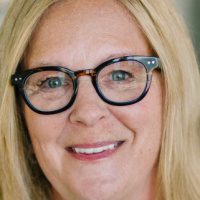
Jody Thompson is the Founding Principal of CultureRx®, headquartered in Minneapolis, MN. Thompson is an engaging domestic and international keynote presenter on the future workplace and has been featured on the covers of BusinessWeek, Workforce Management Magazine, HR Magazine, and HR Executive Magazine, as well as in the New York Times, TIME Magazine, USA Today, and on Good Morning America, CNBC, MSNBC and CNN and The New Yorker. She has co-authored two best-selling books on the modern workplace and contemporary management principles, Why Work Sucks and How to Fix It and Why Managing Sucks and How to Fix It. Jody works with select organizations to bring them to a state of sustainable high performance. For the past 15 years she has personally facilitated the change management communication and training process in organizations across multiple industries with a variety of roles, including retail, manufacturing, government, professional services, and education in both the private and public sectors. Her clients consistently see increases in productivity, employee engagement, client satisfaction, and the ability to attract the best talent from all generations. Connect with Jody on LinkedIn.
